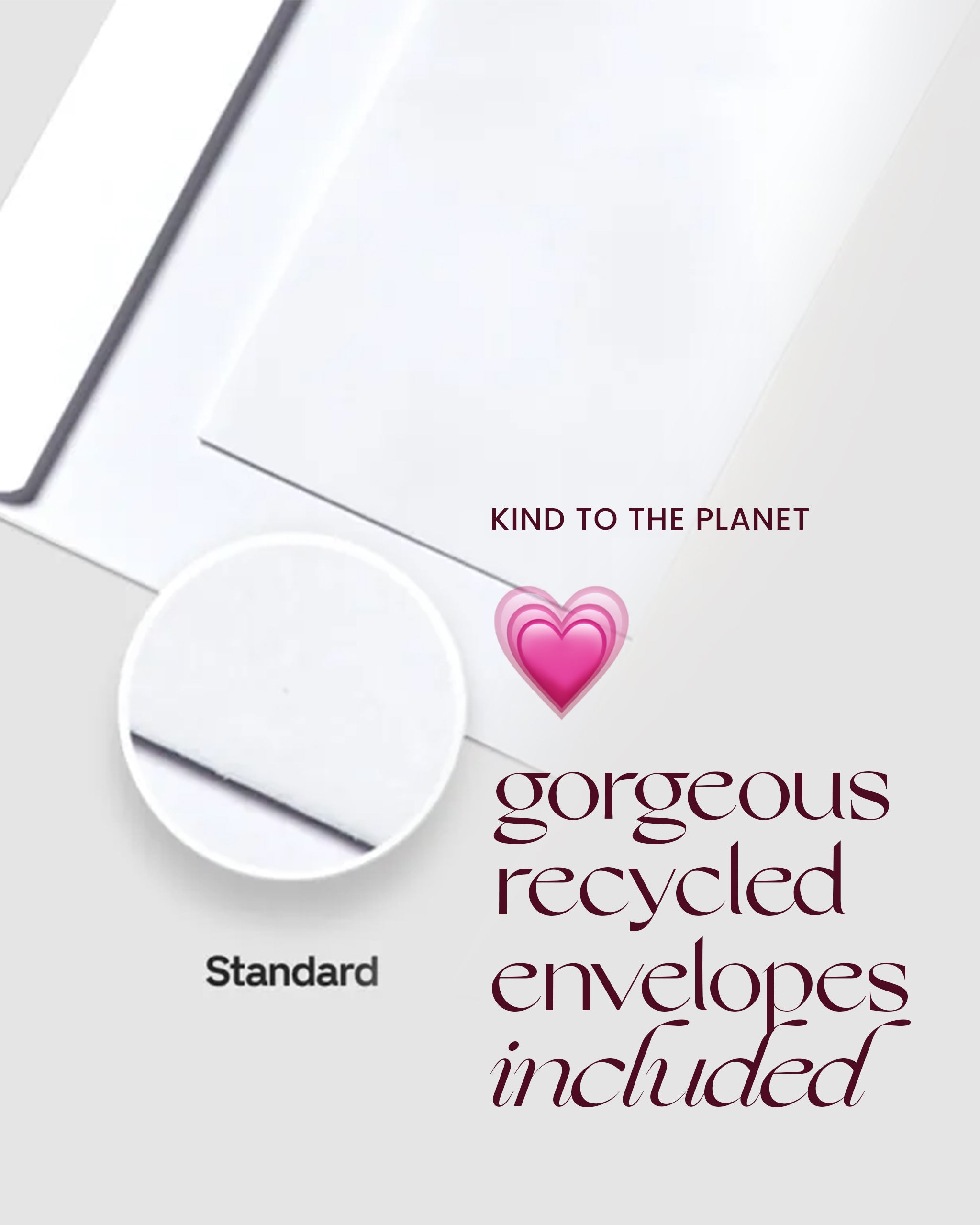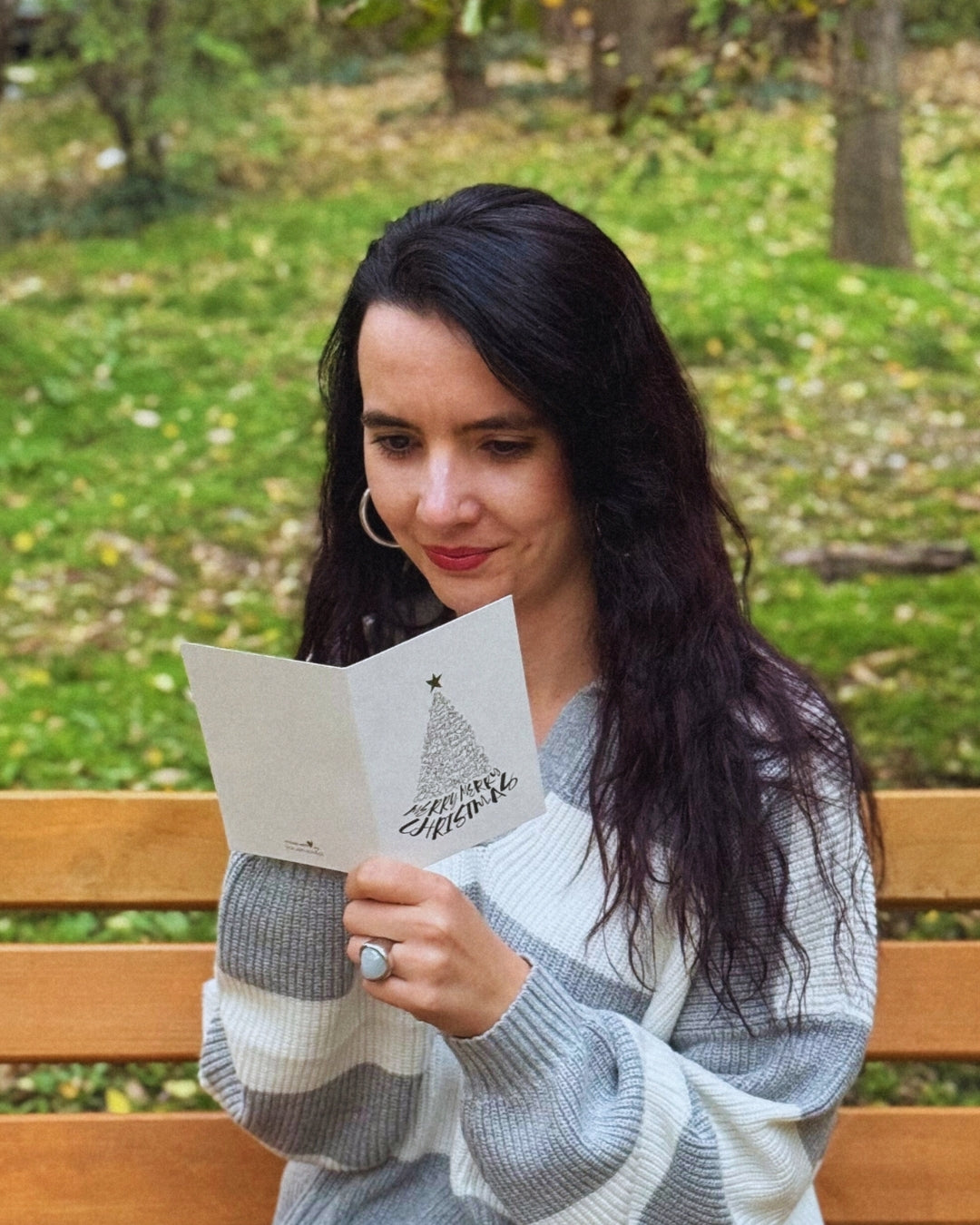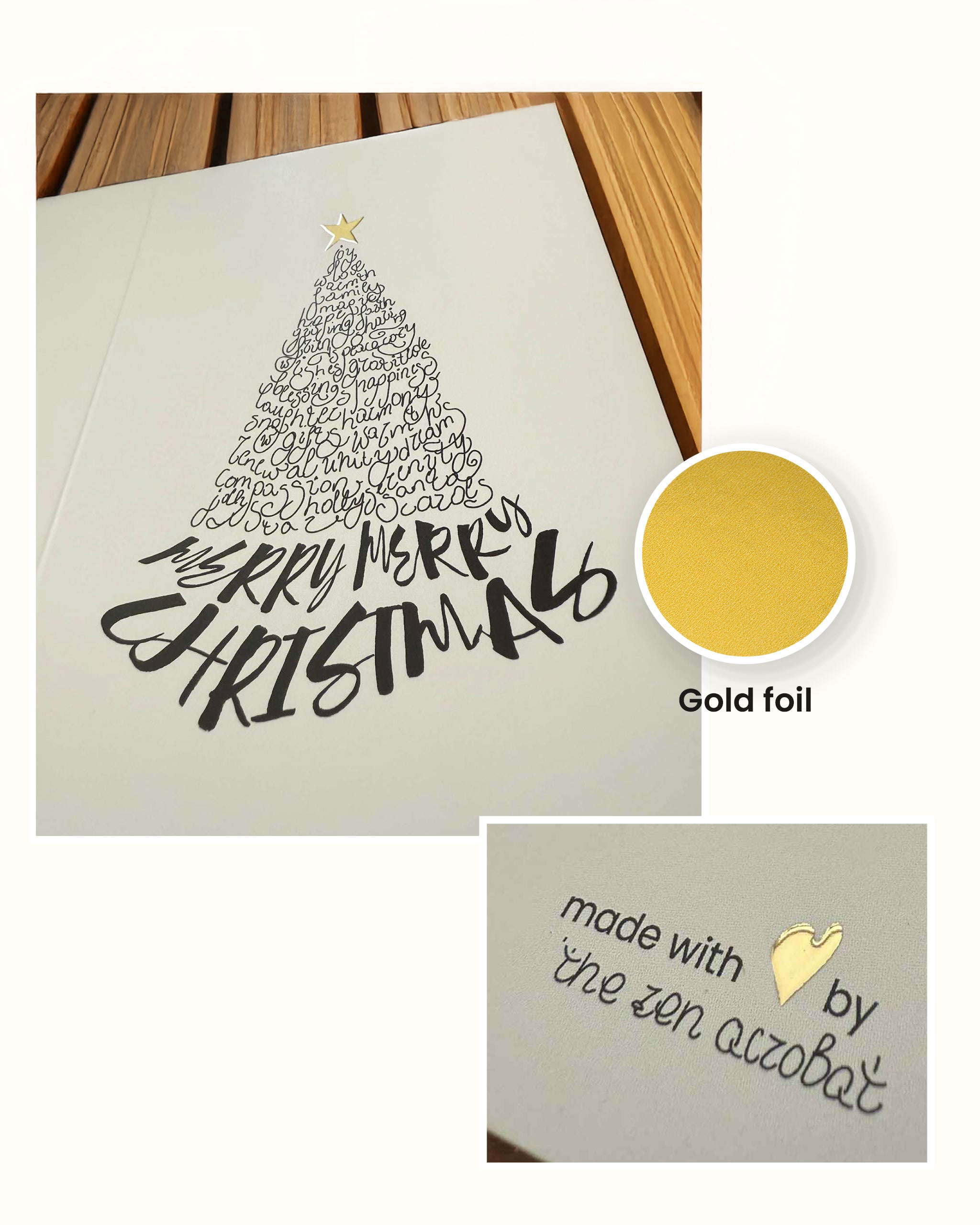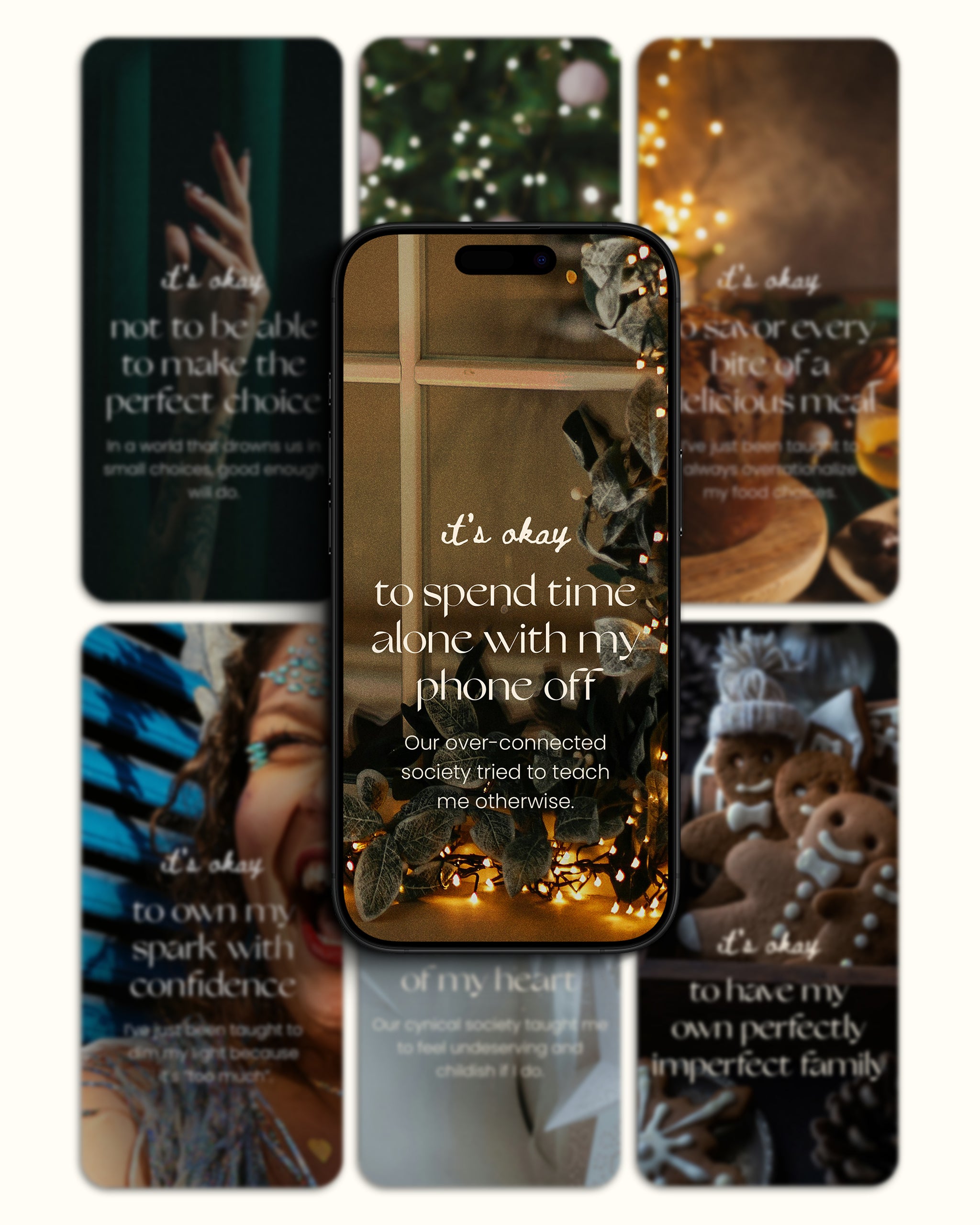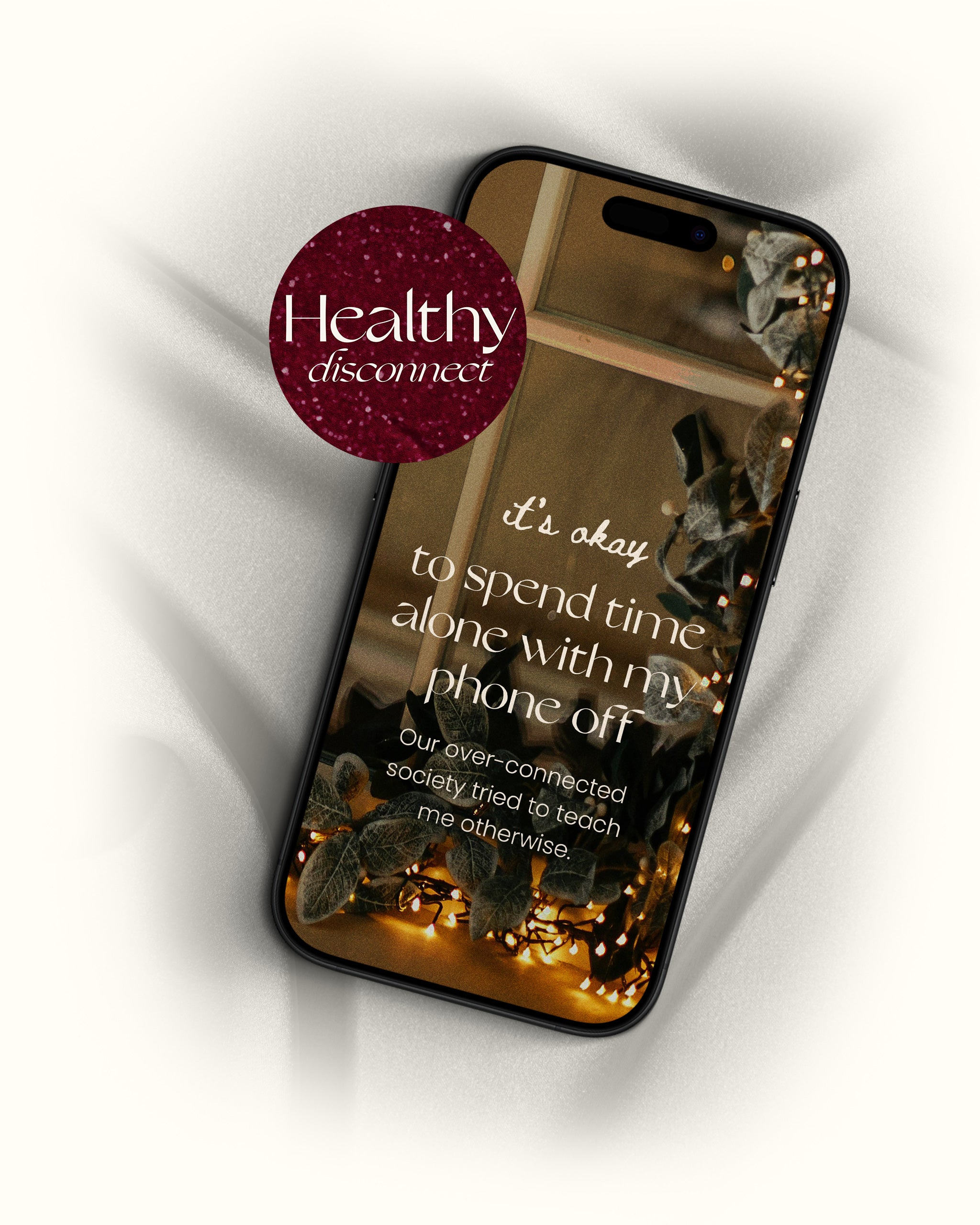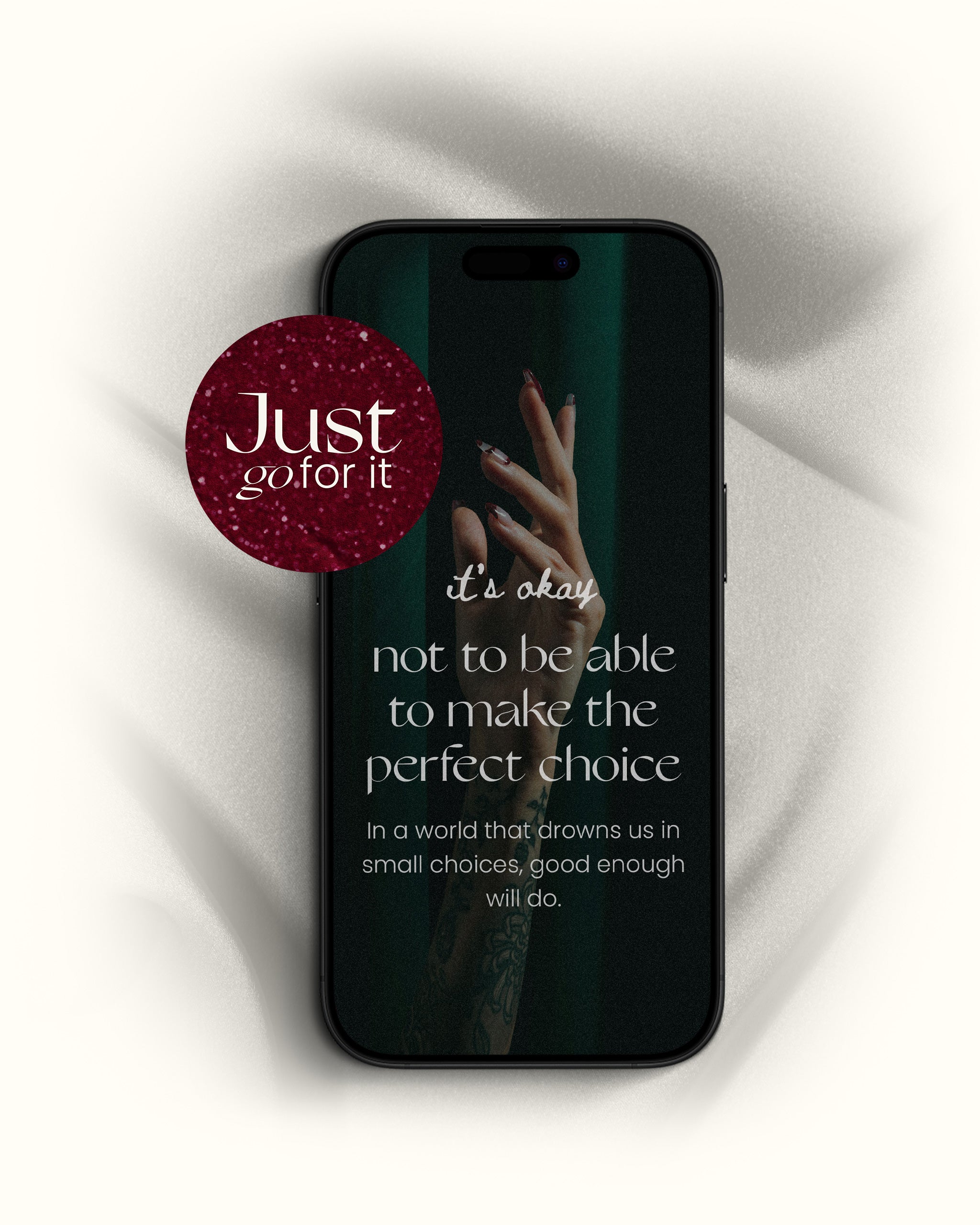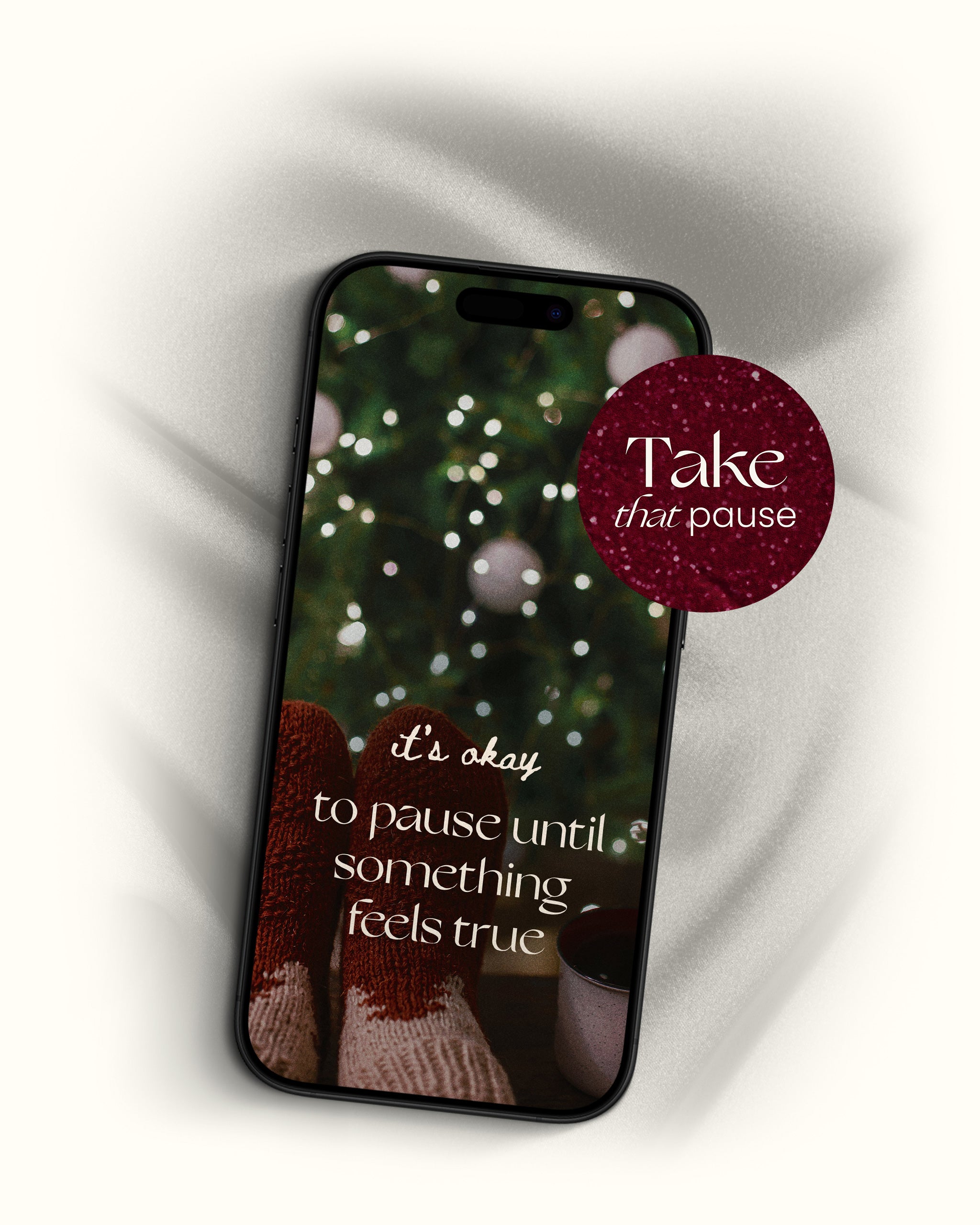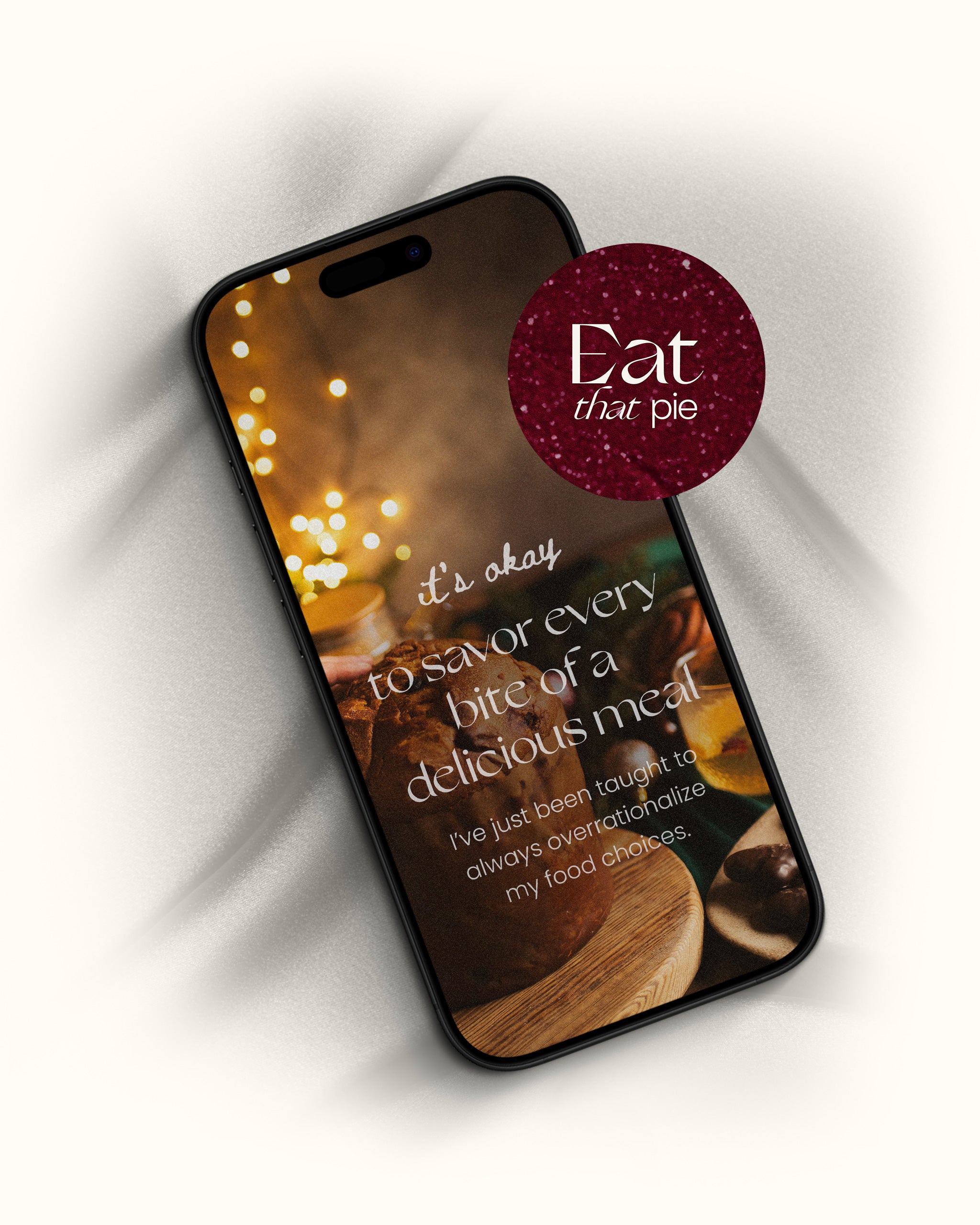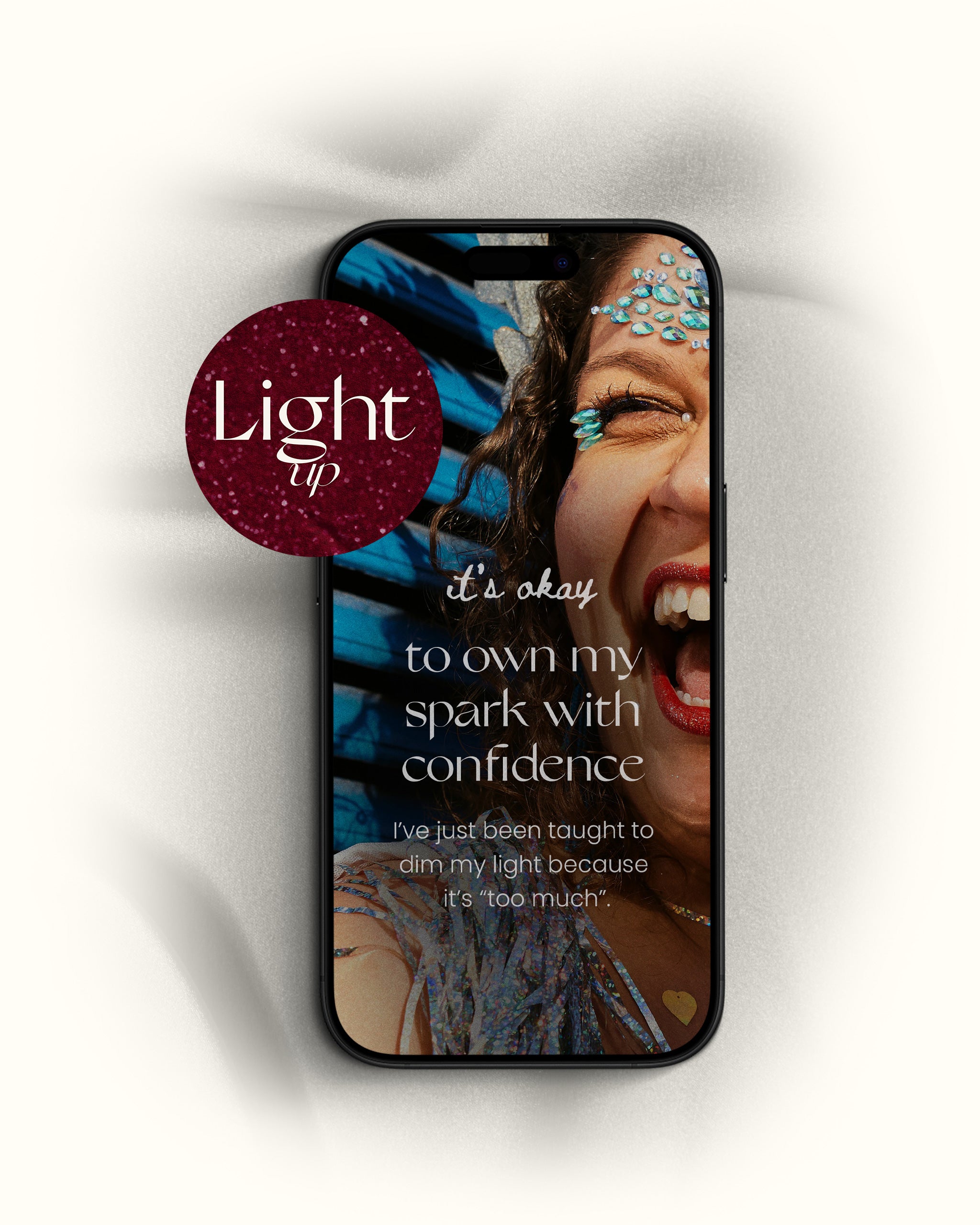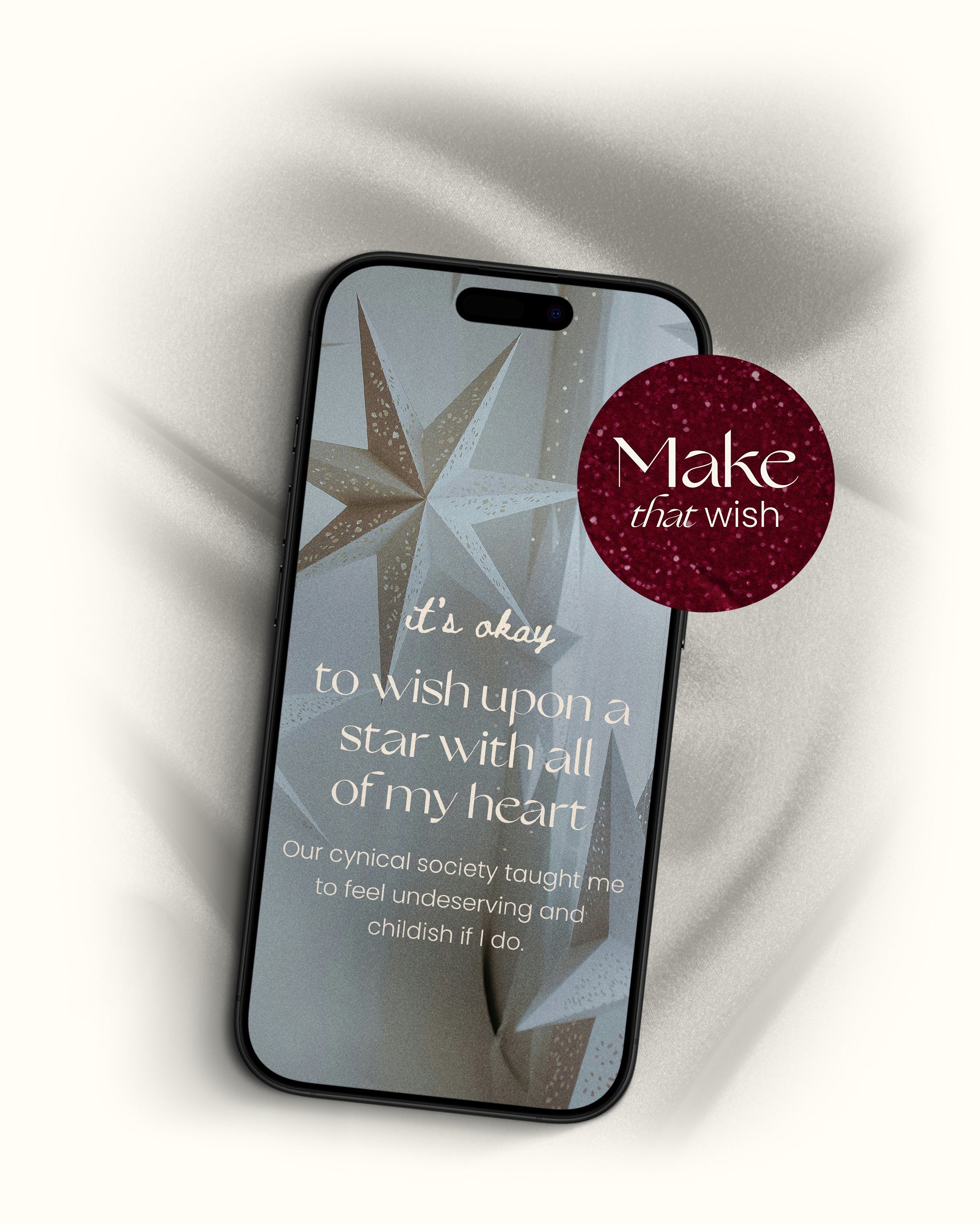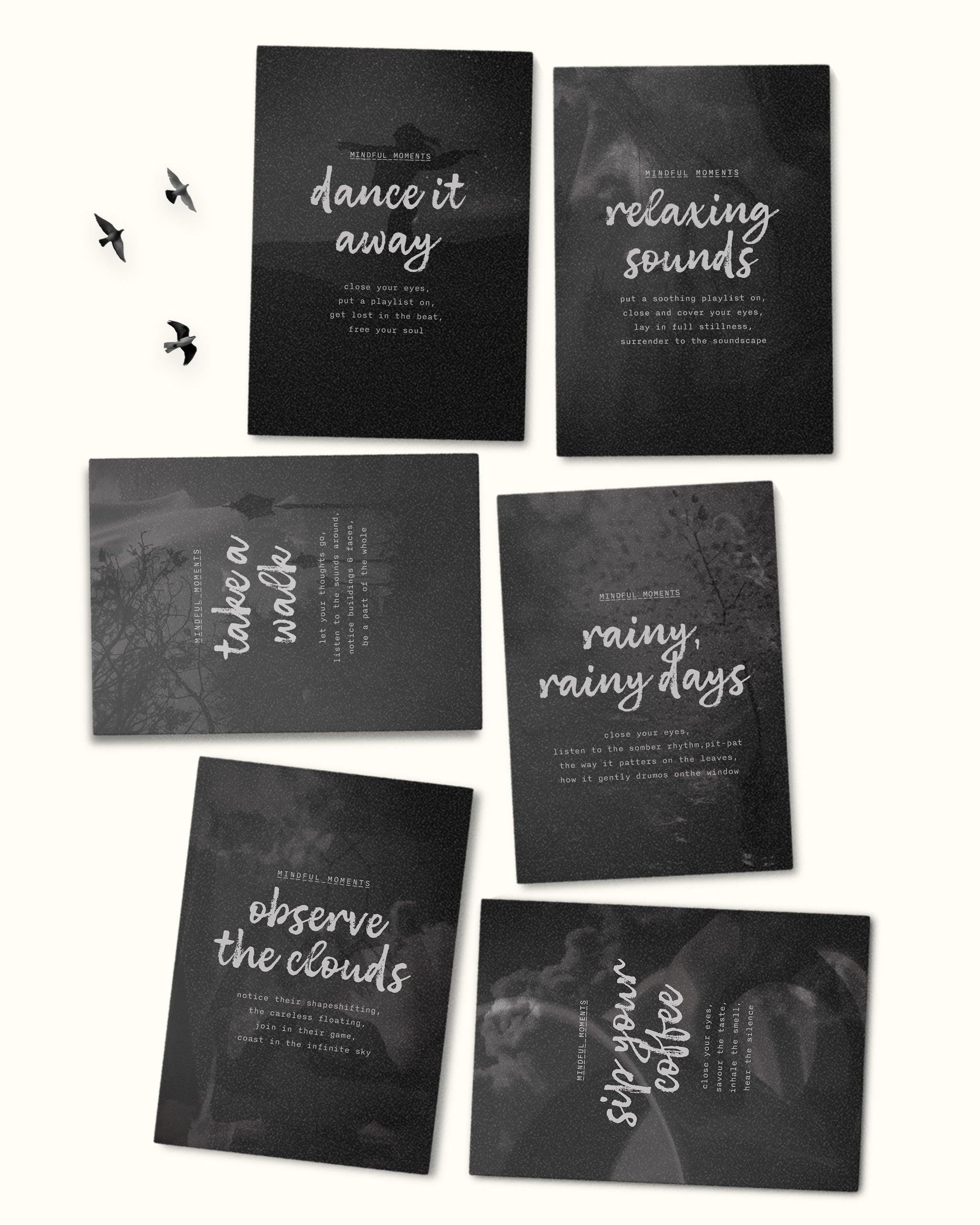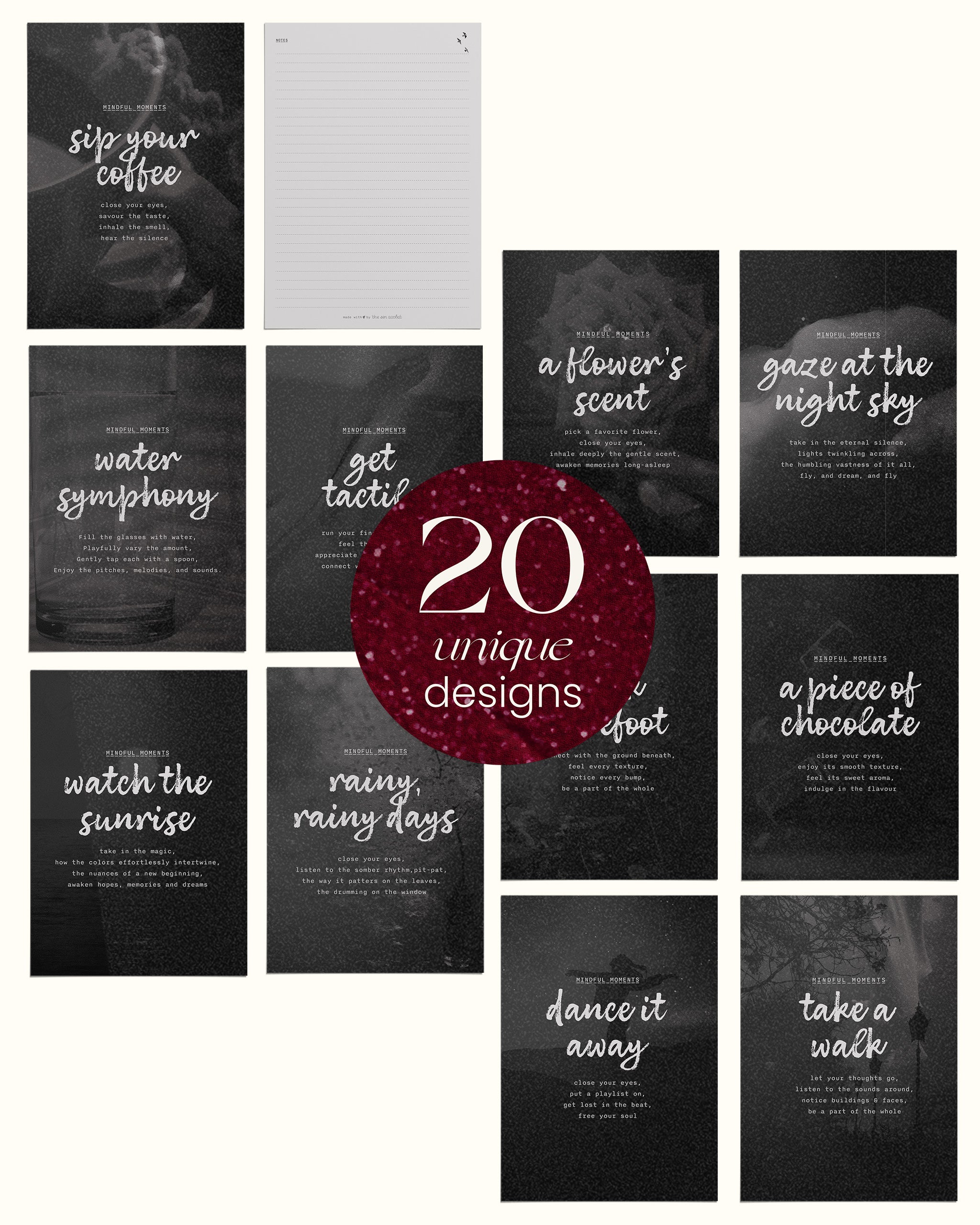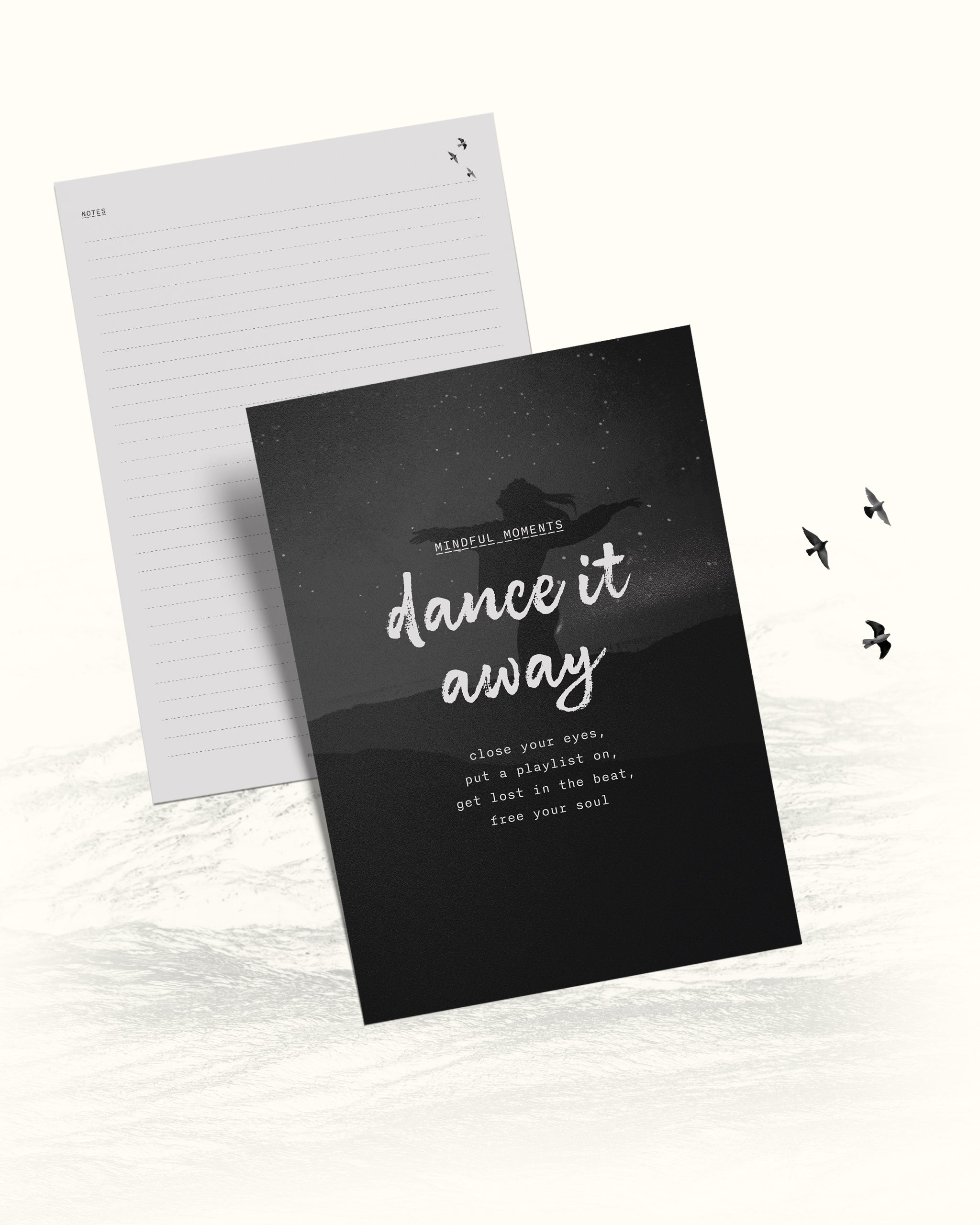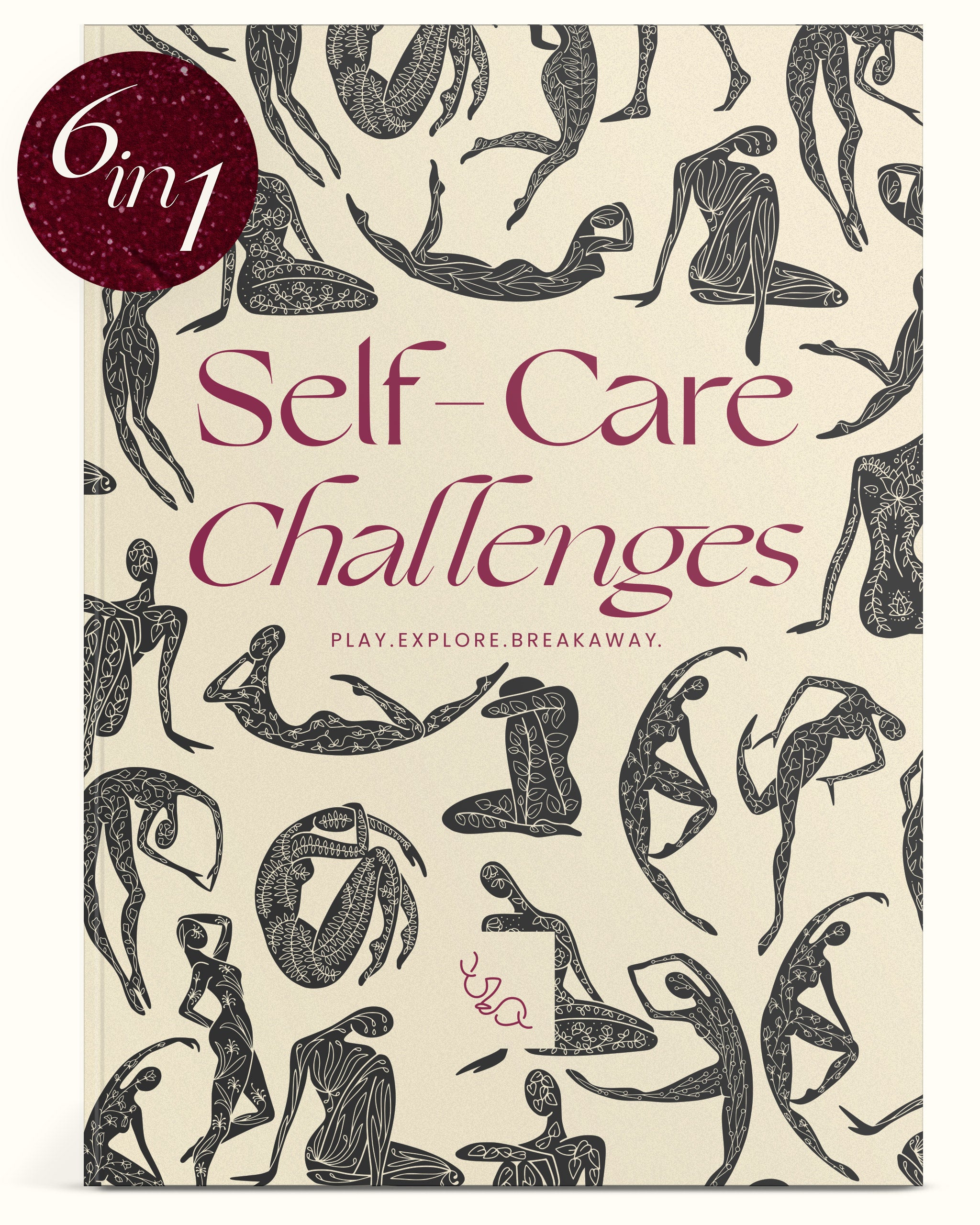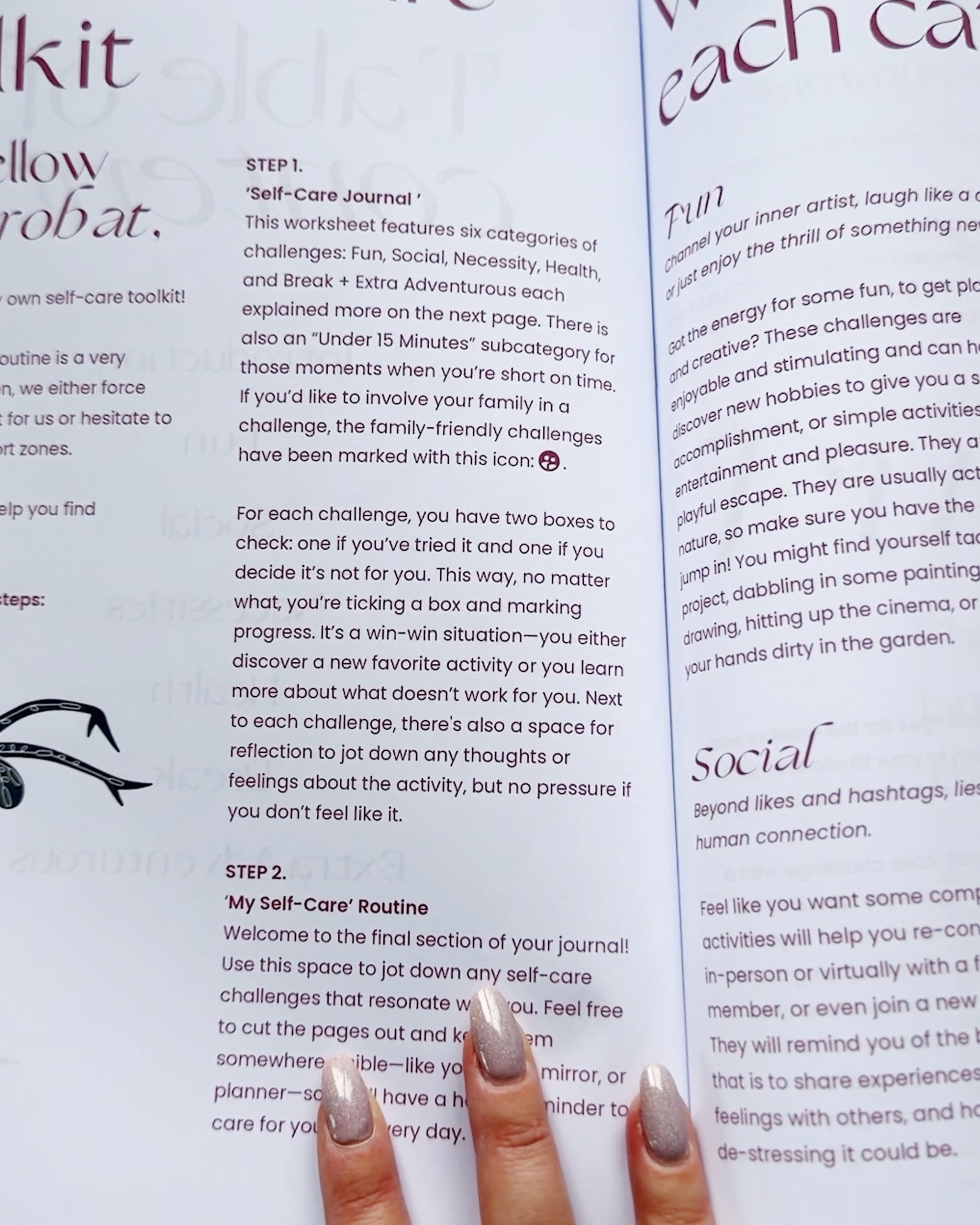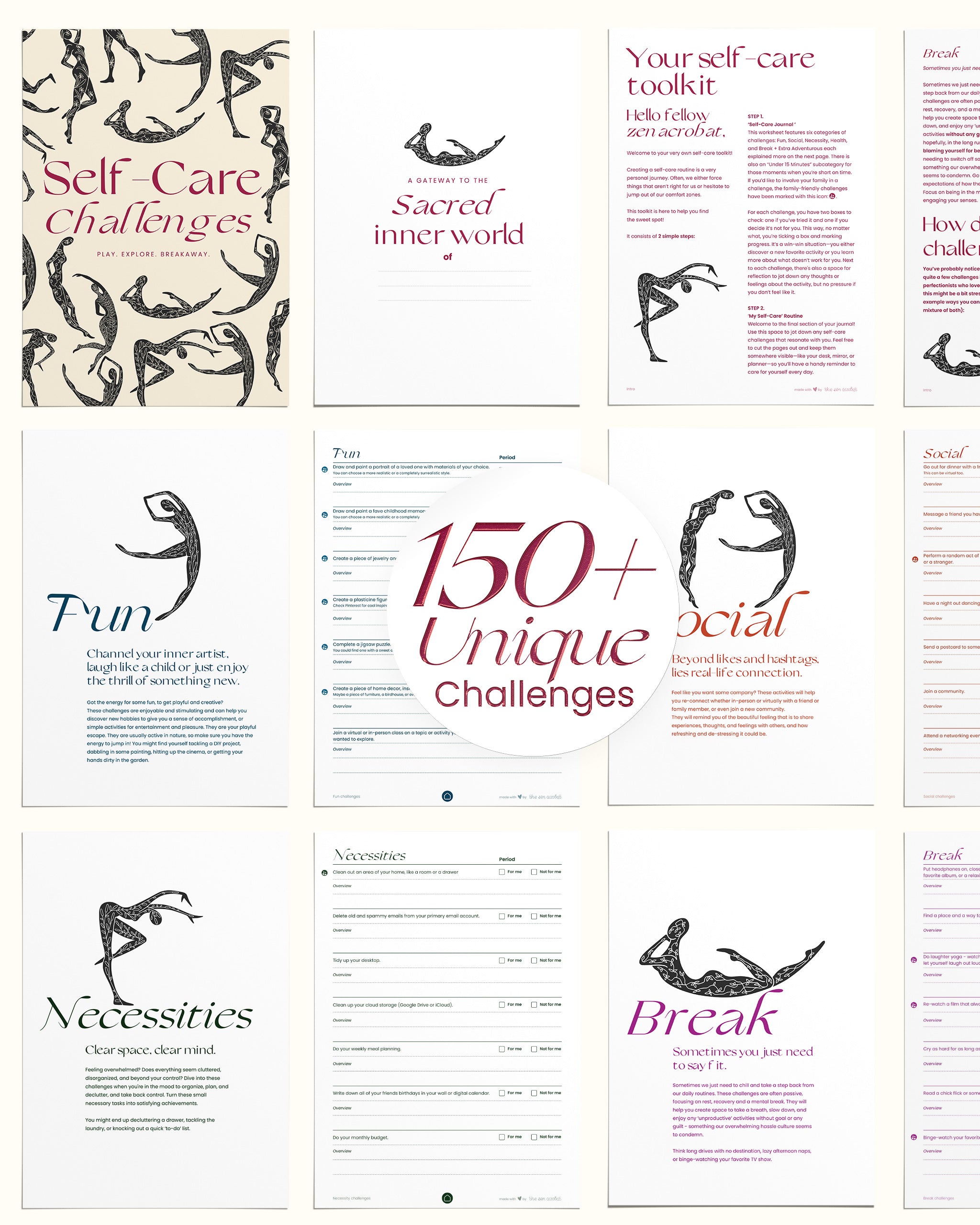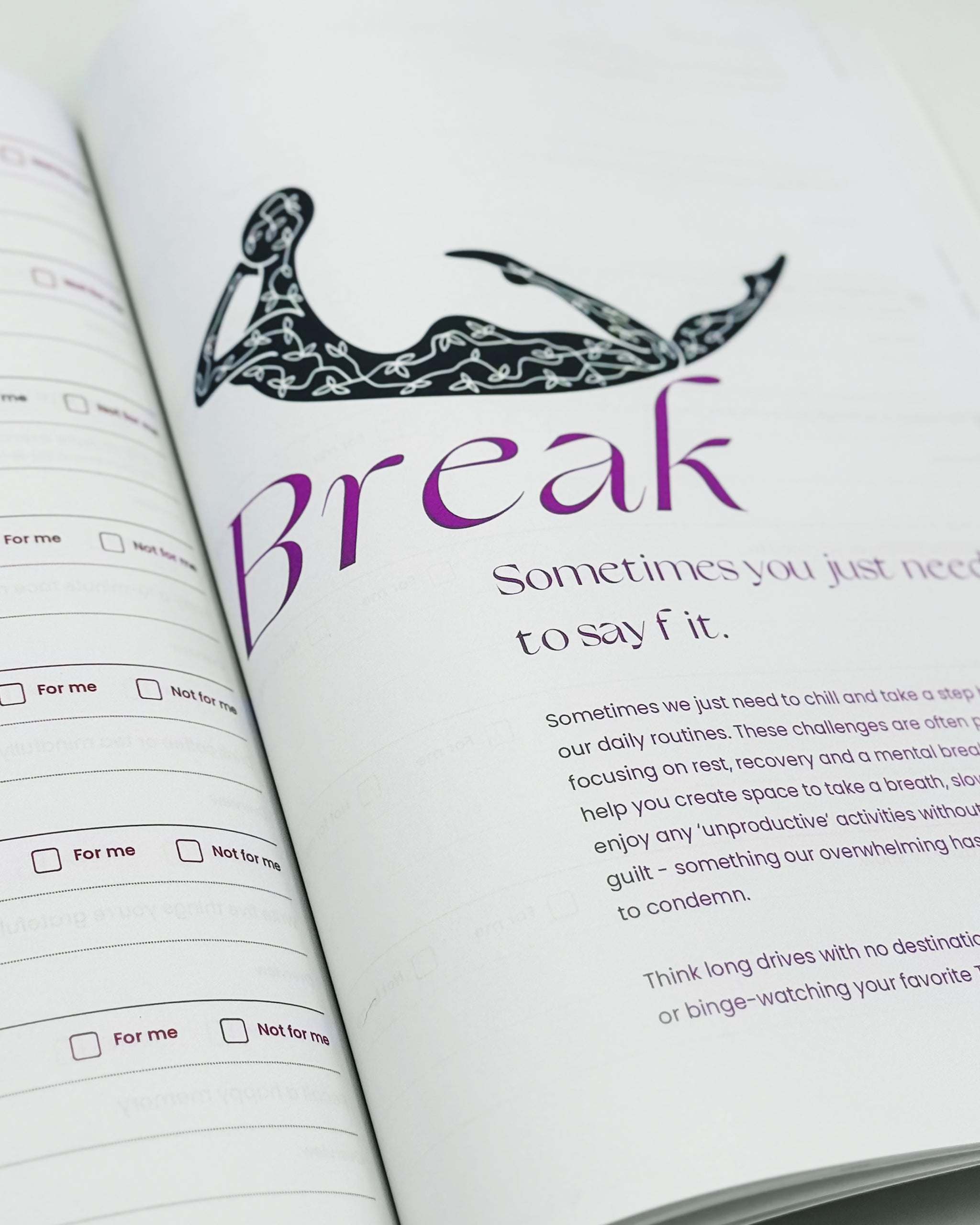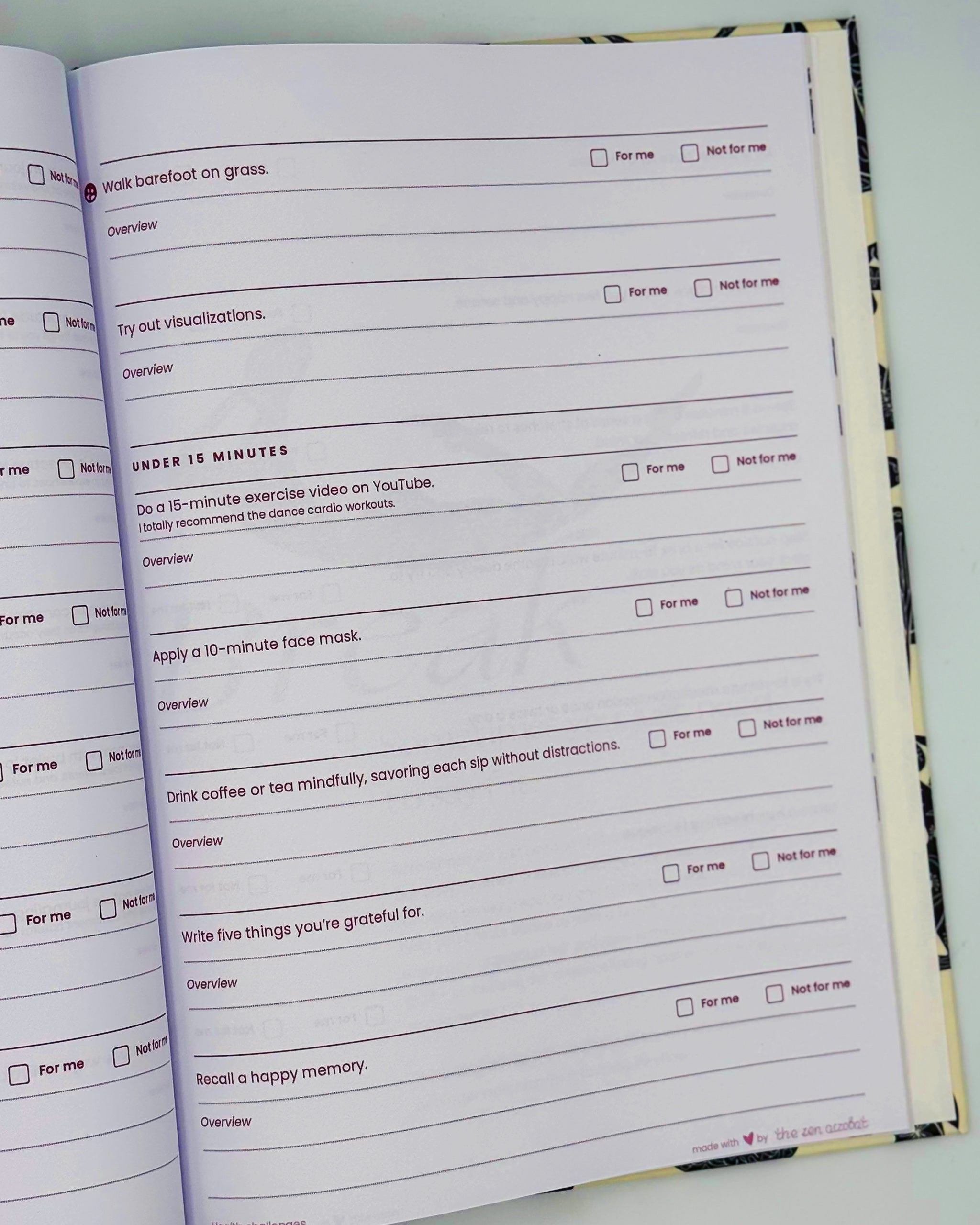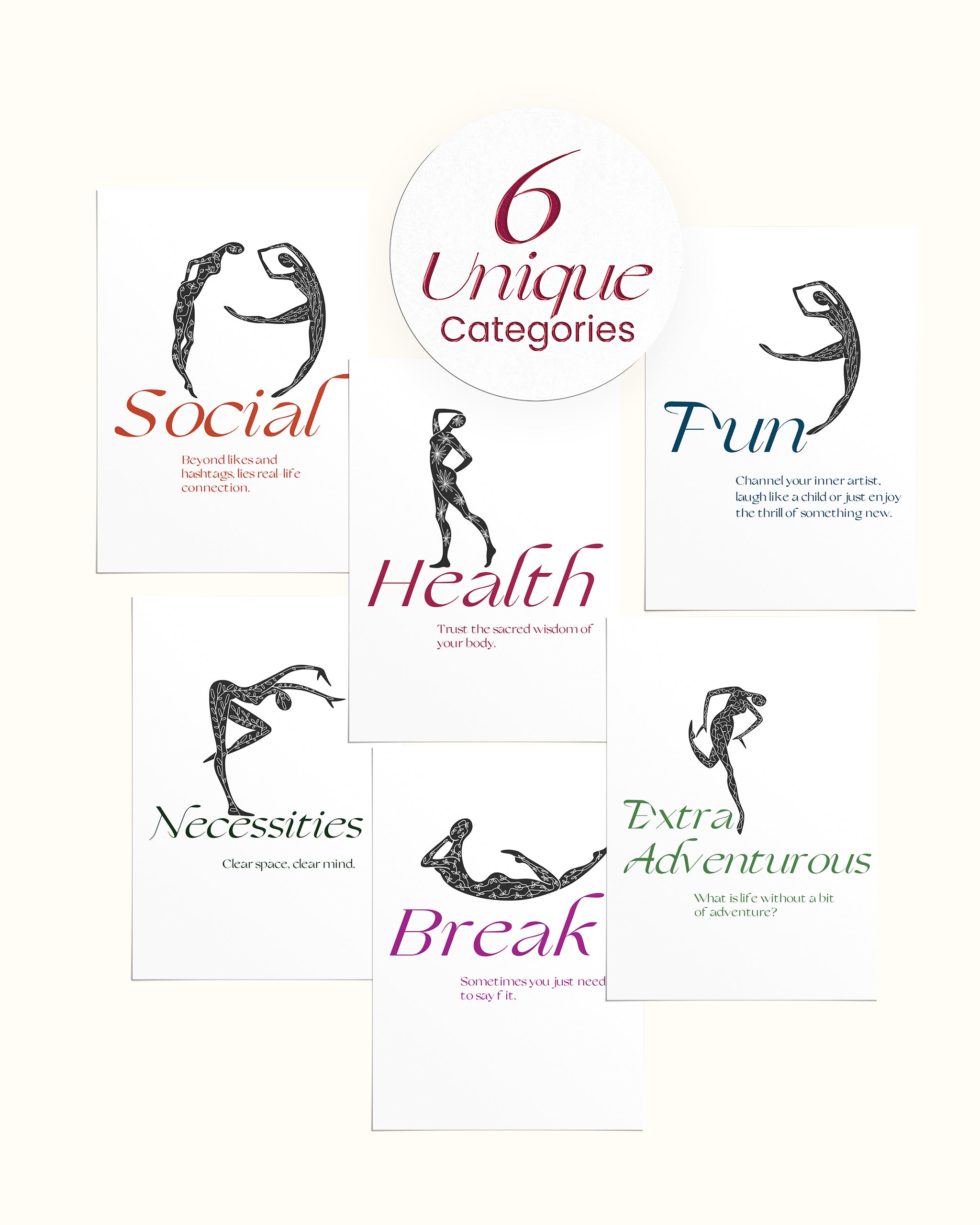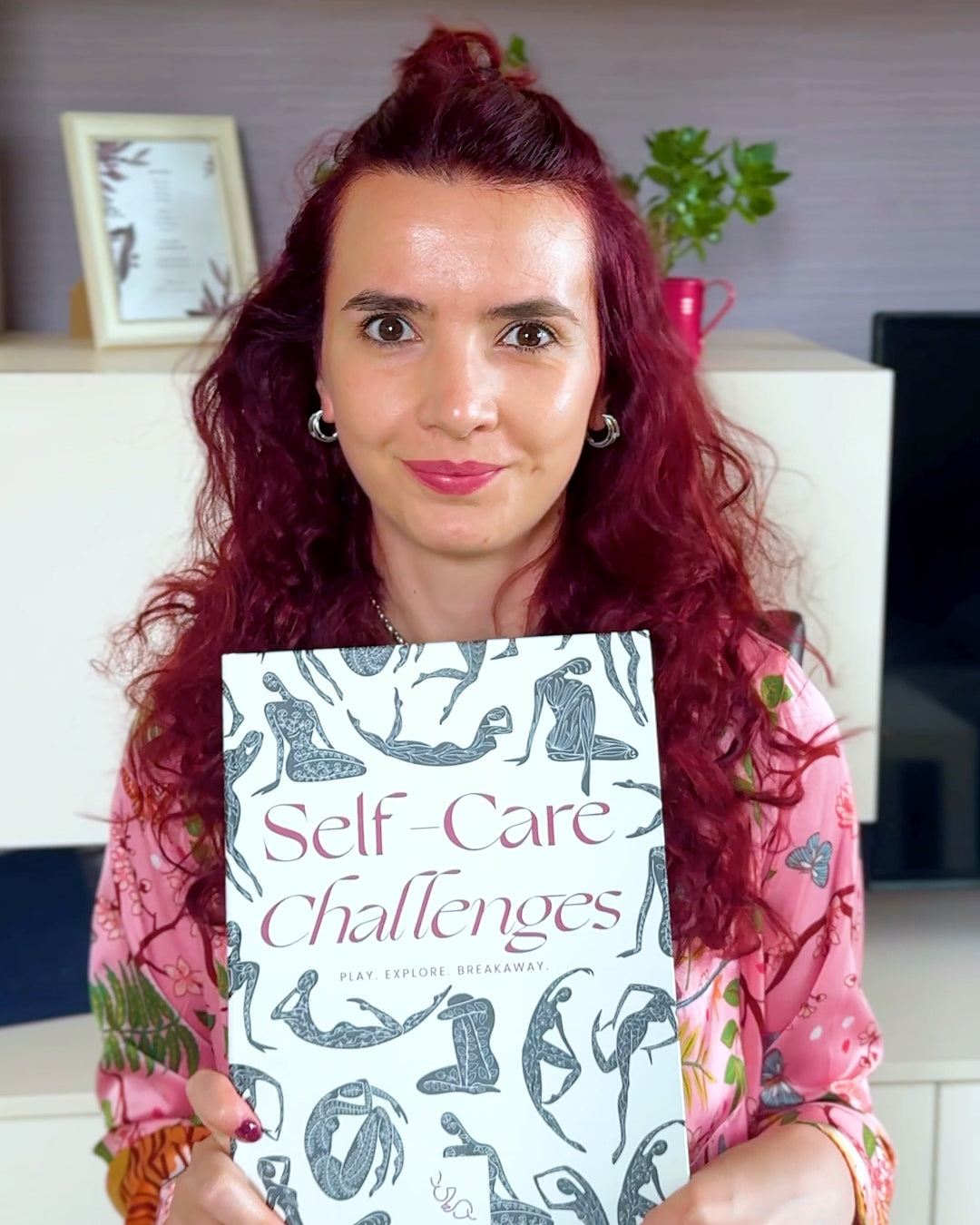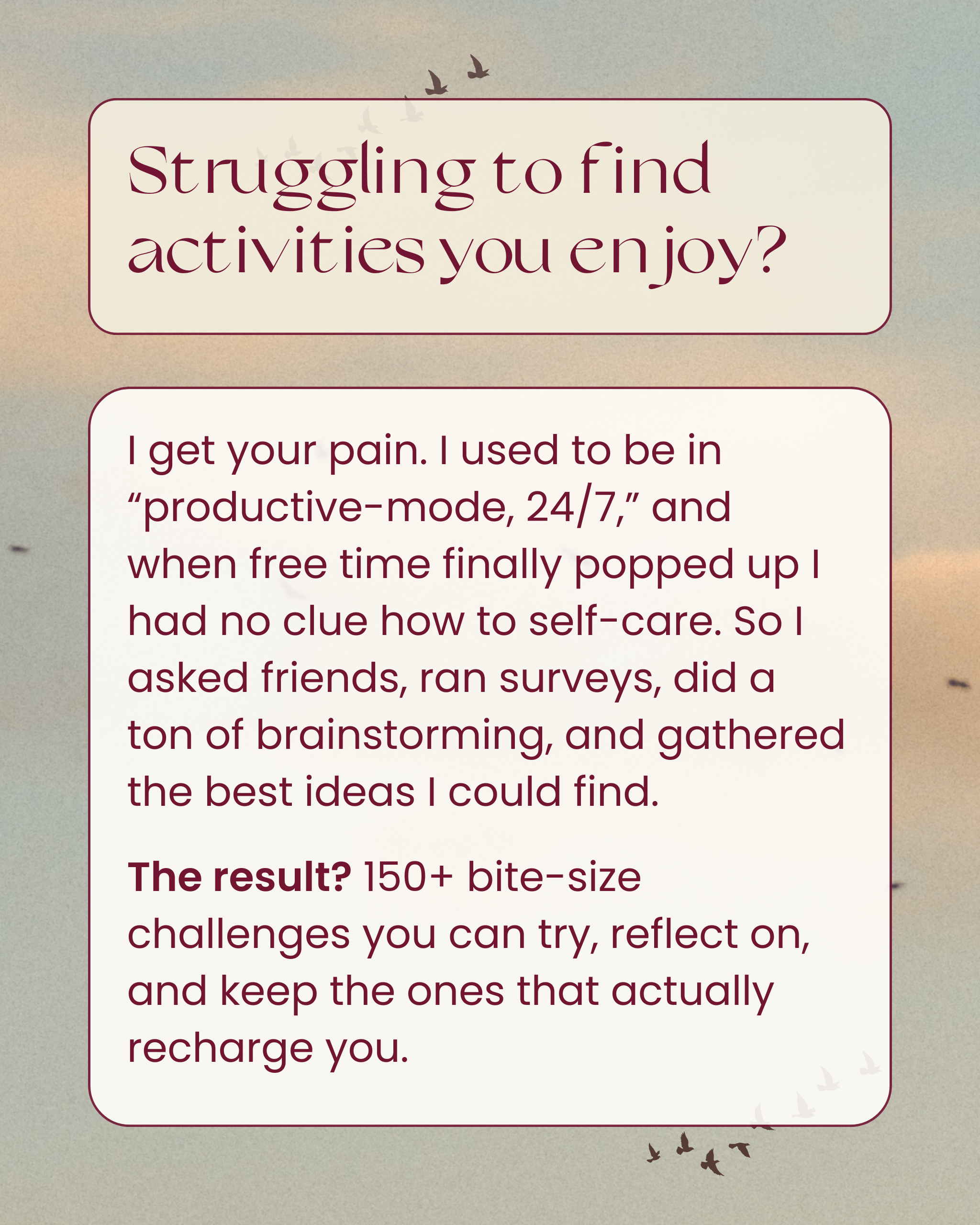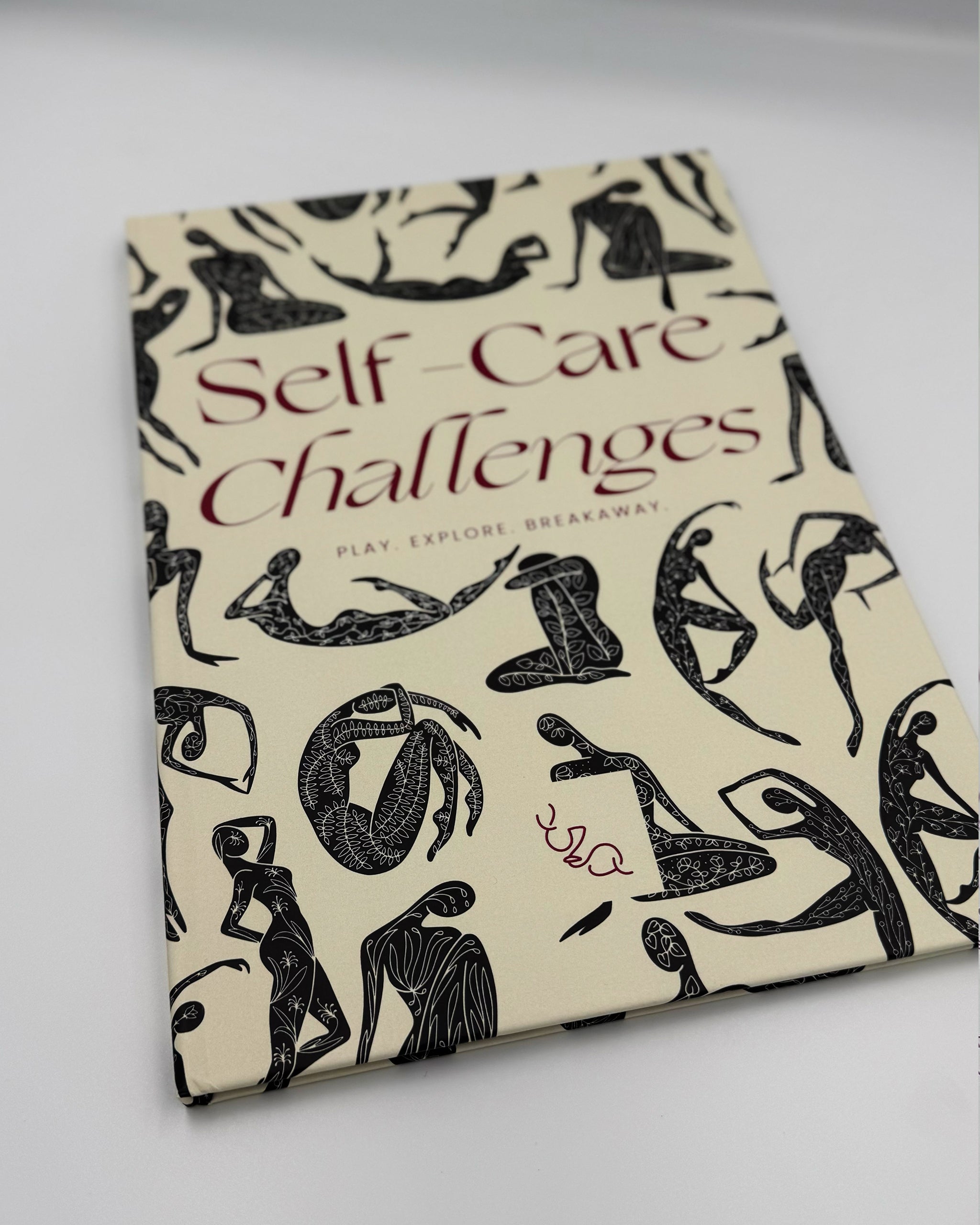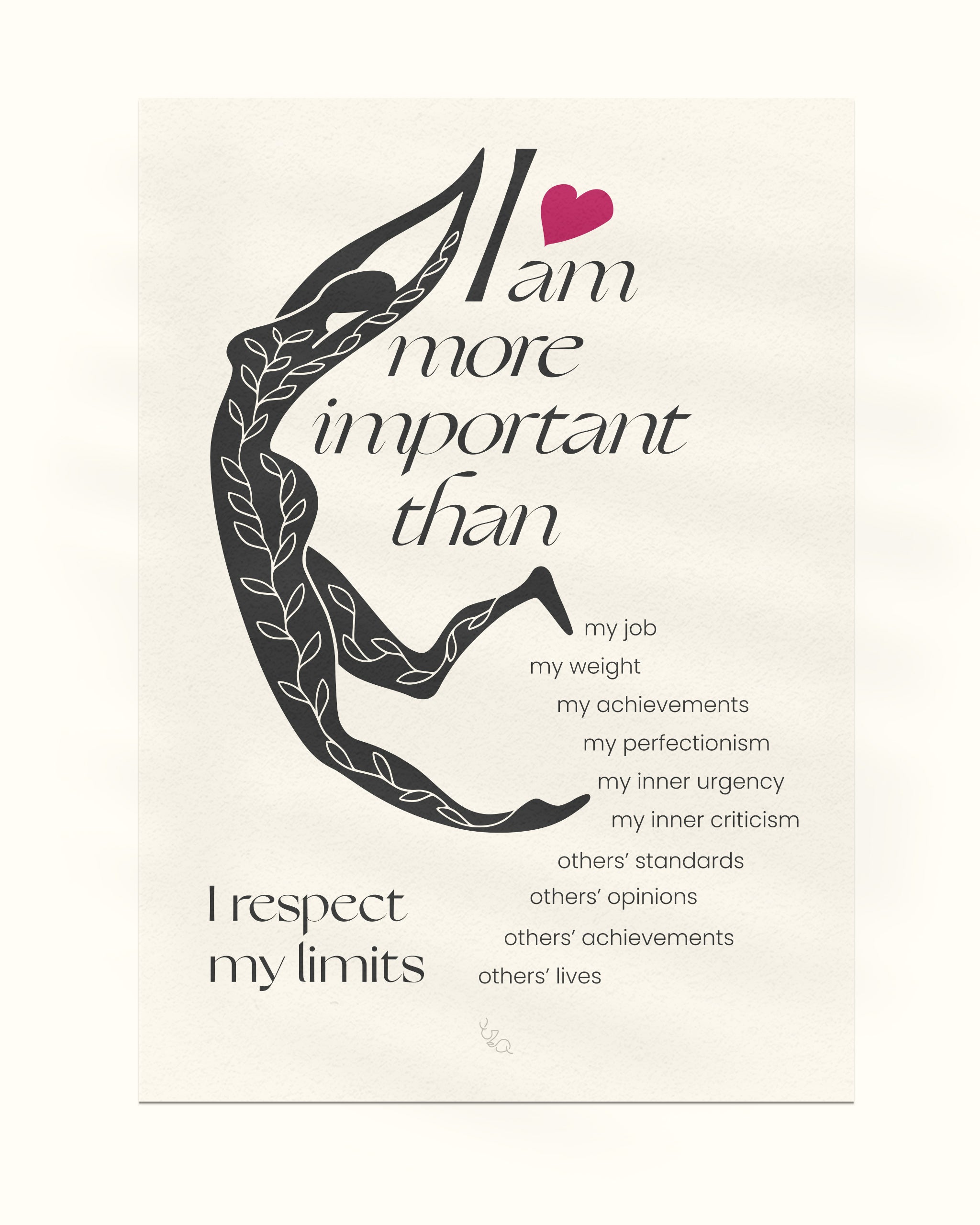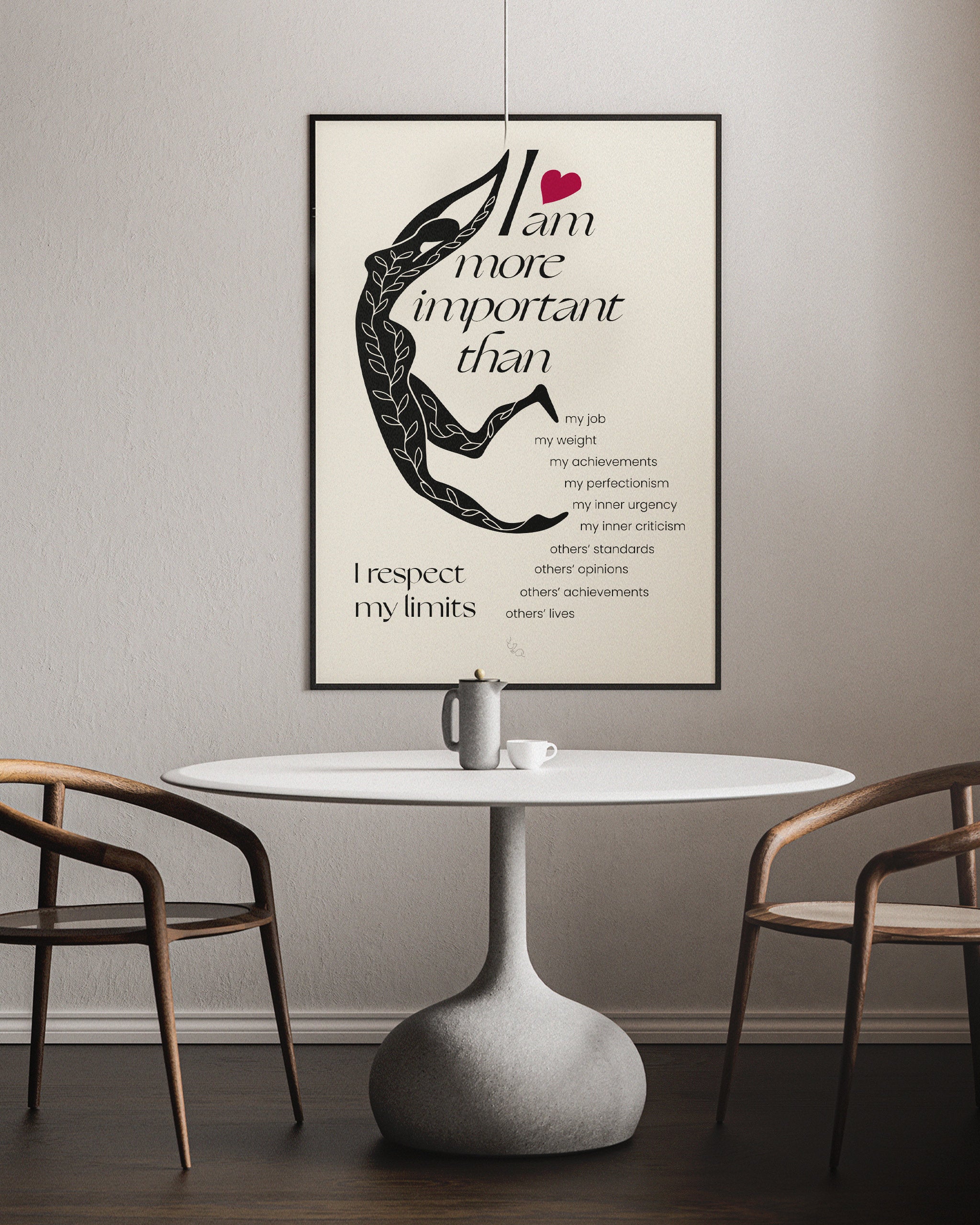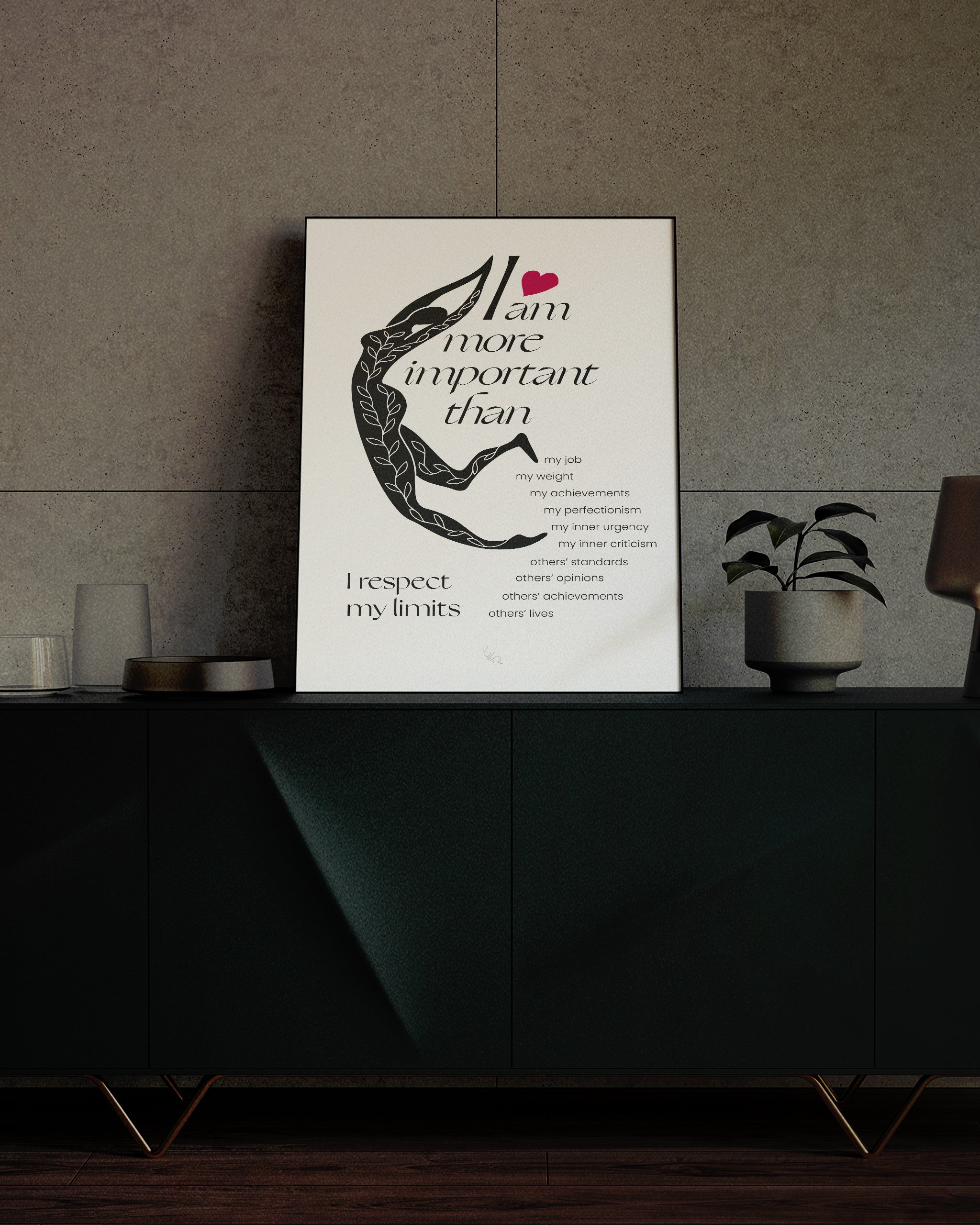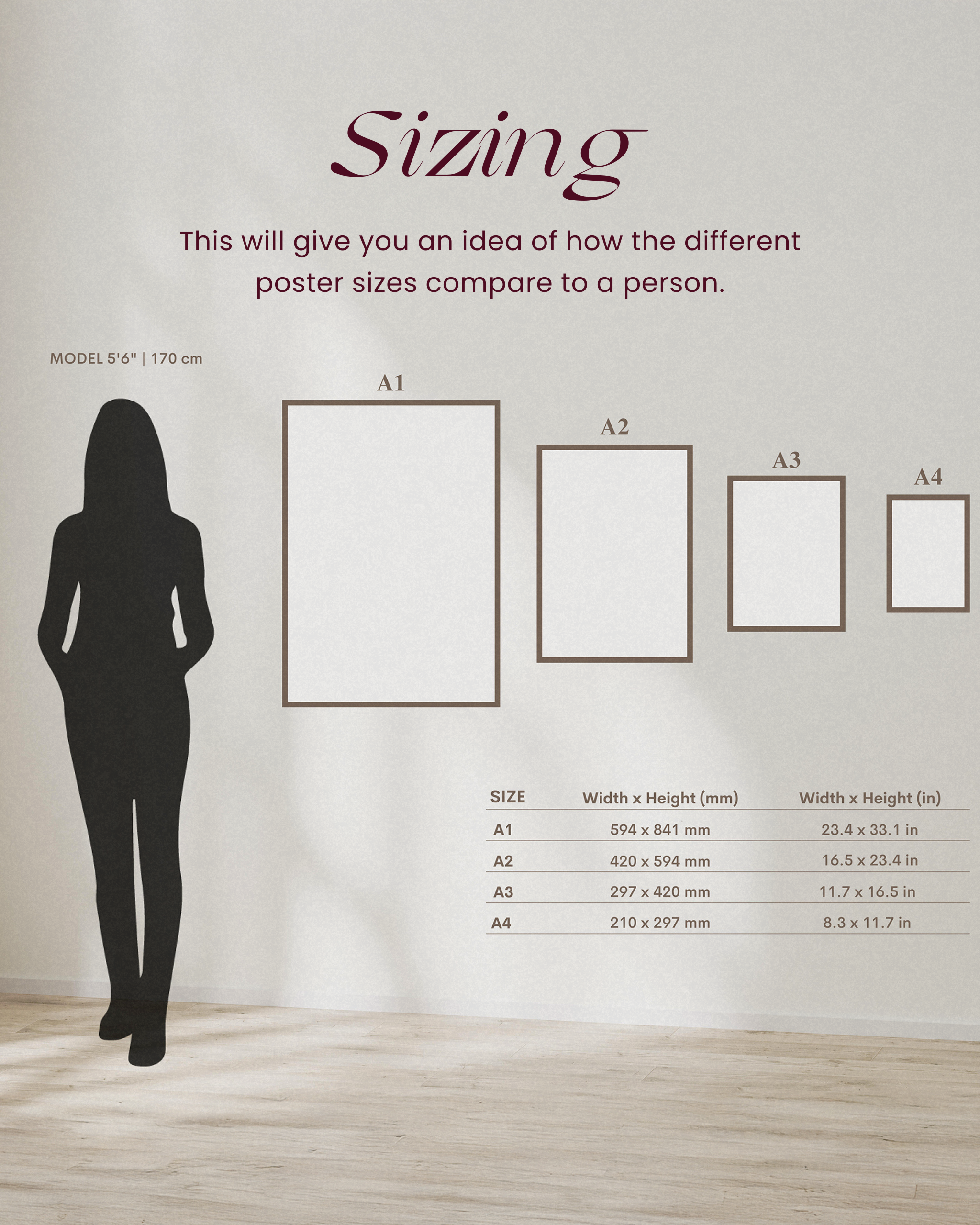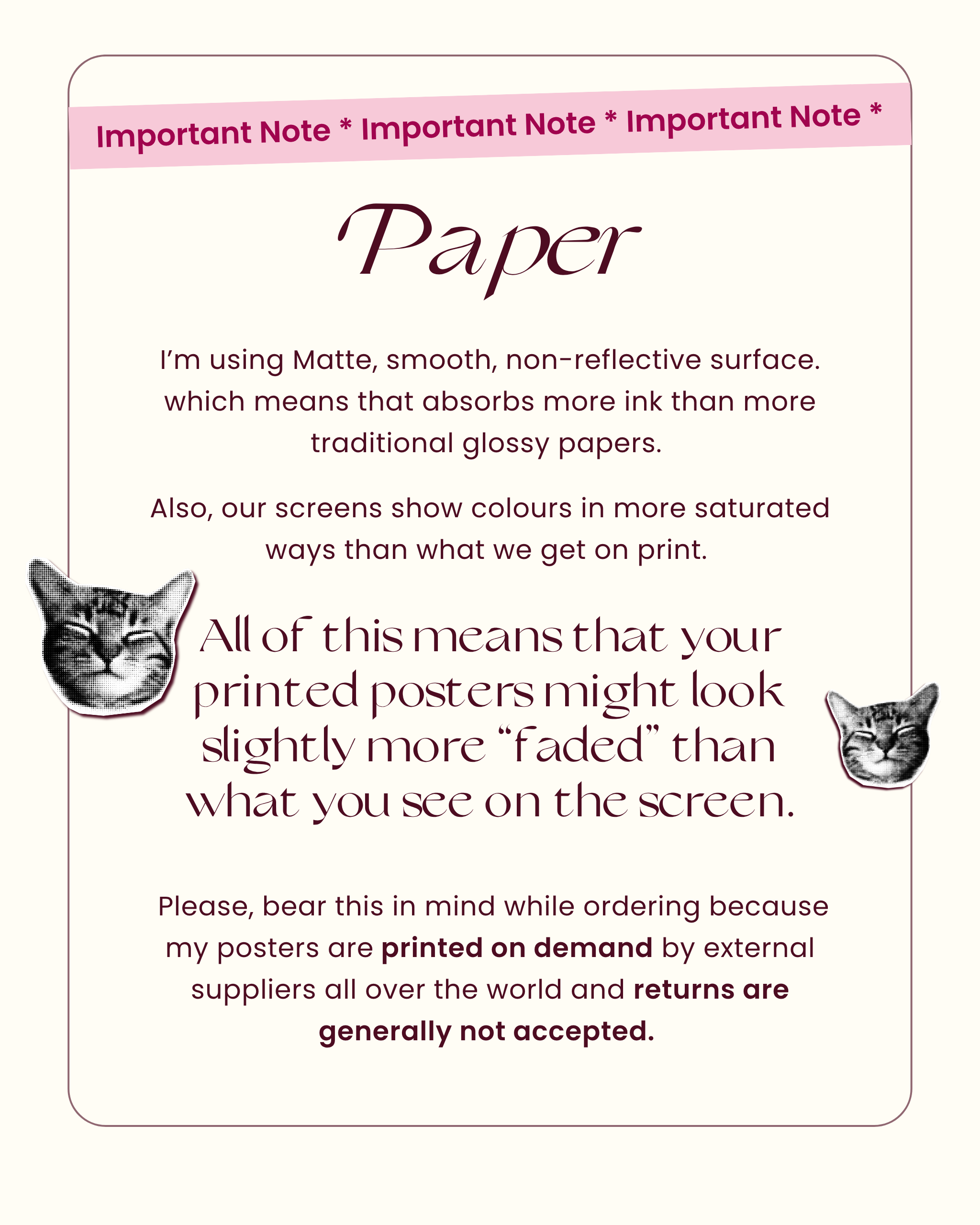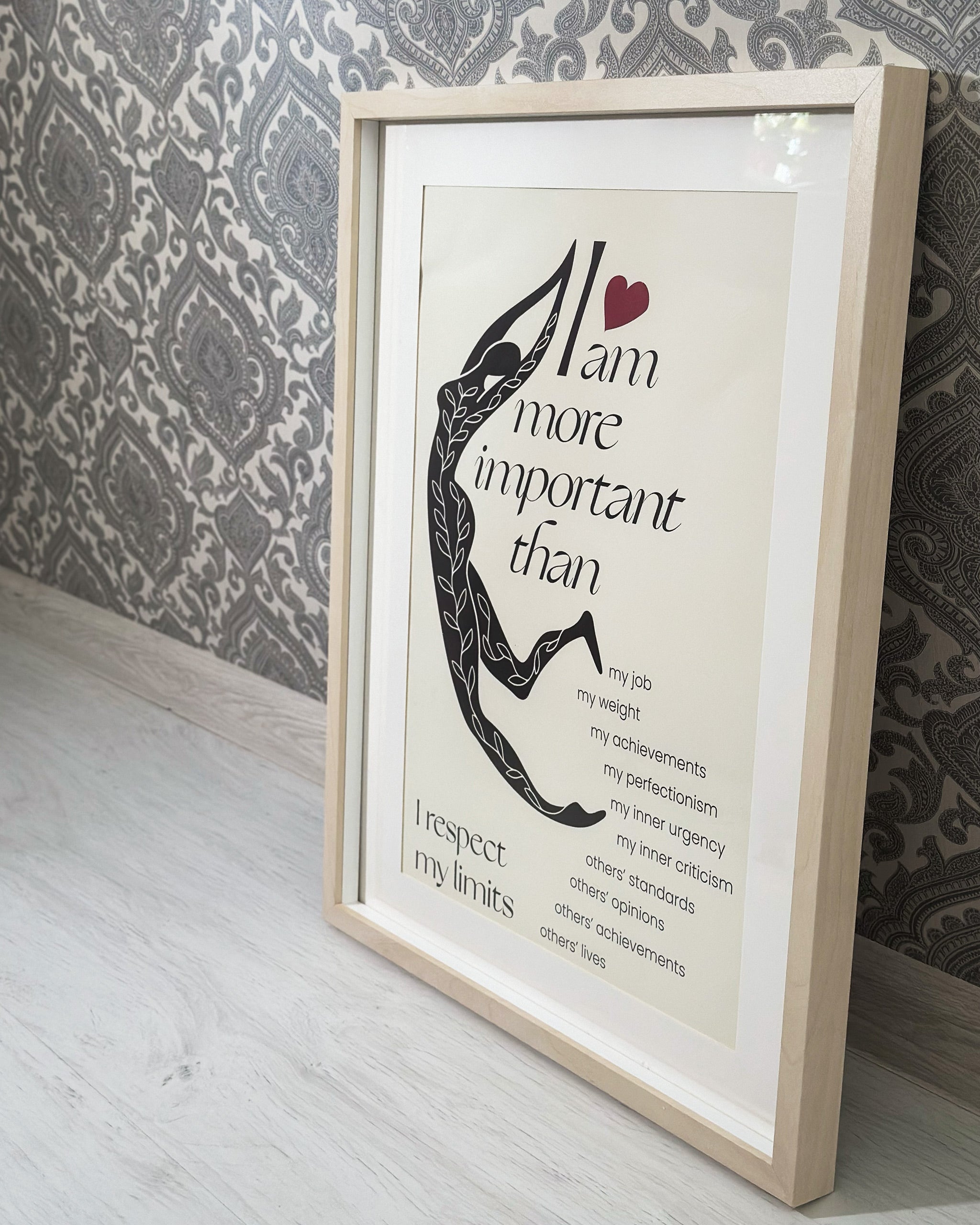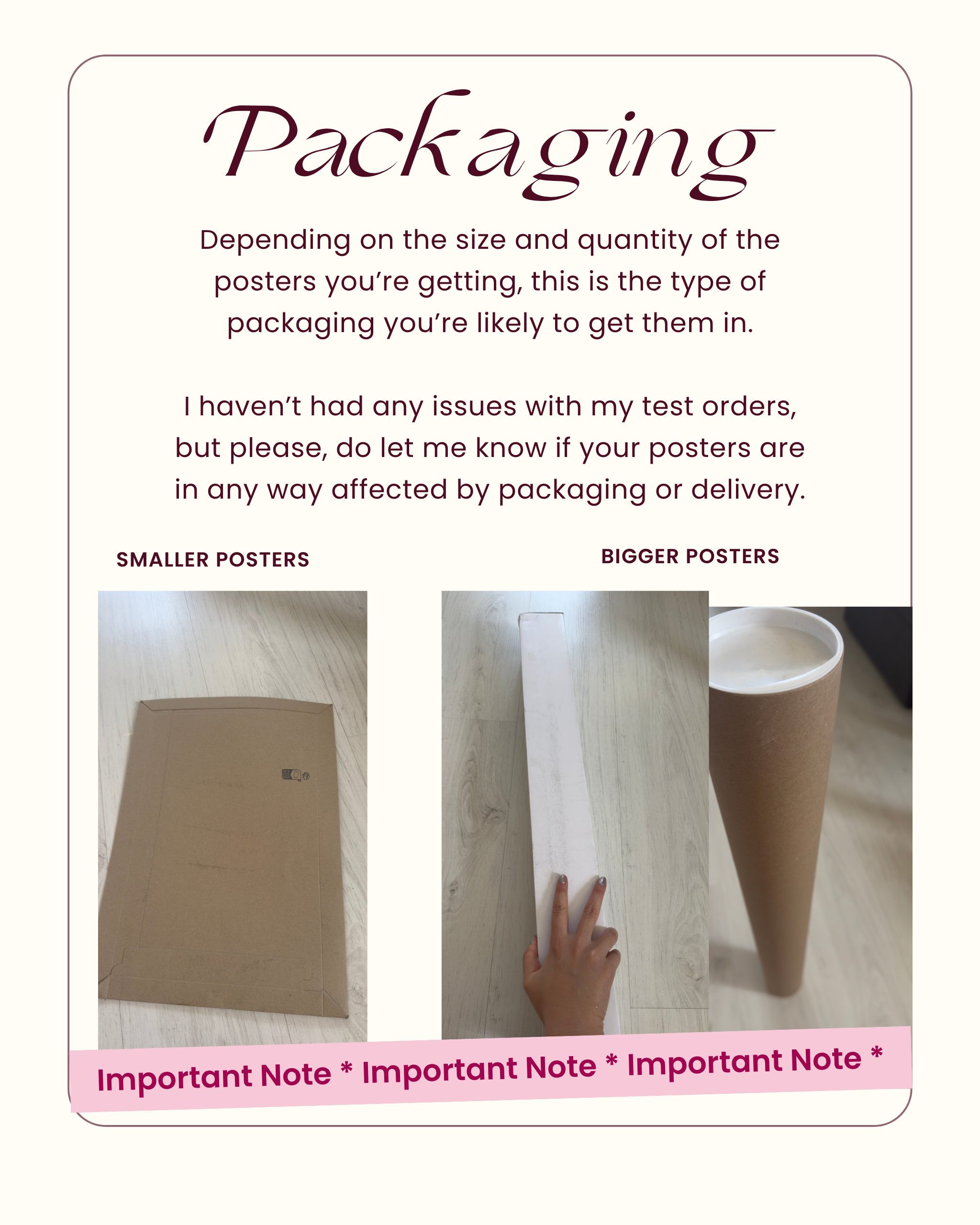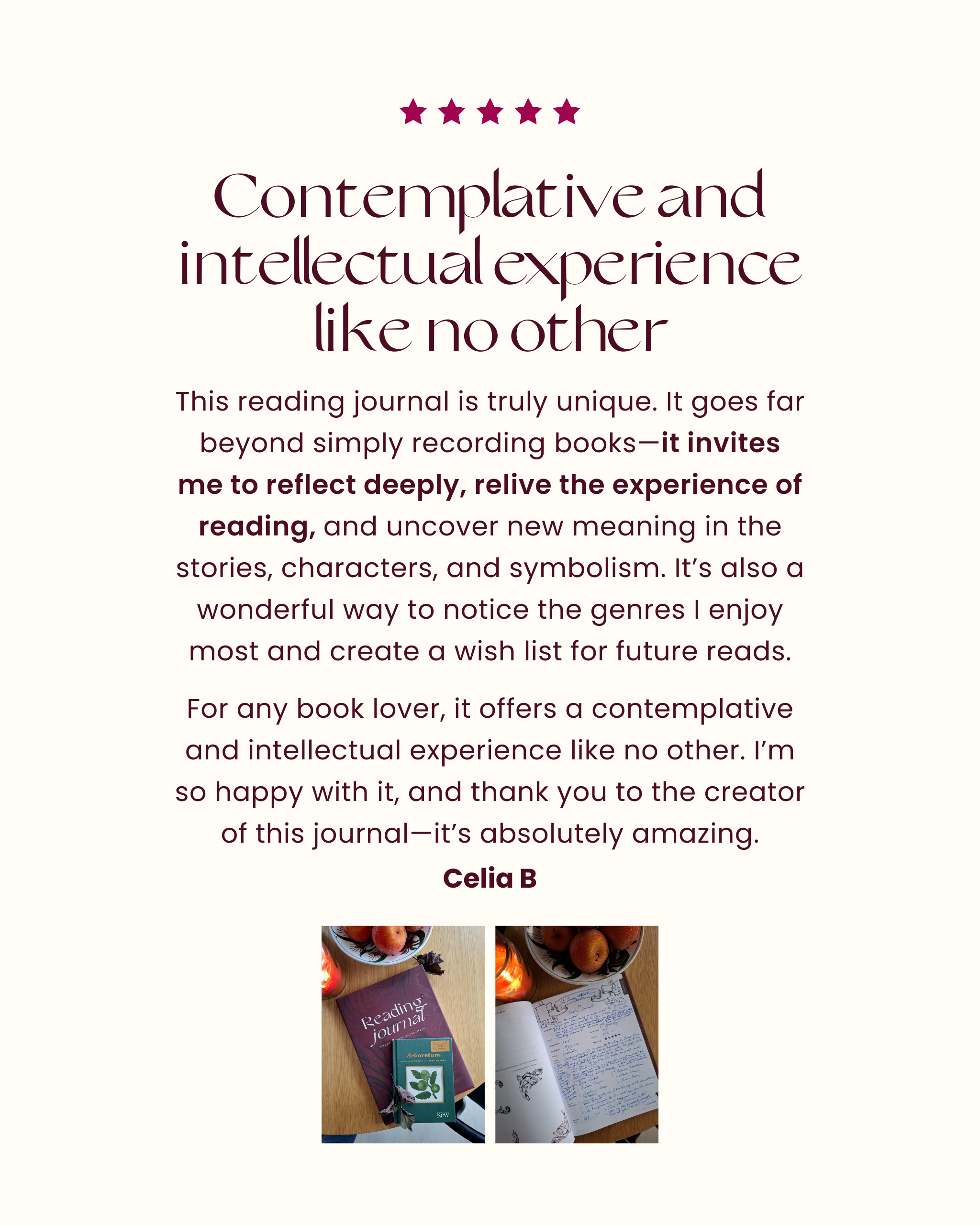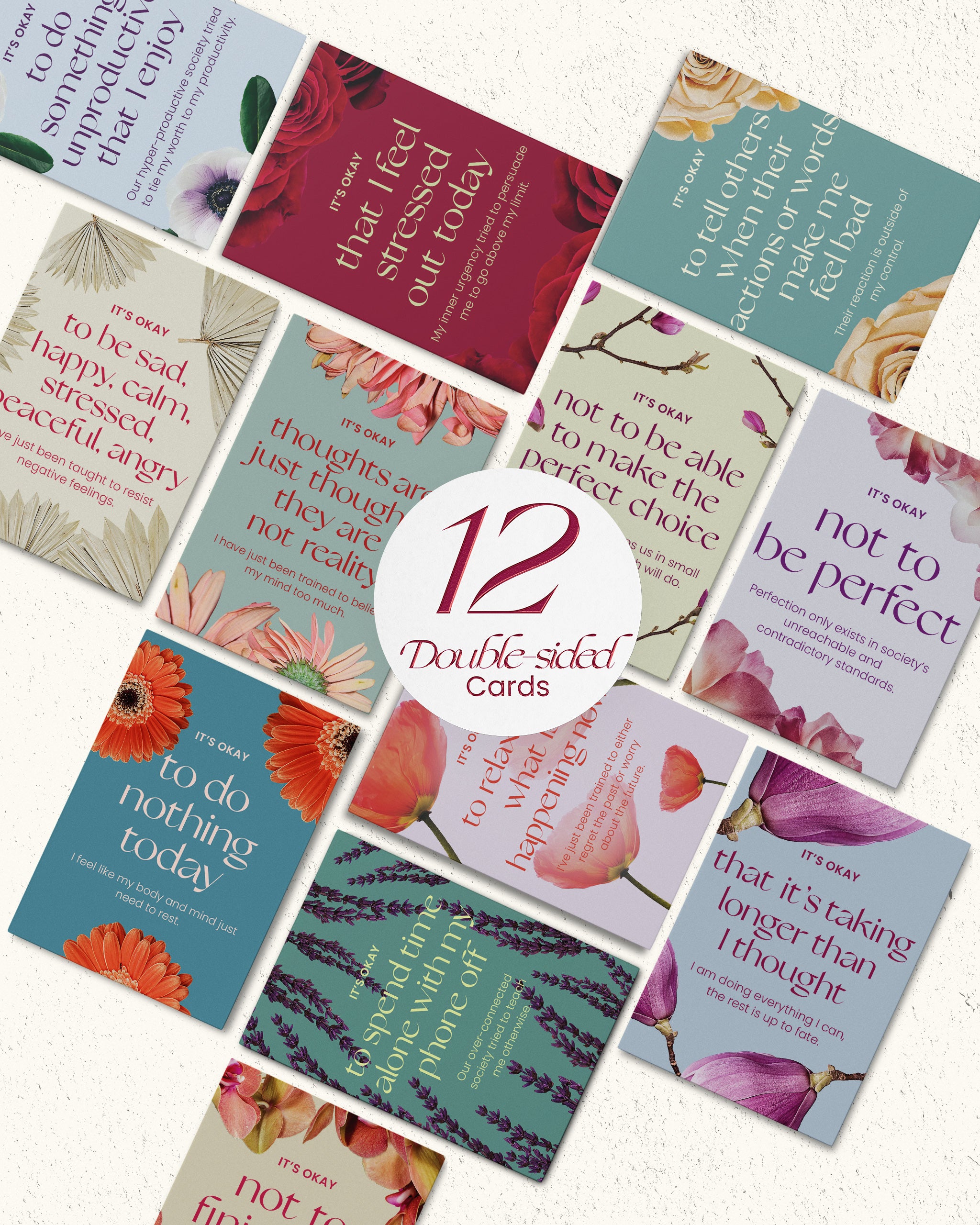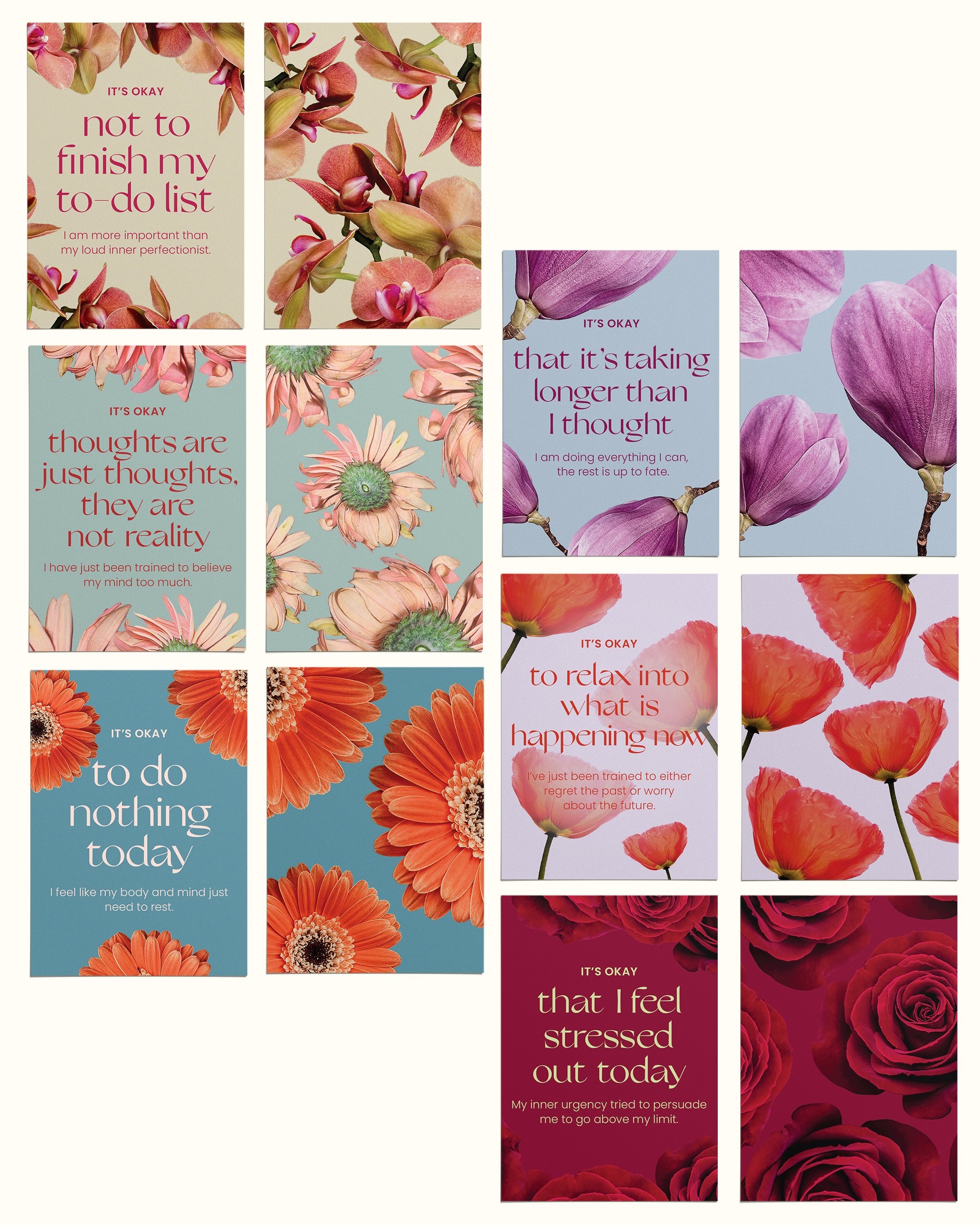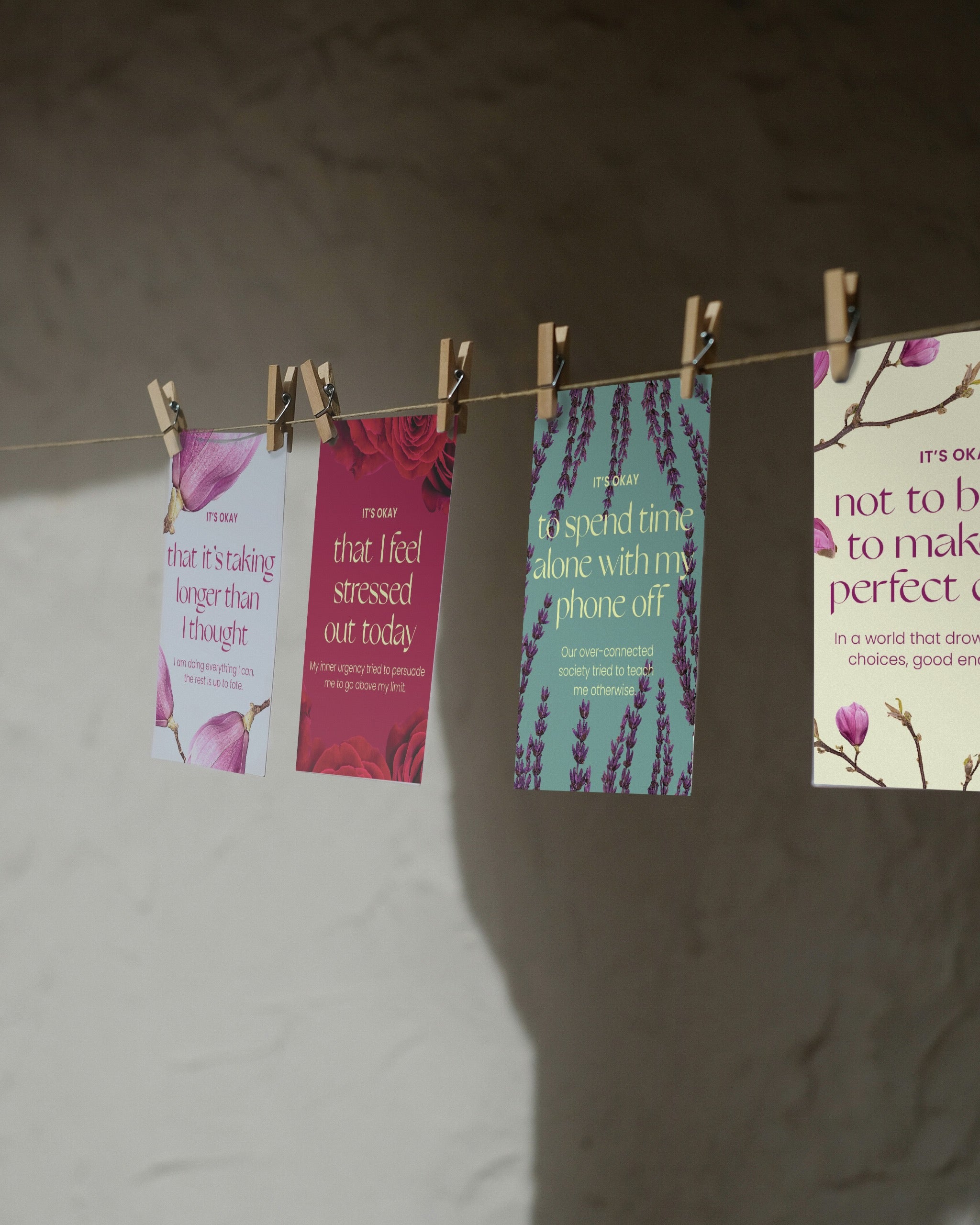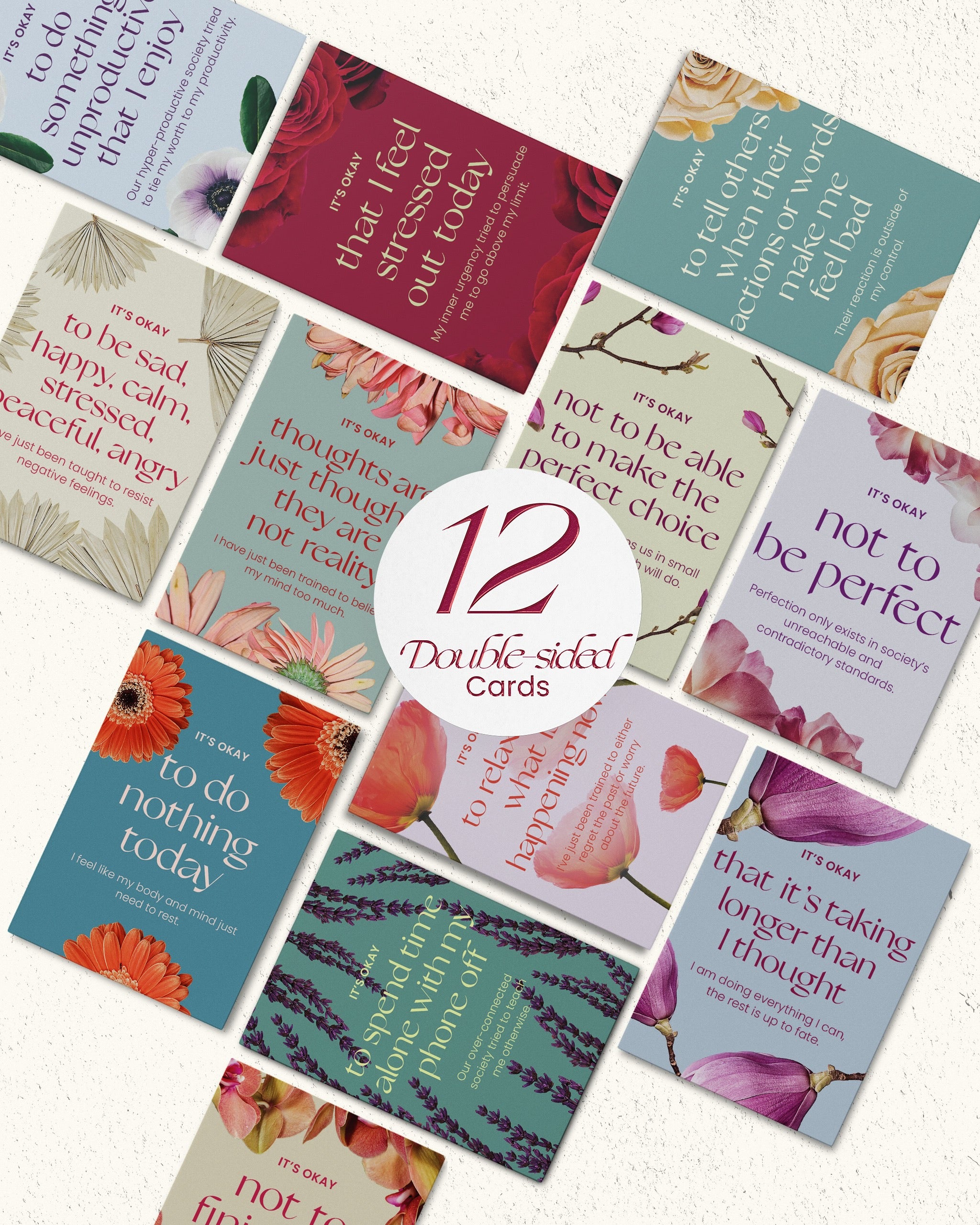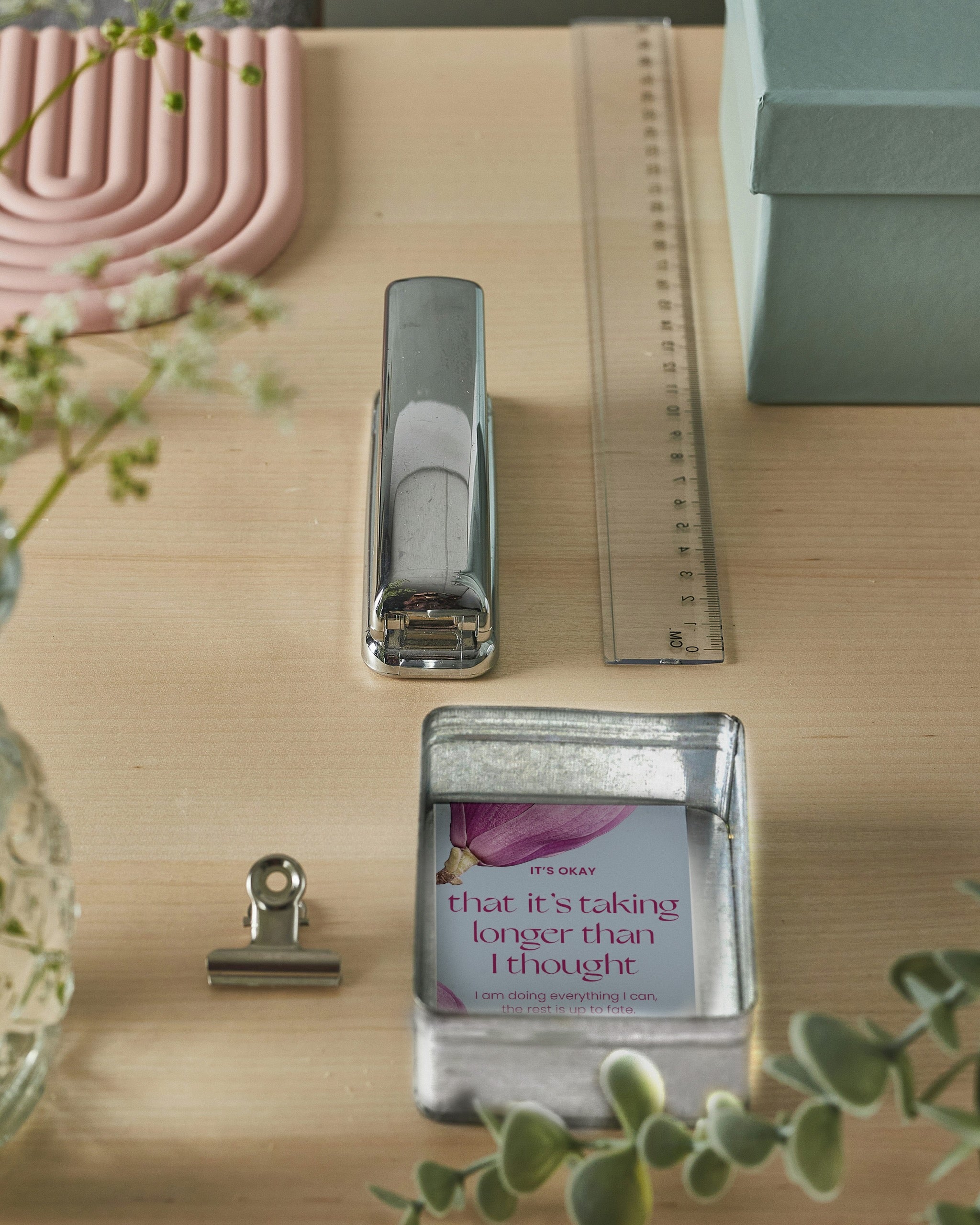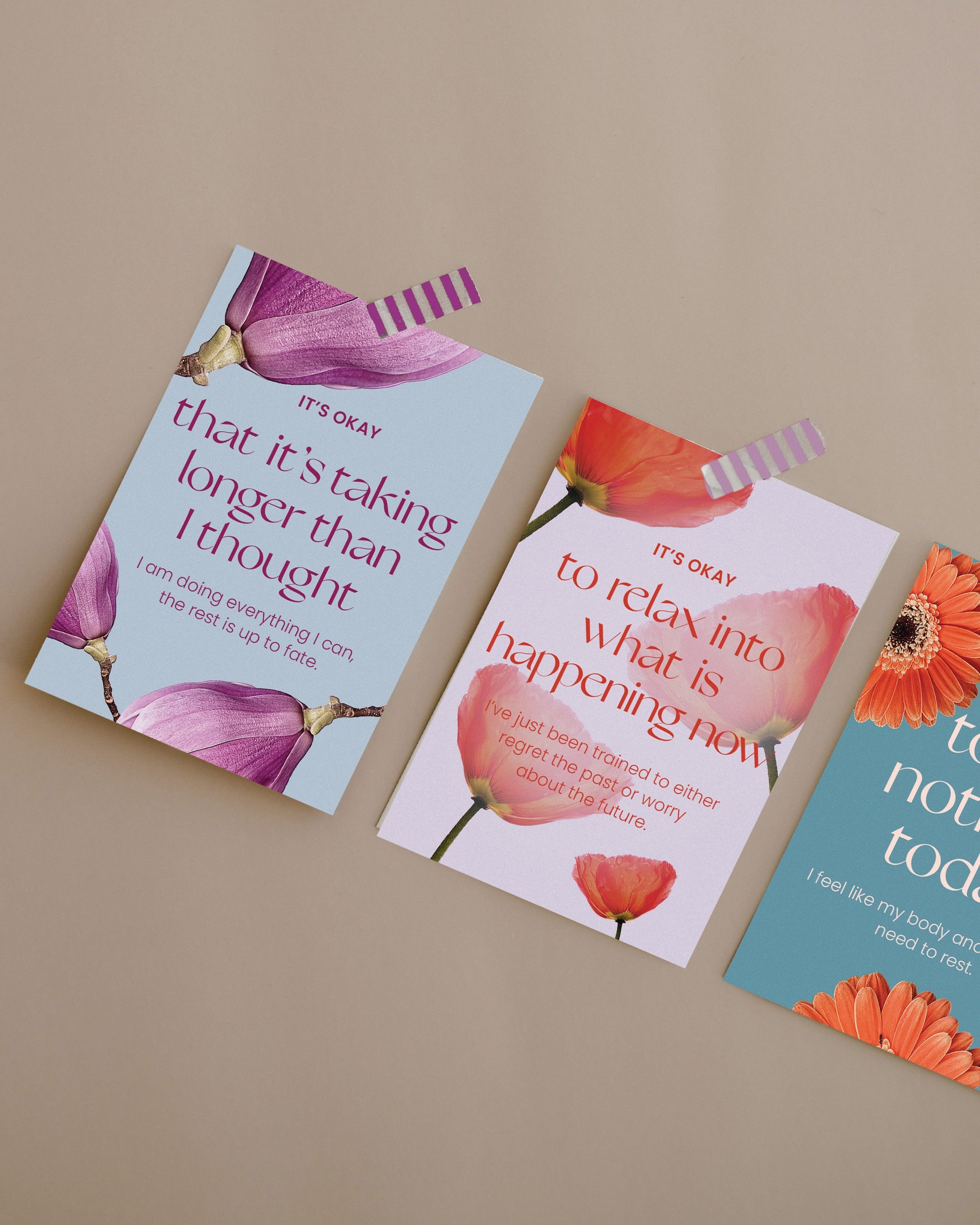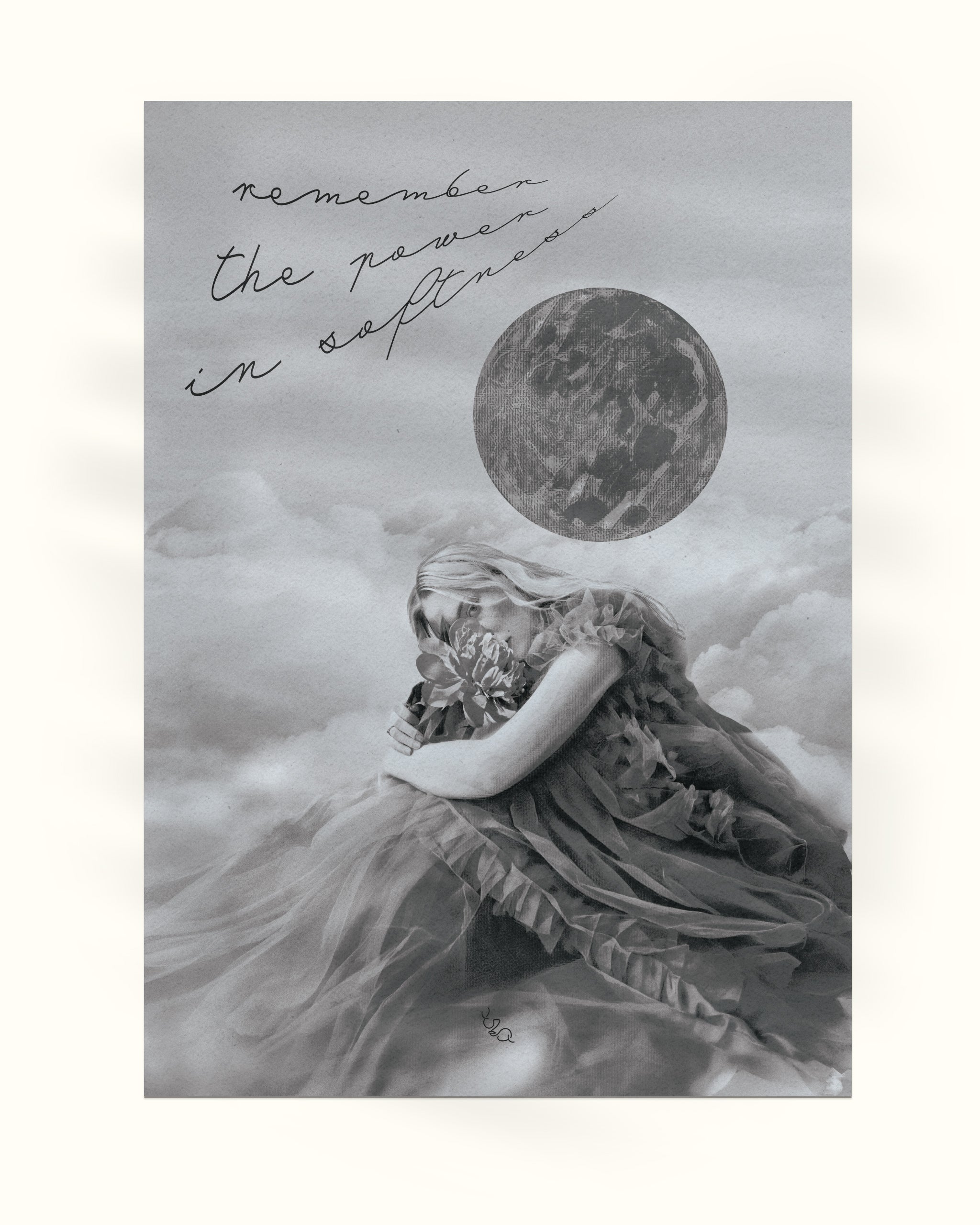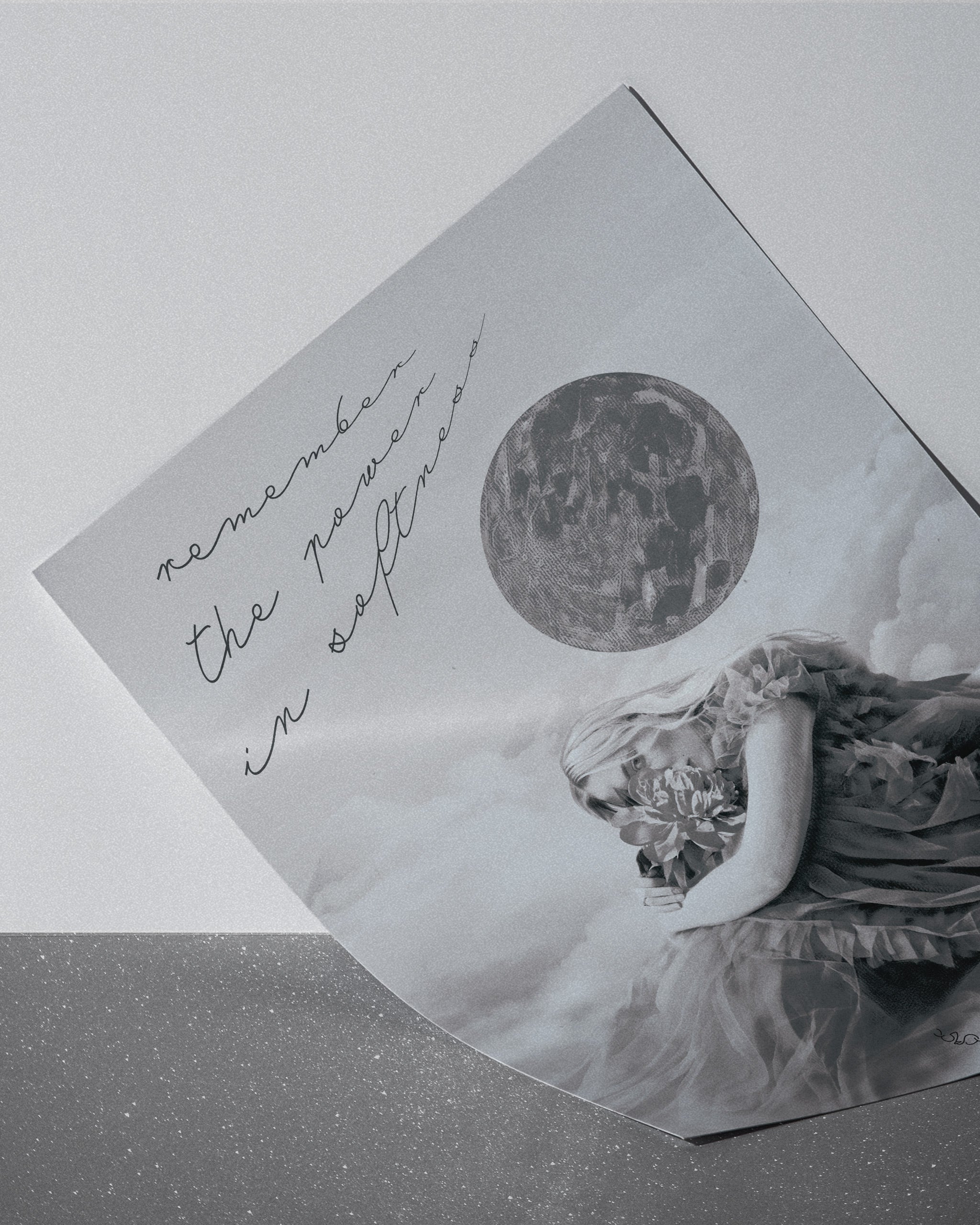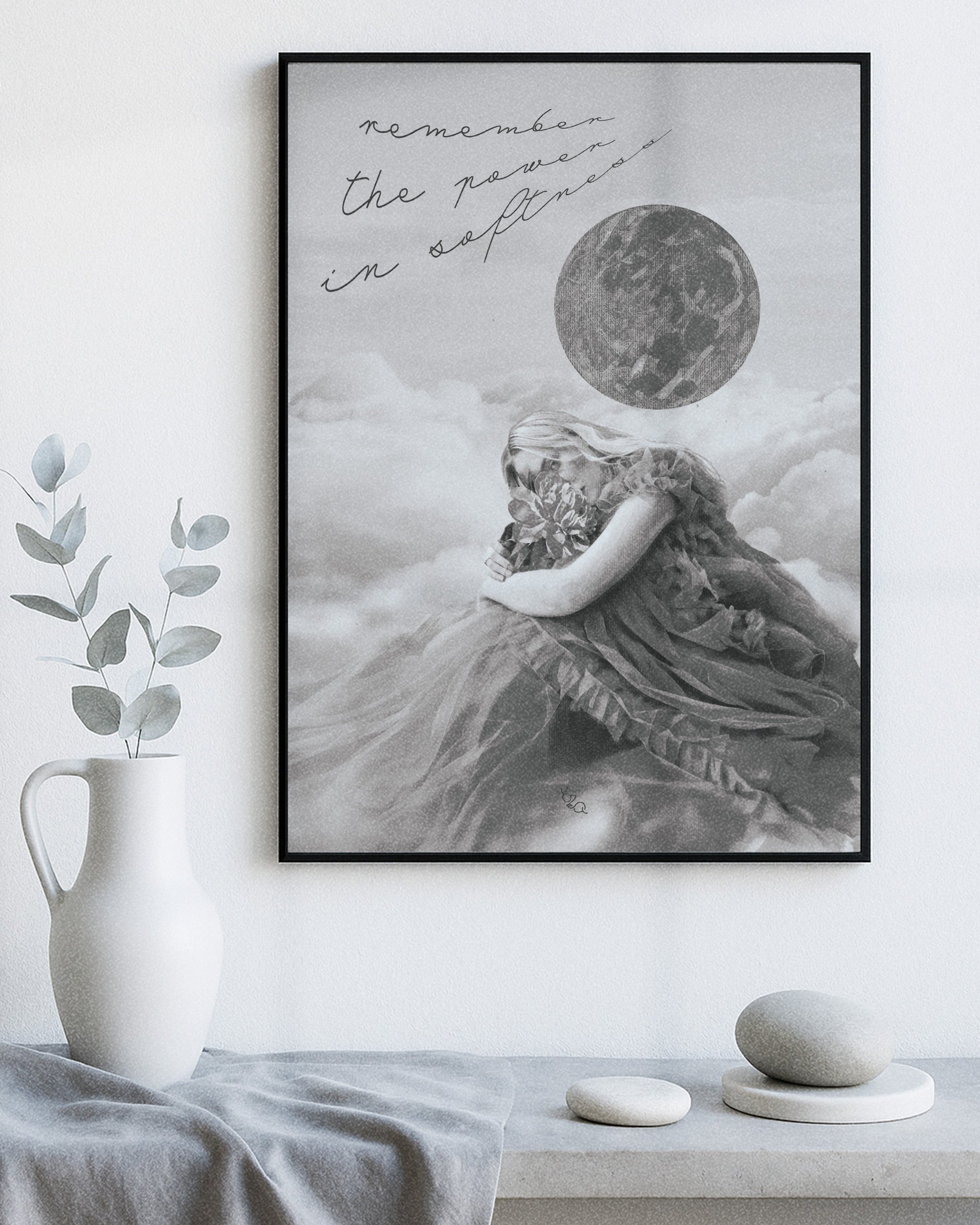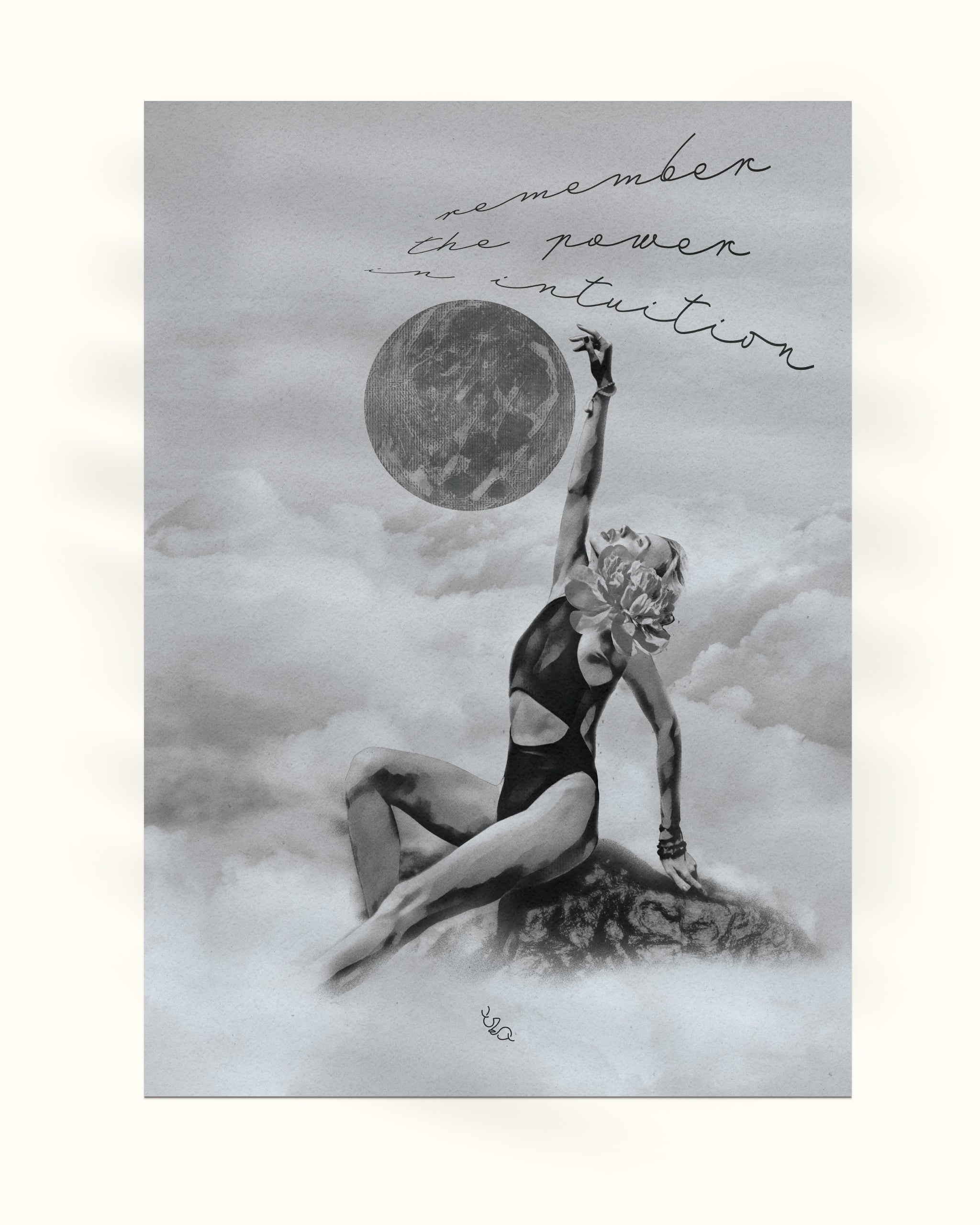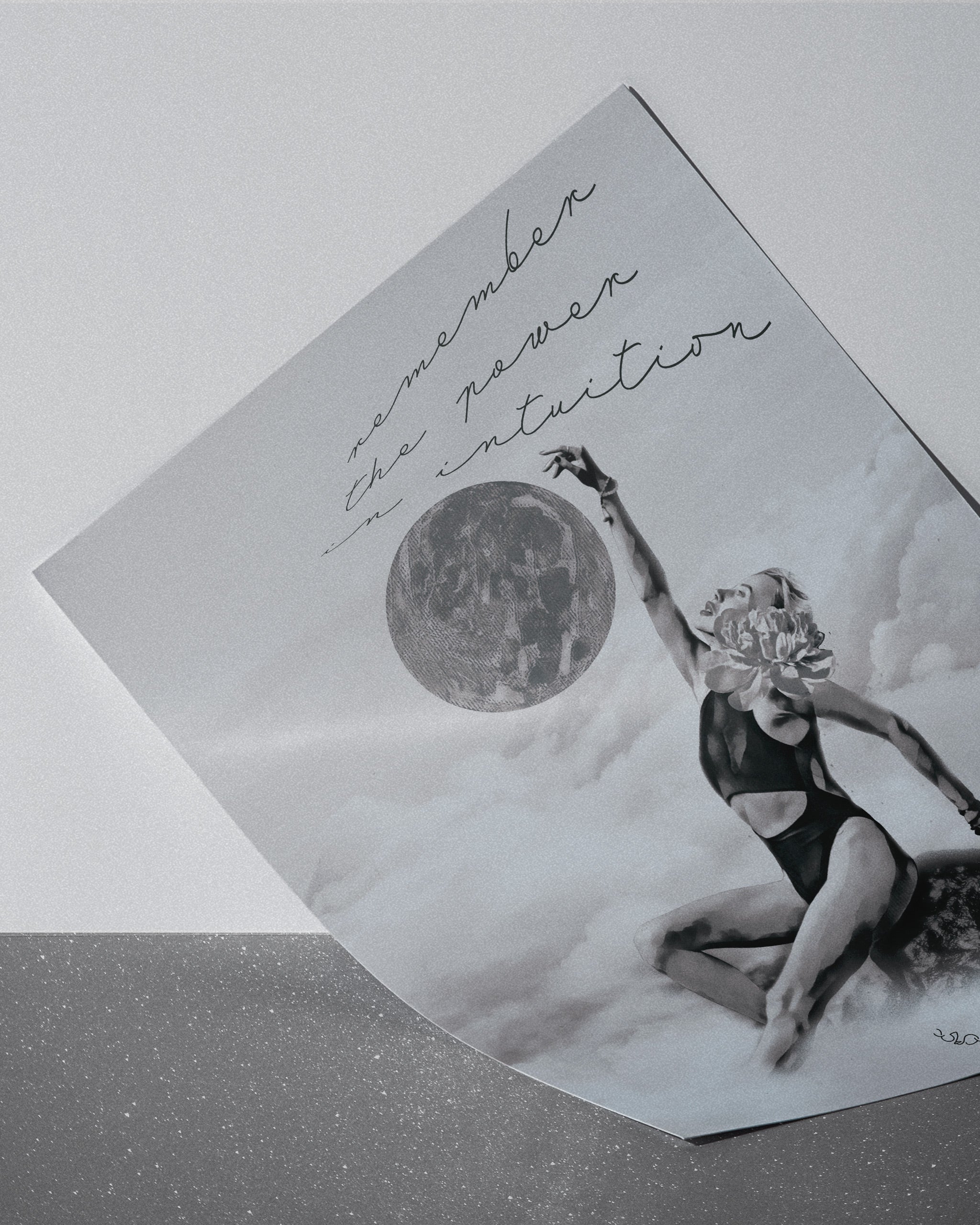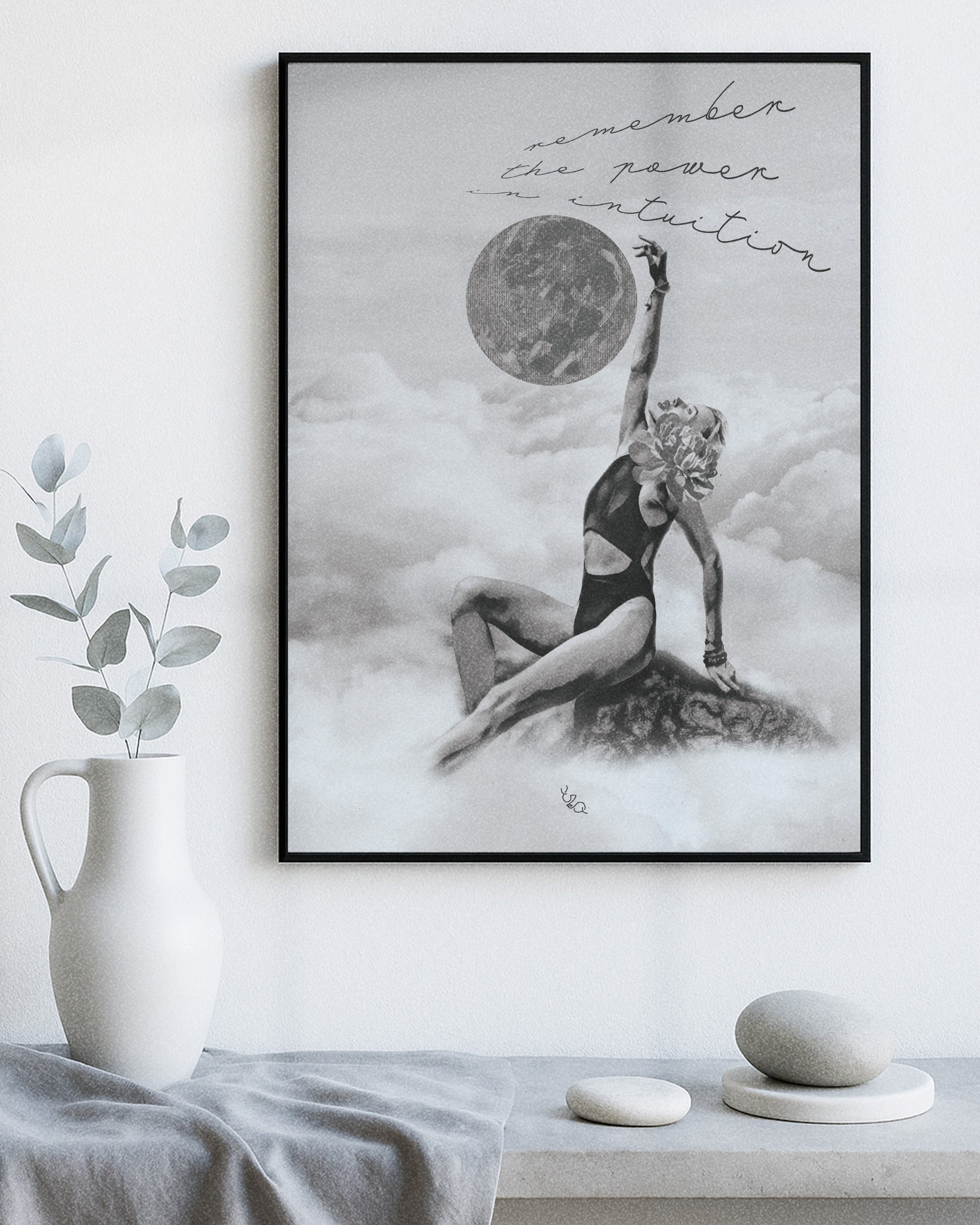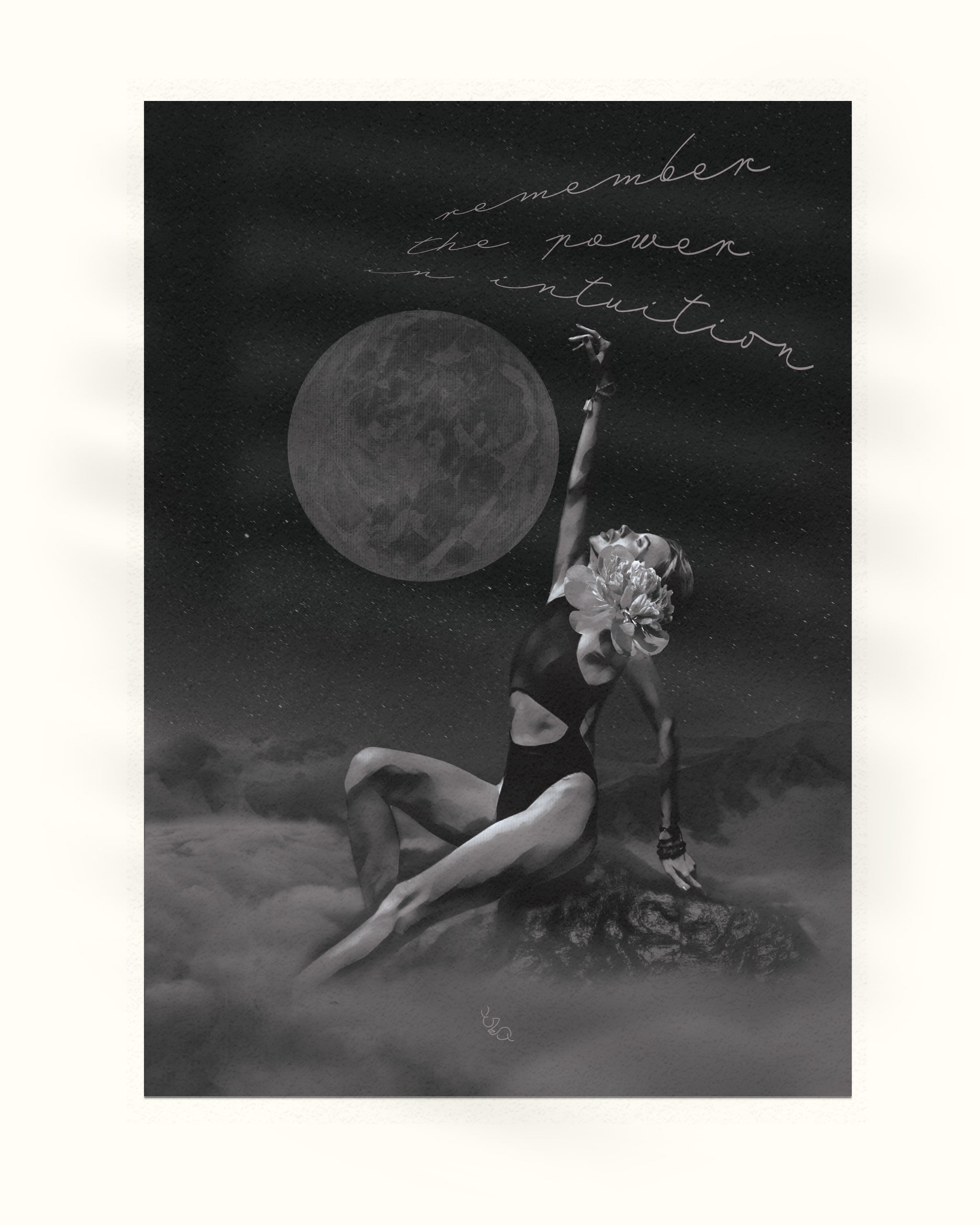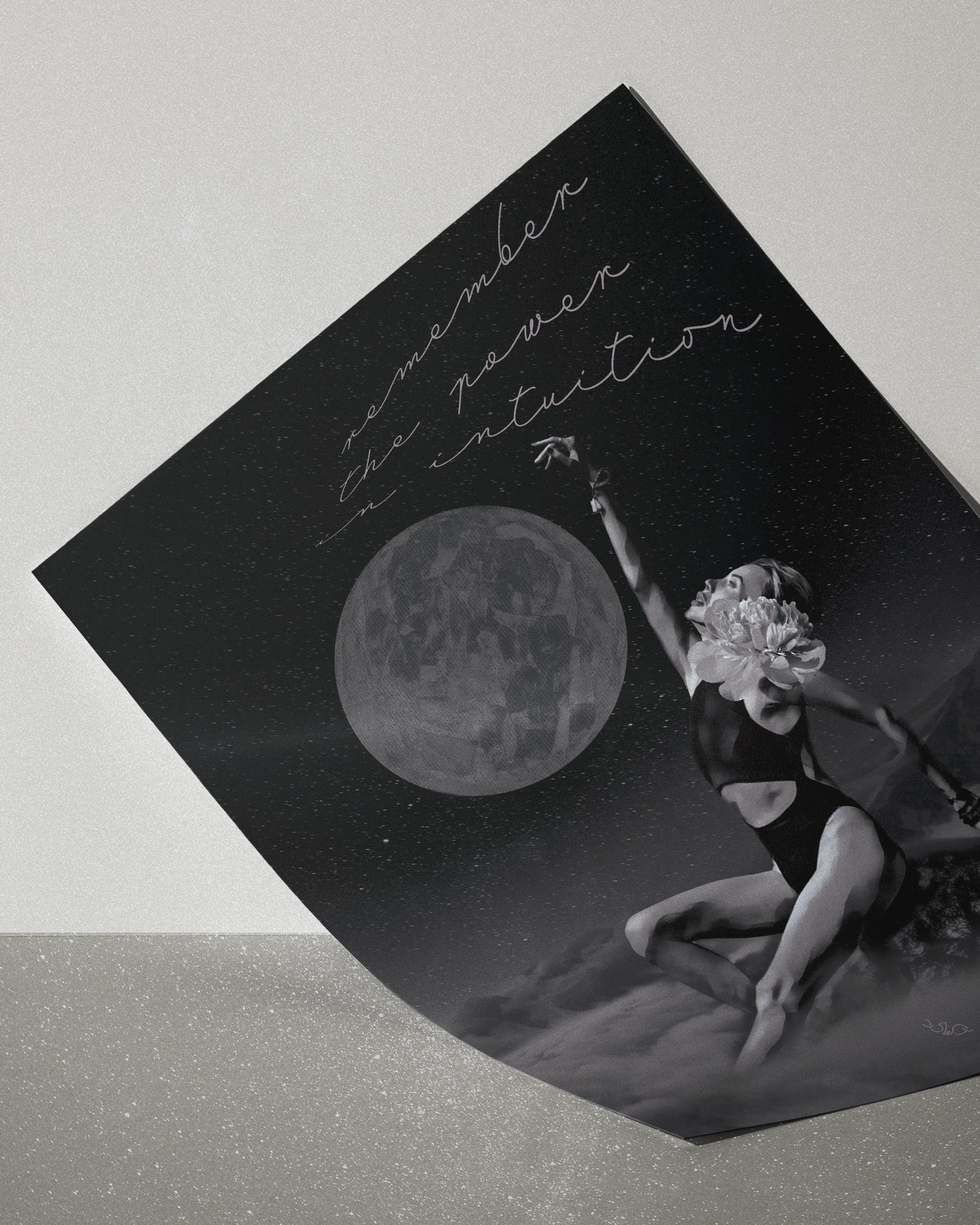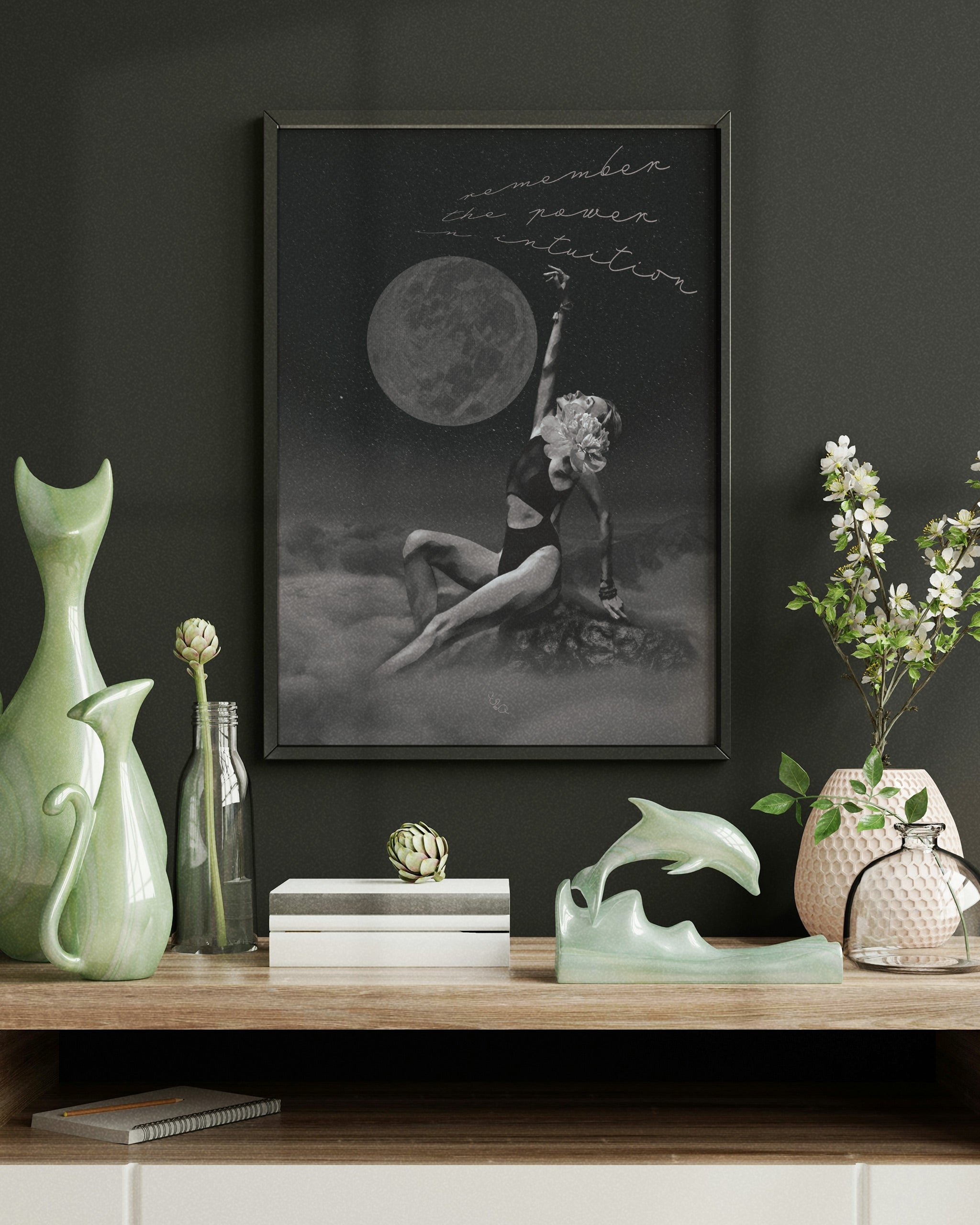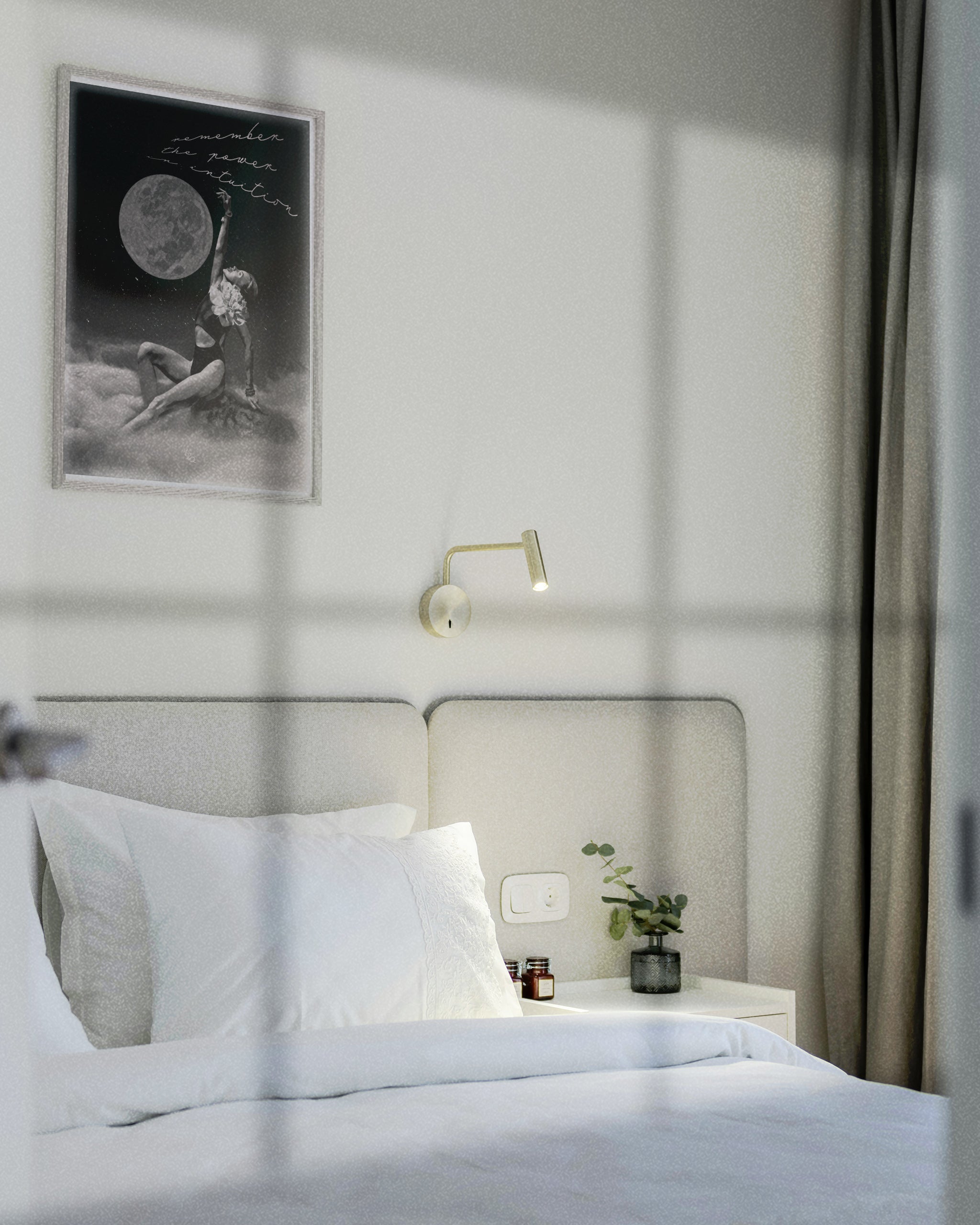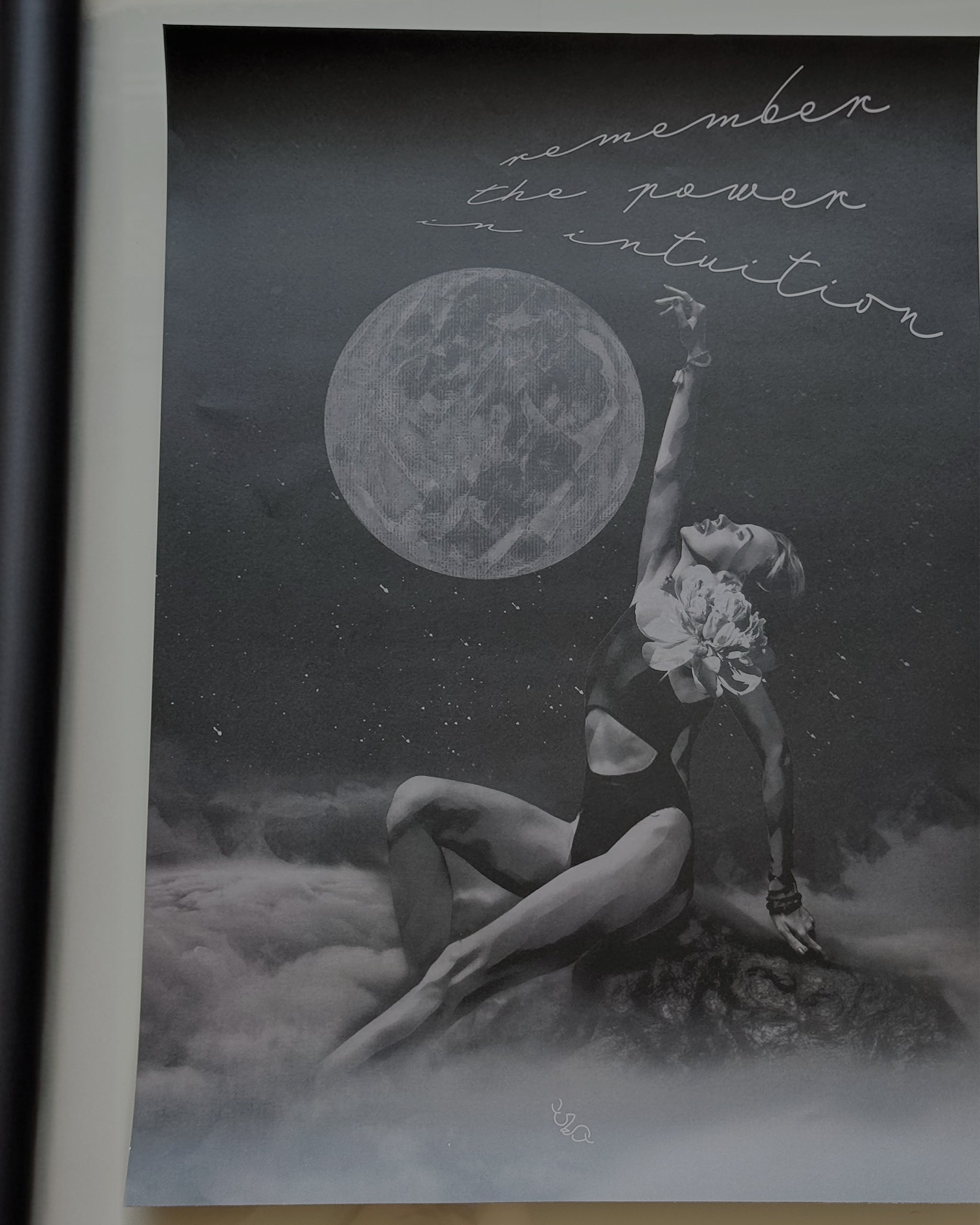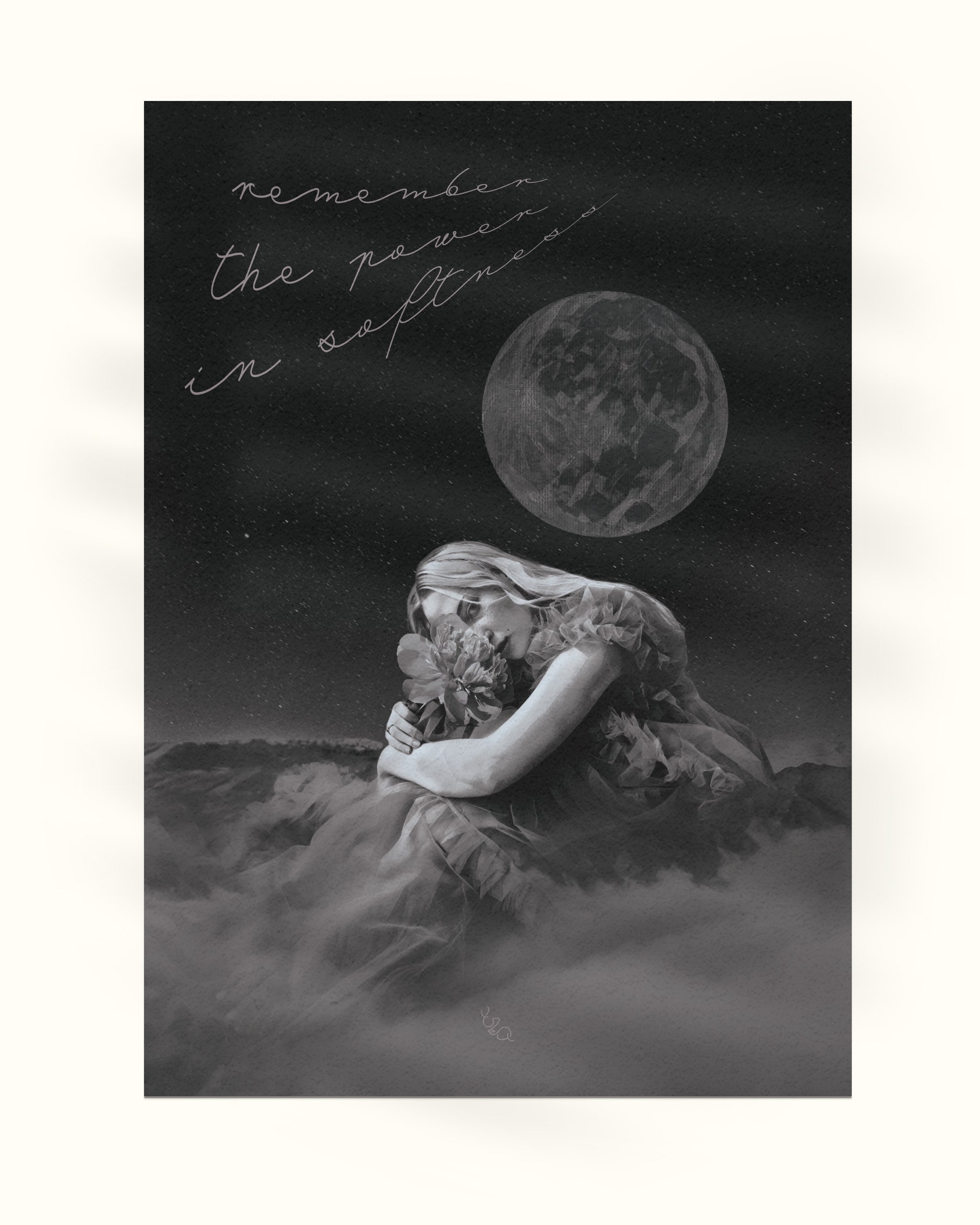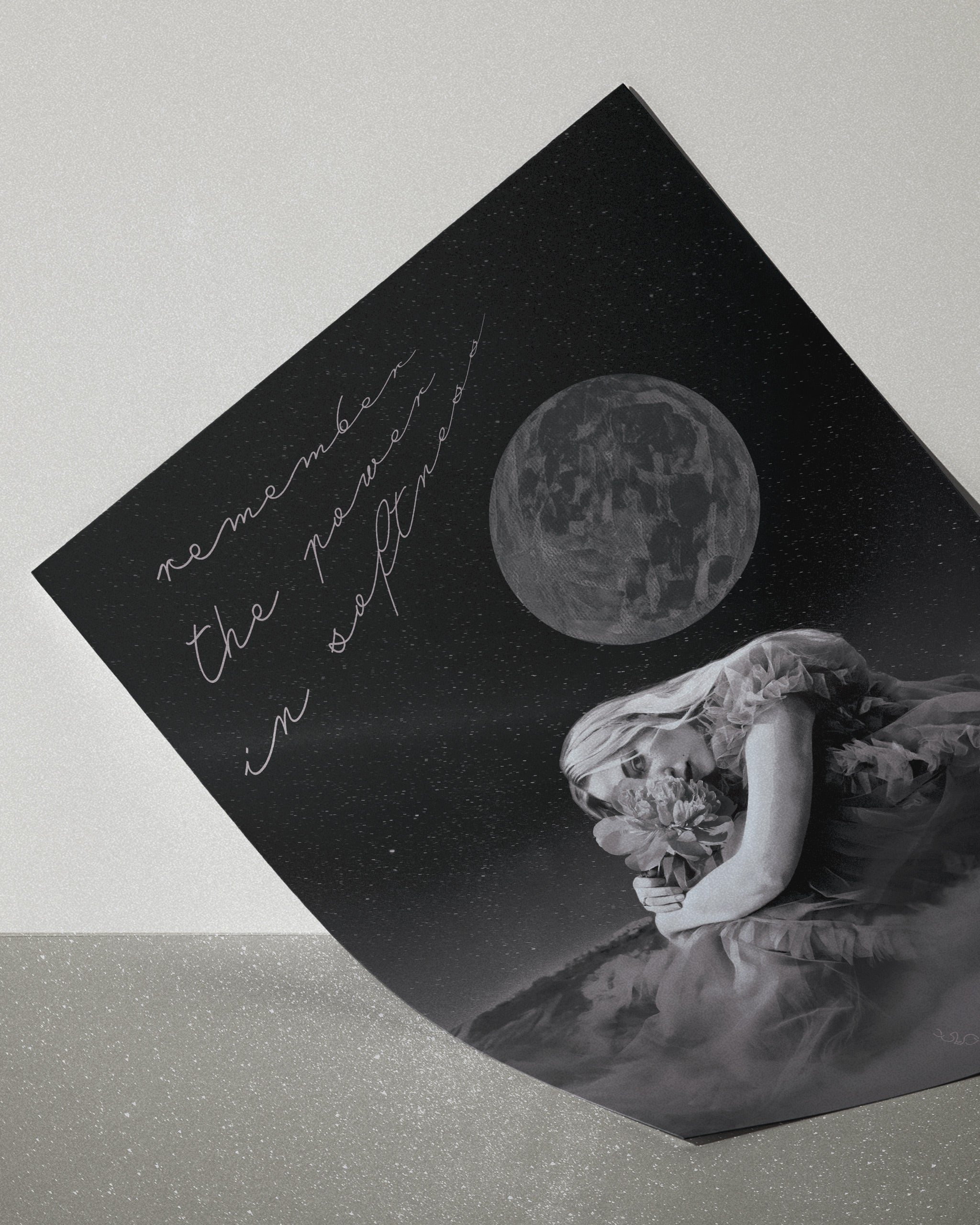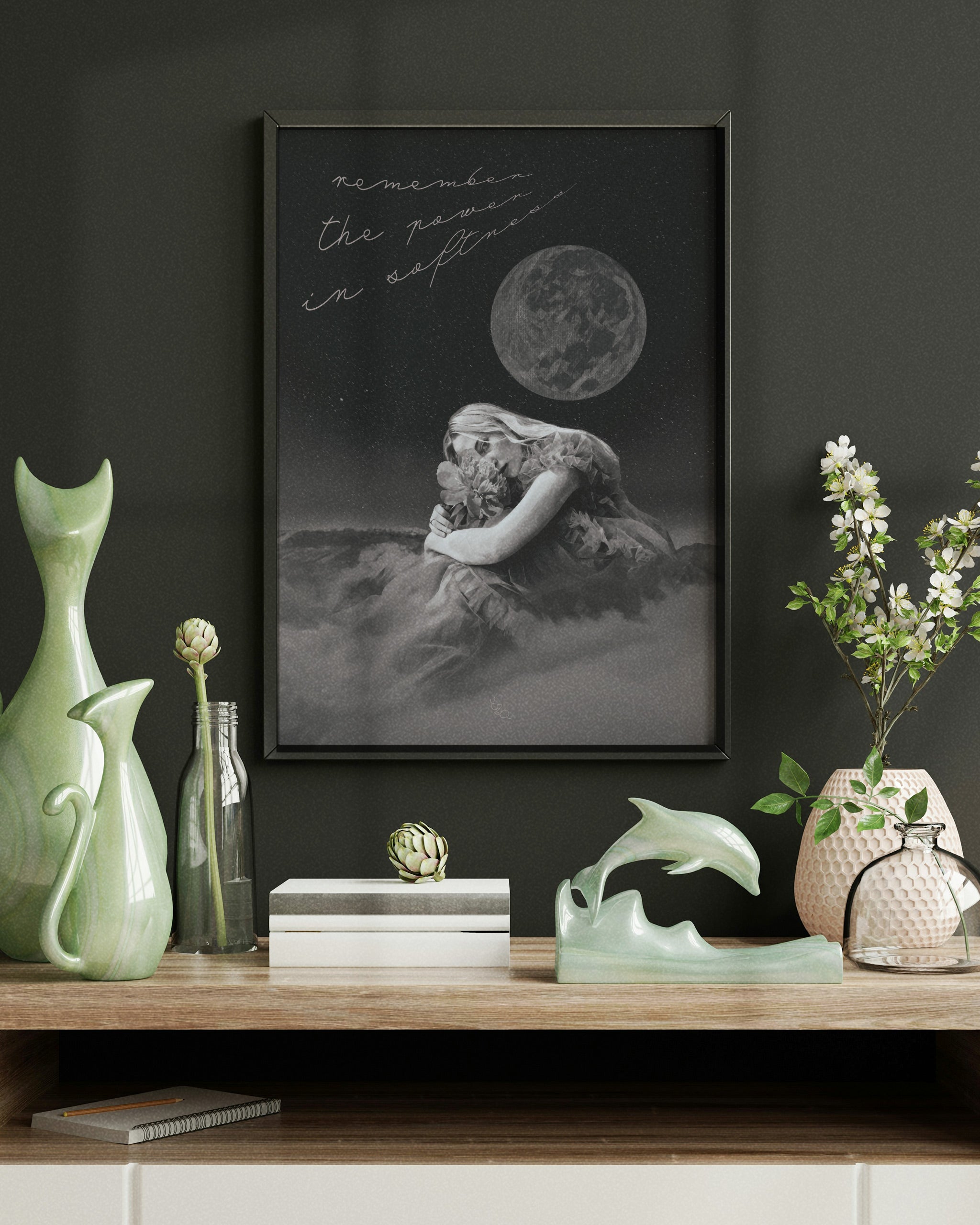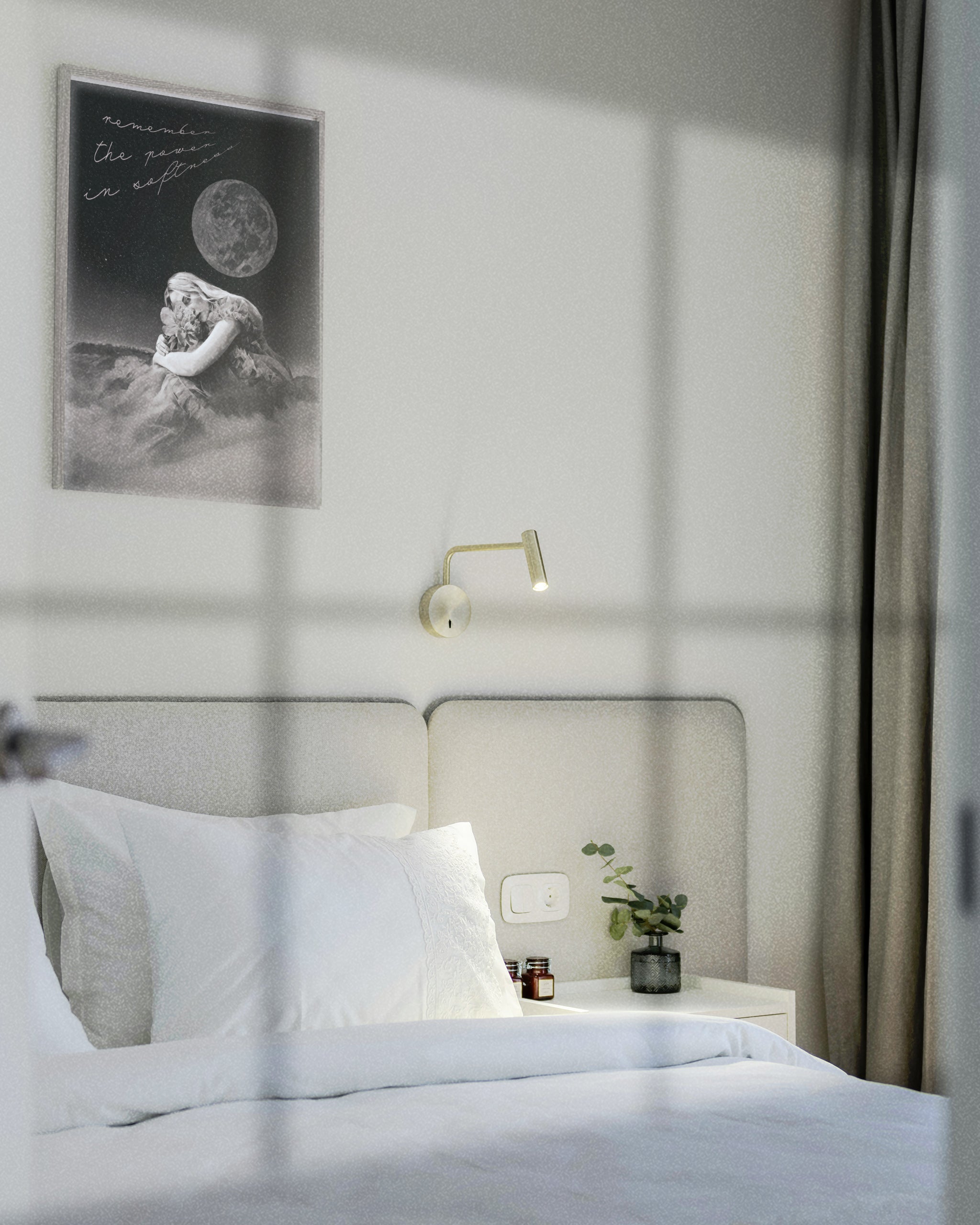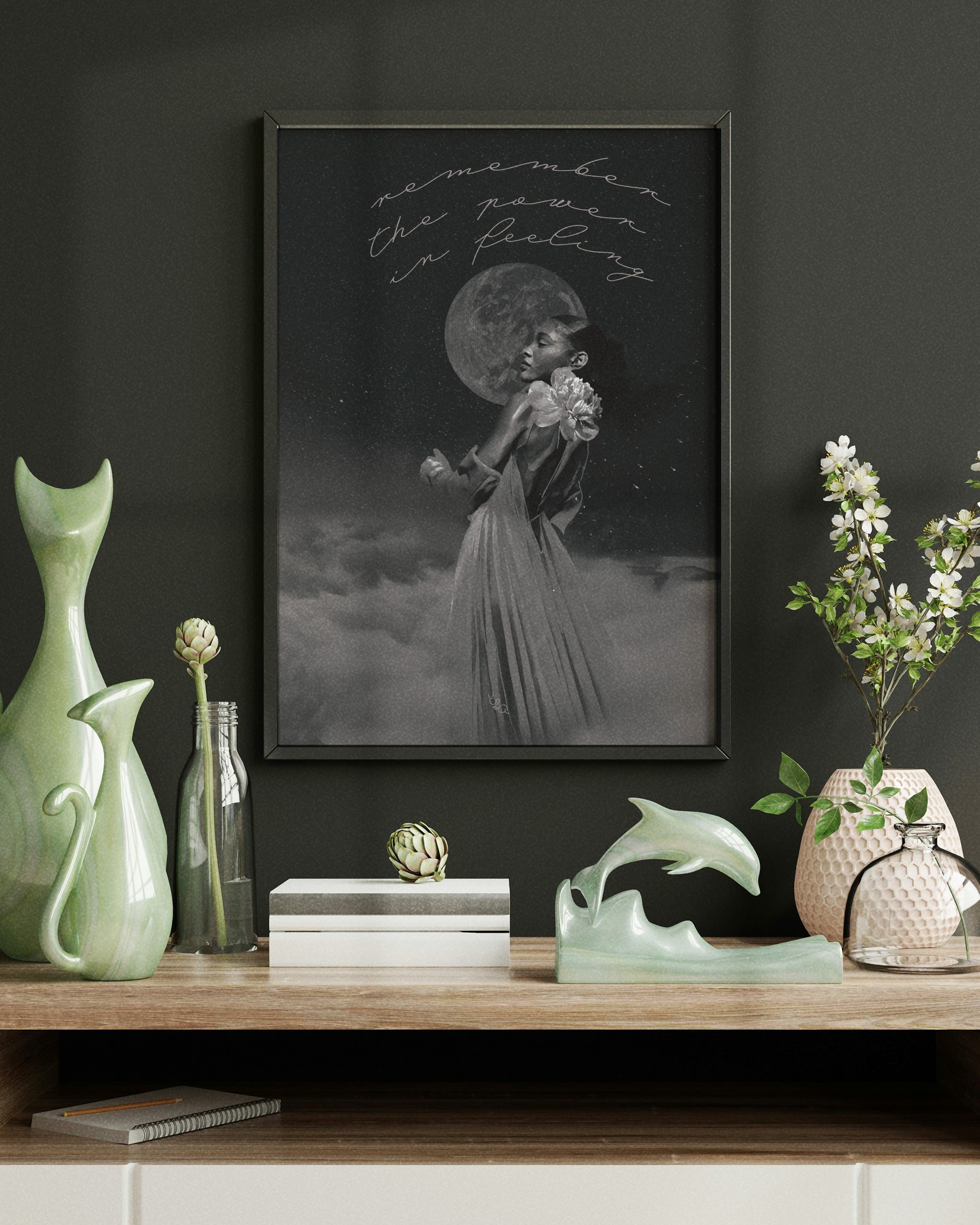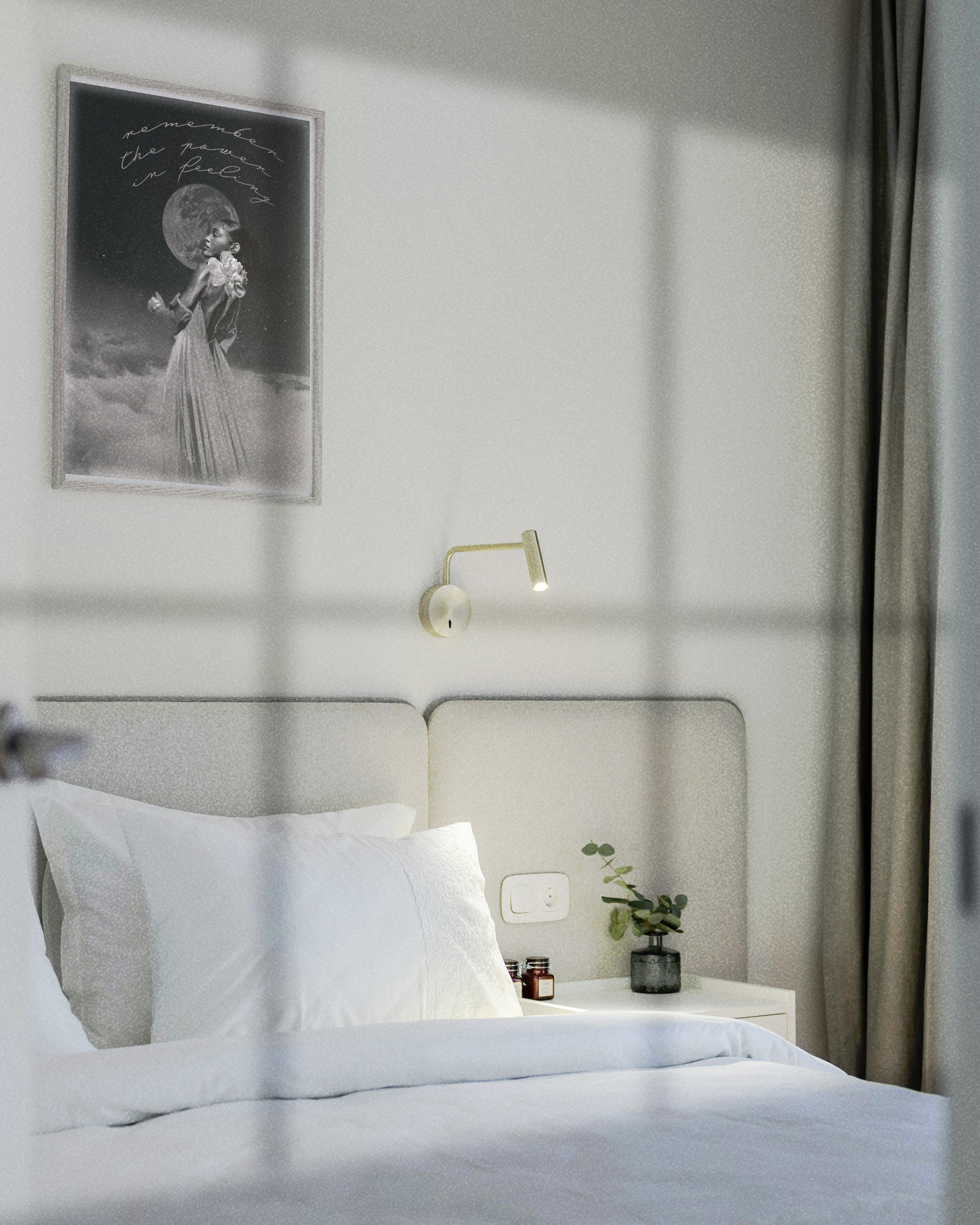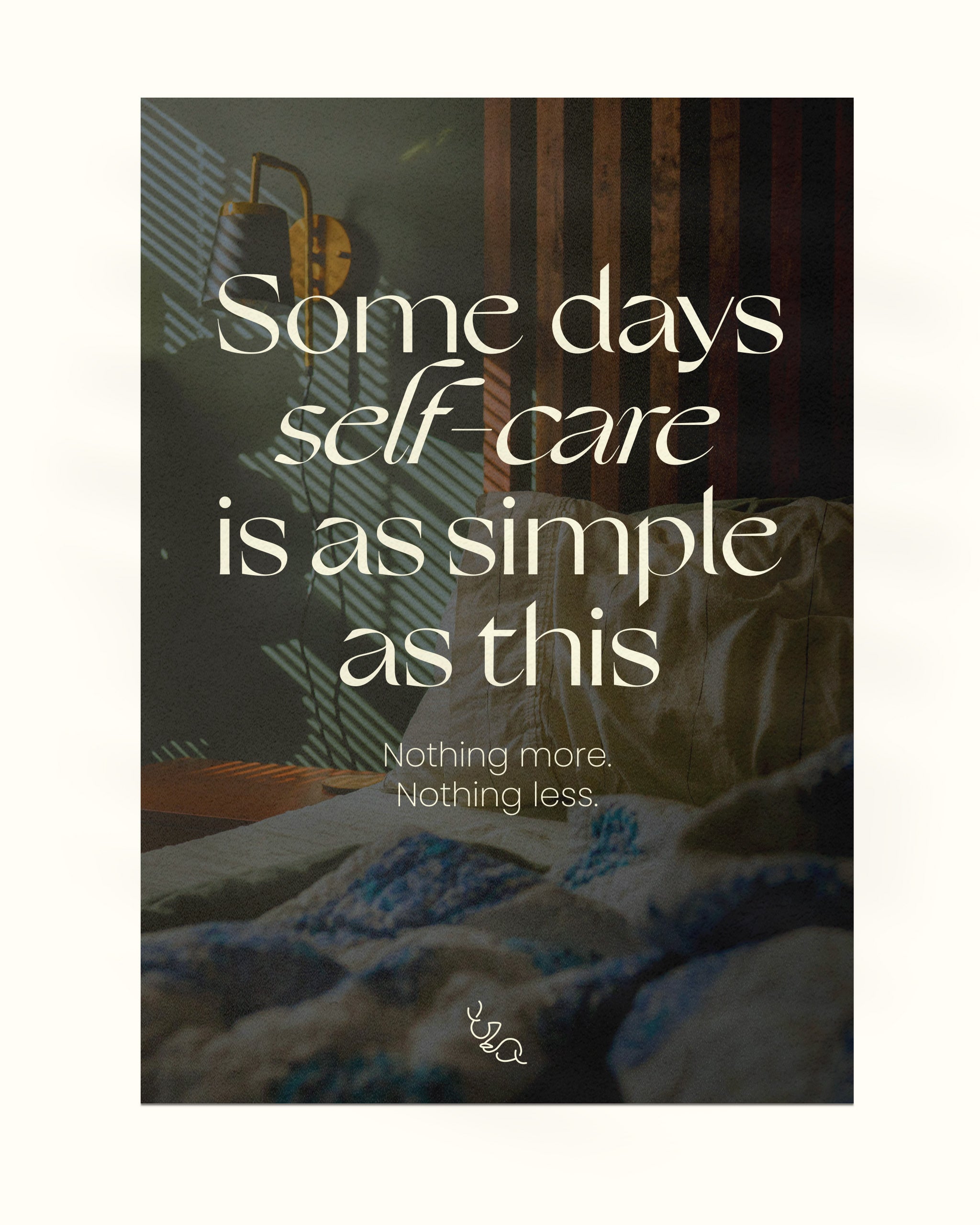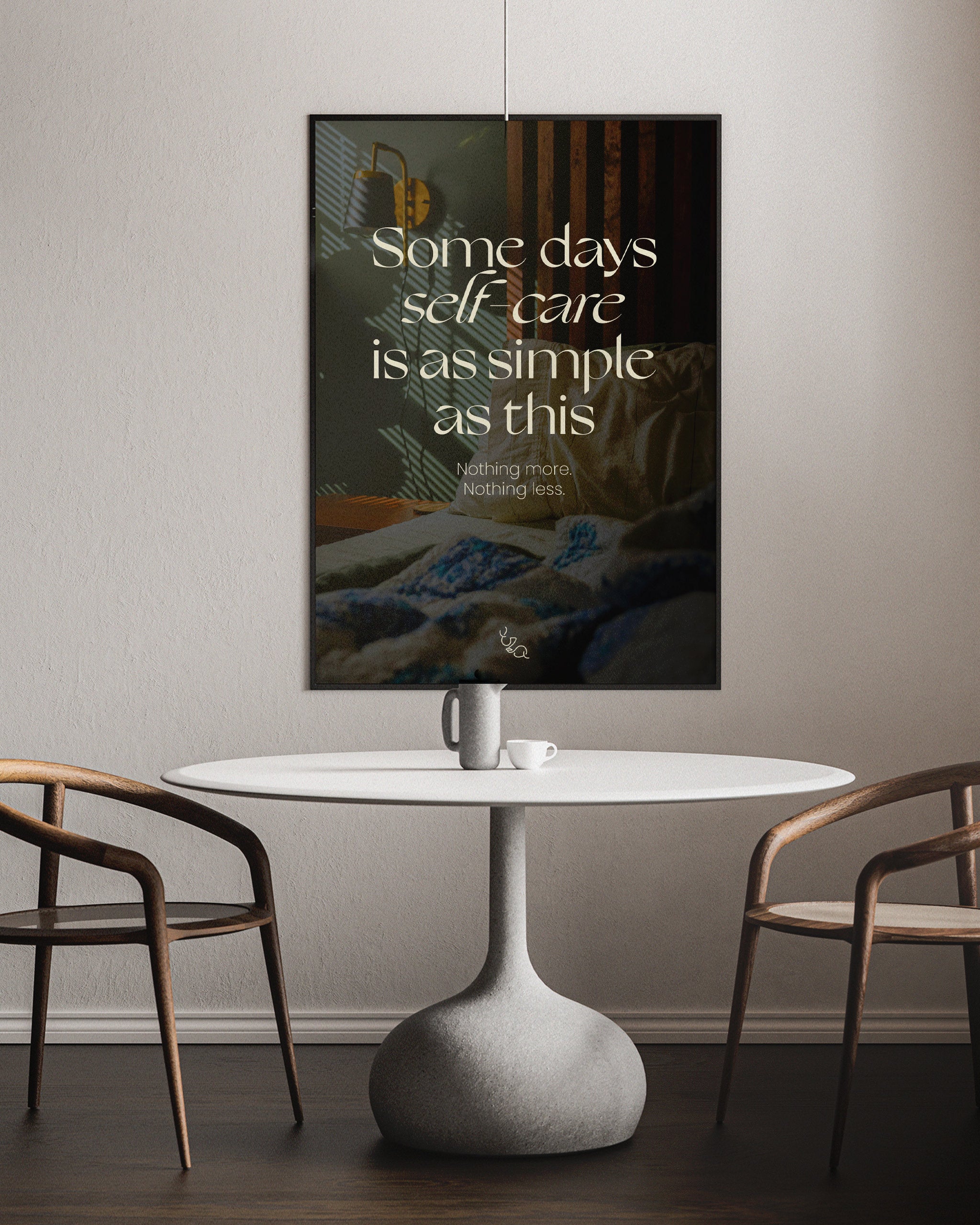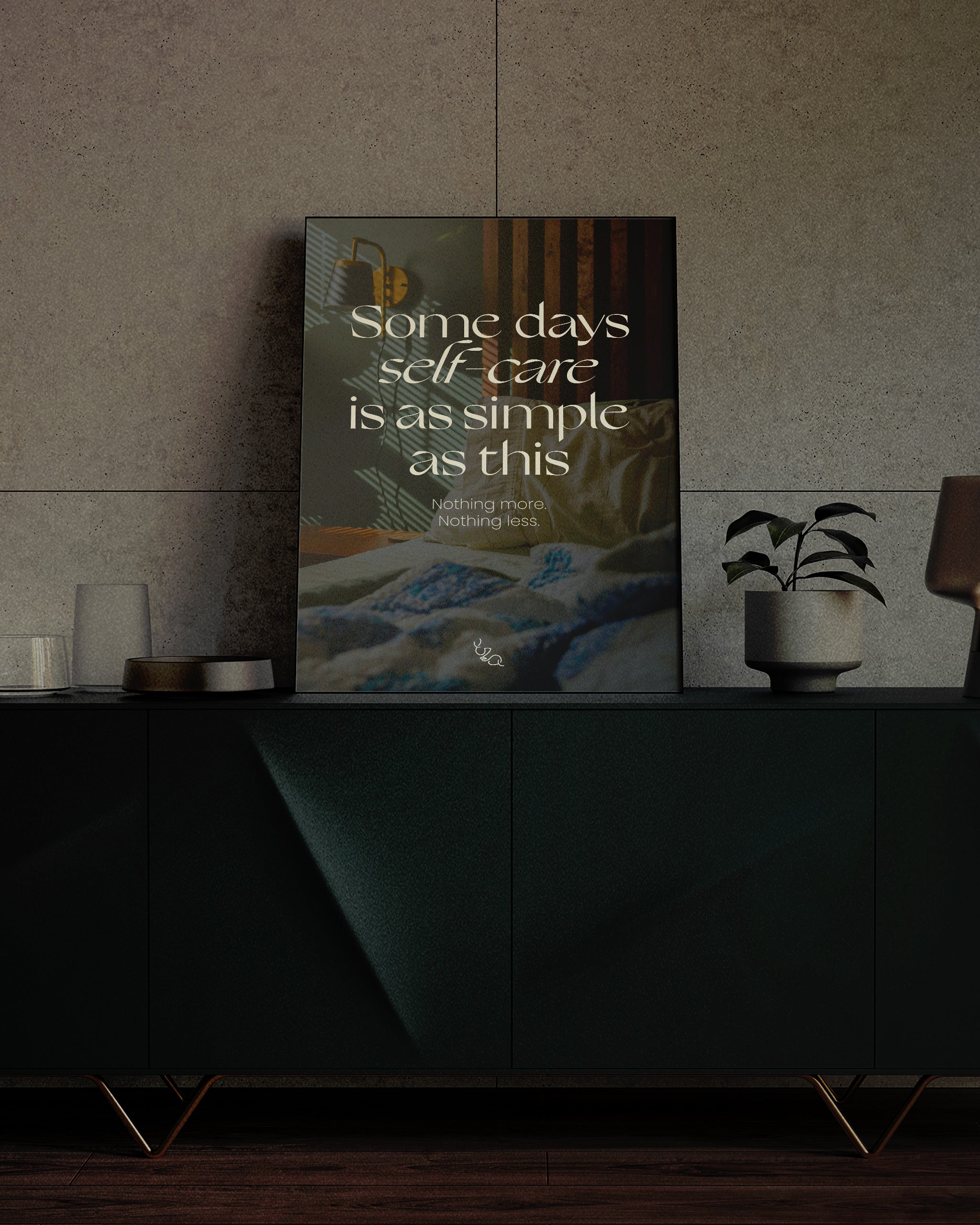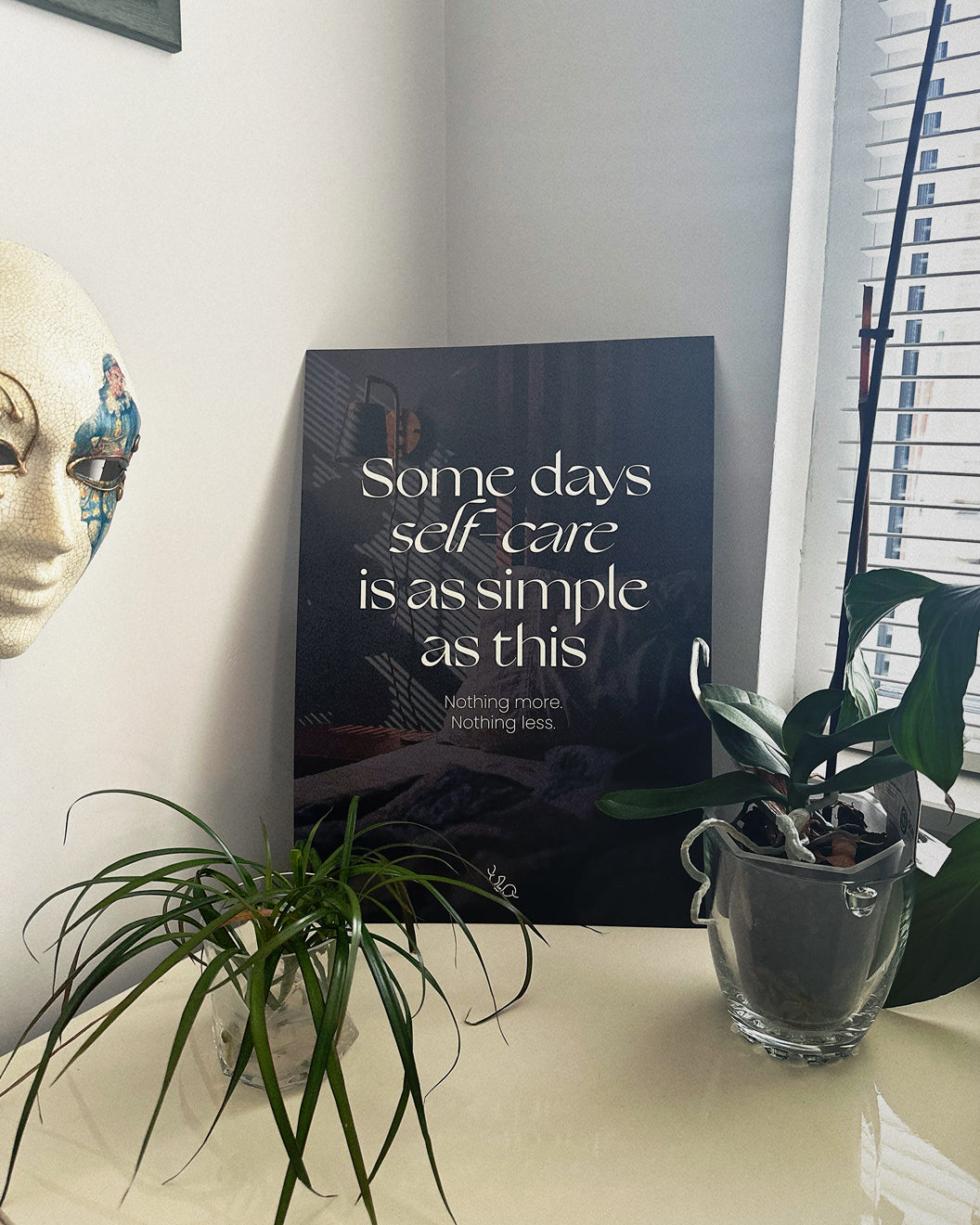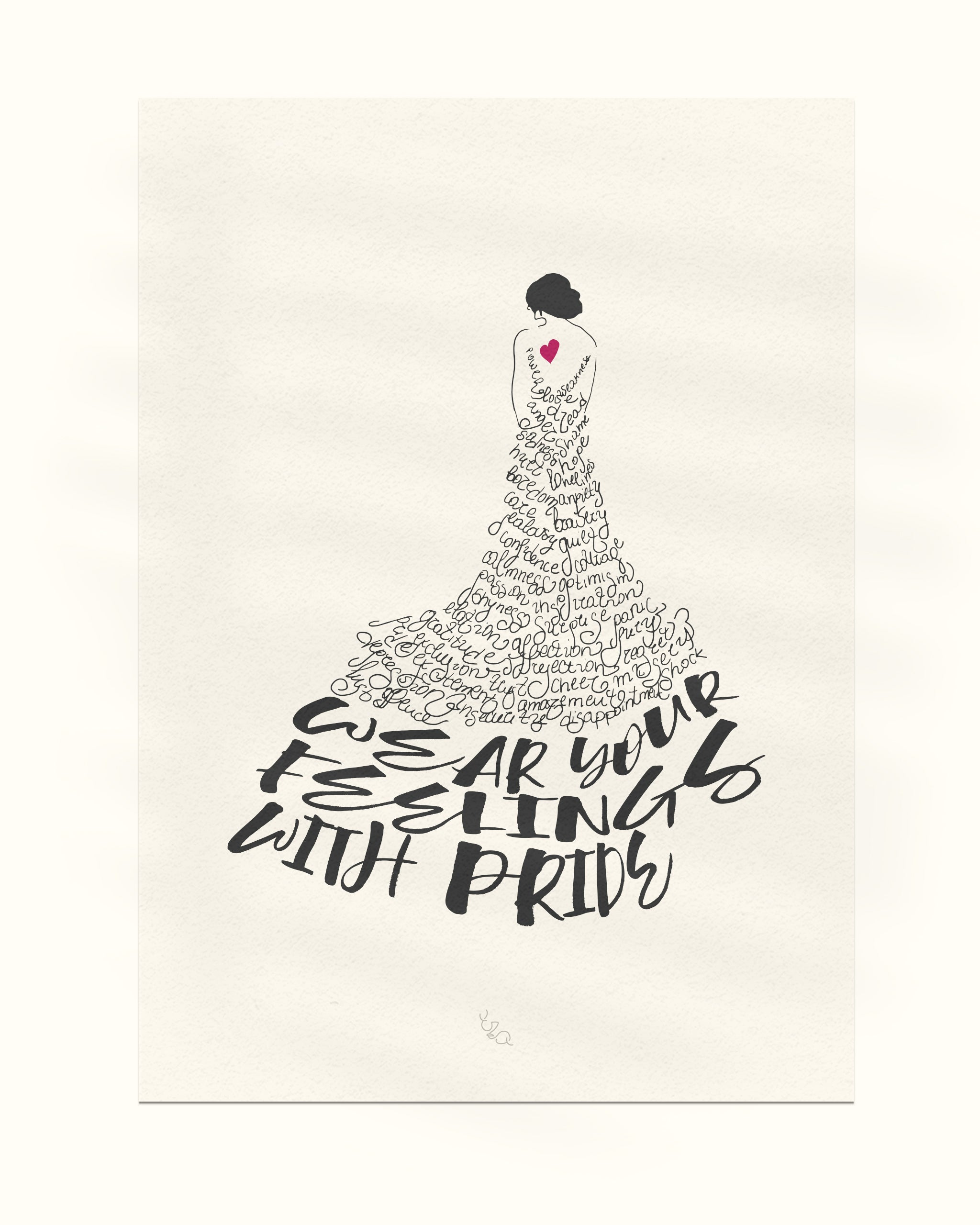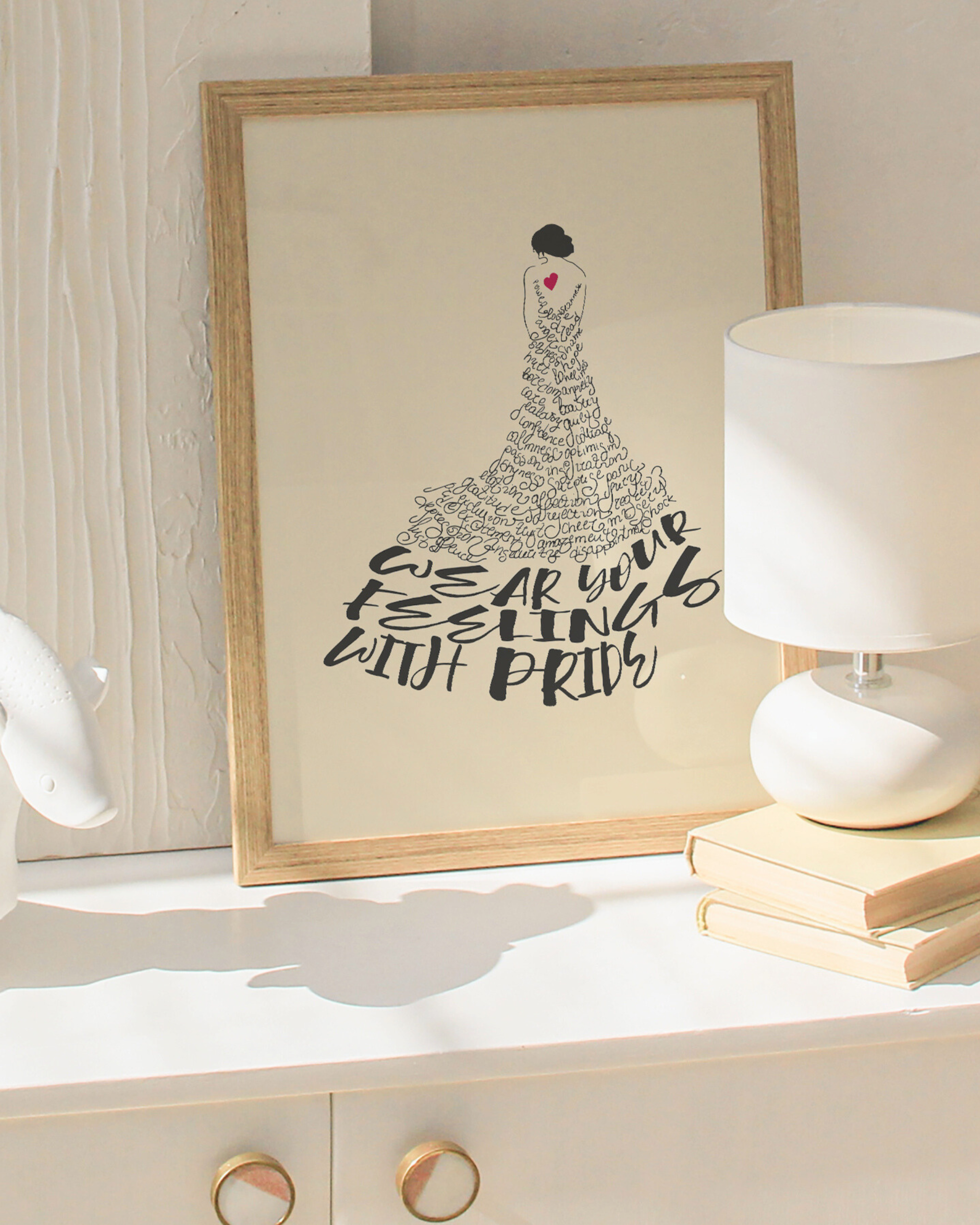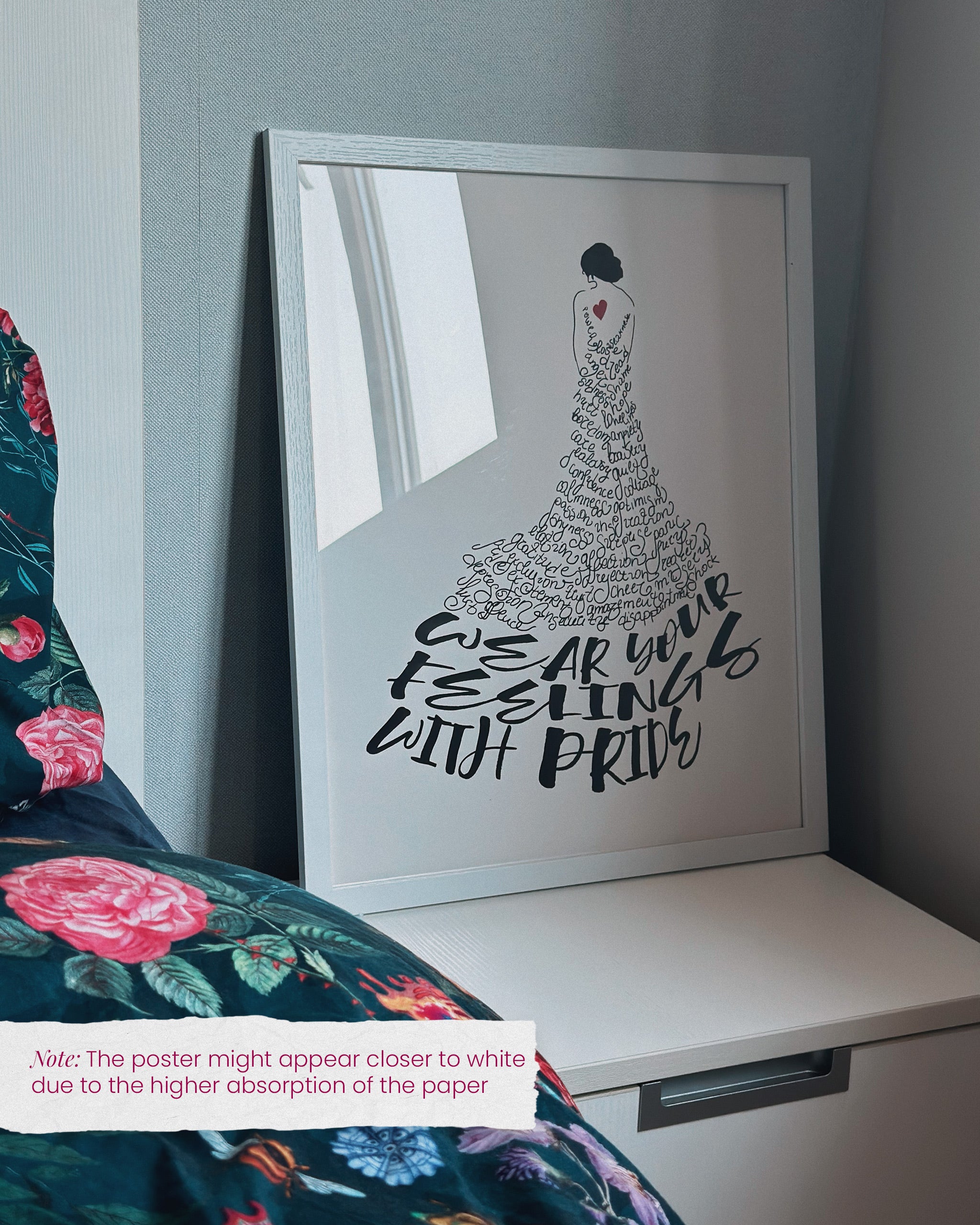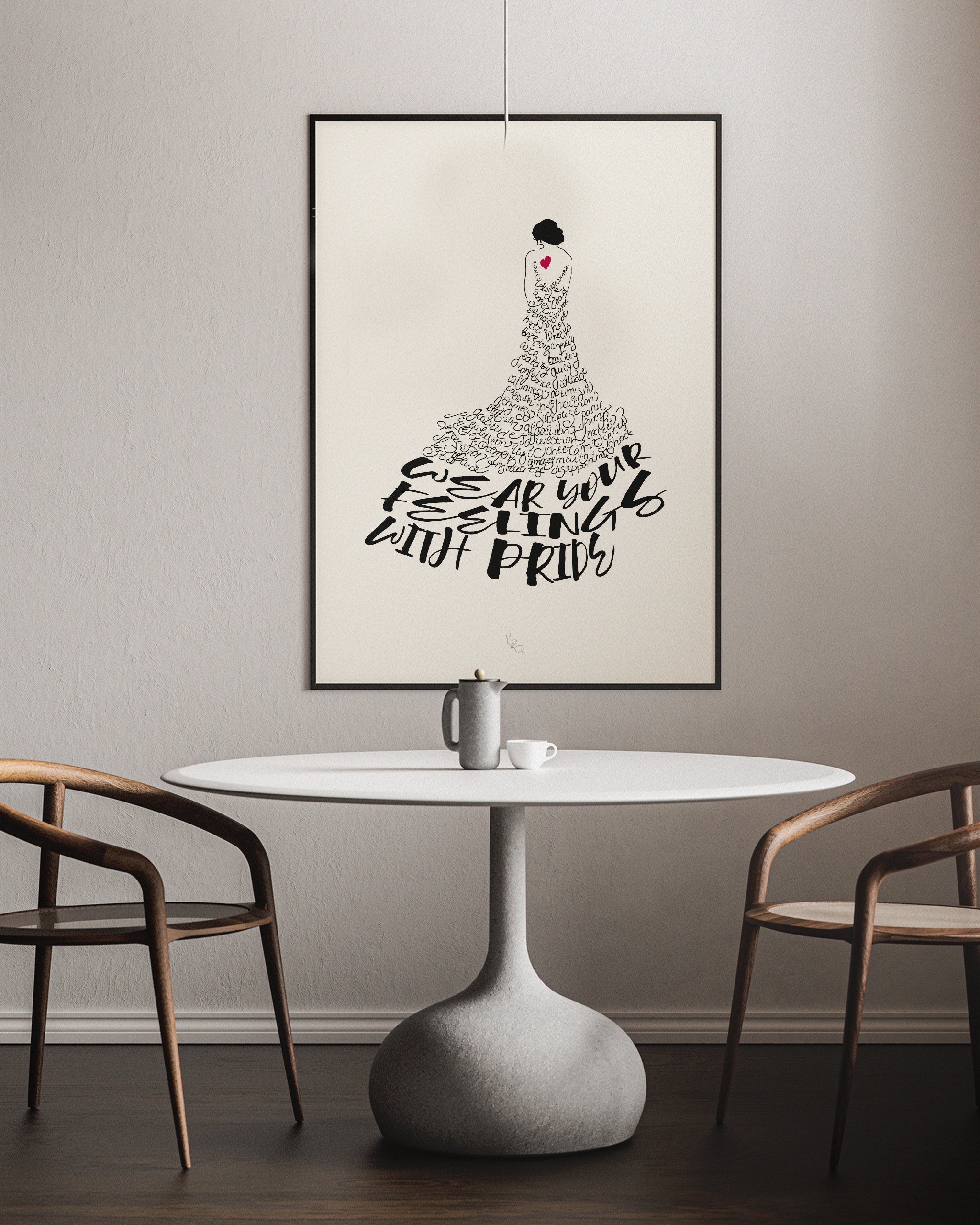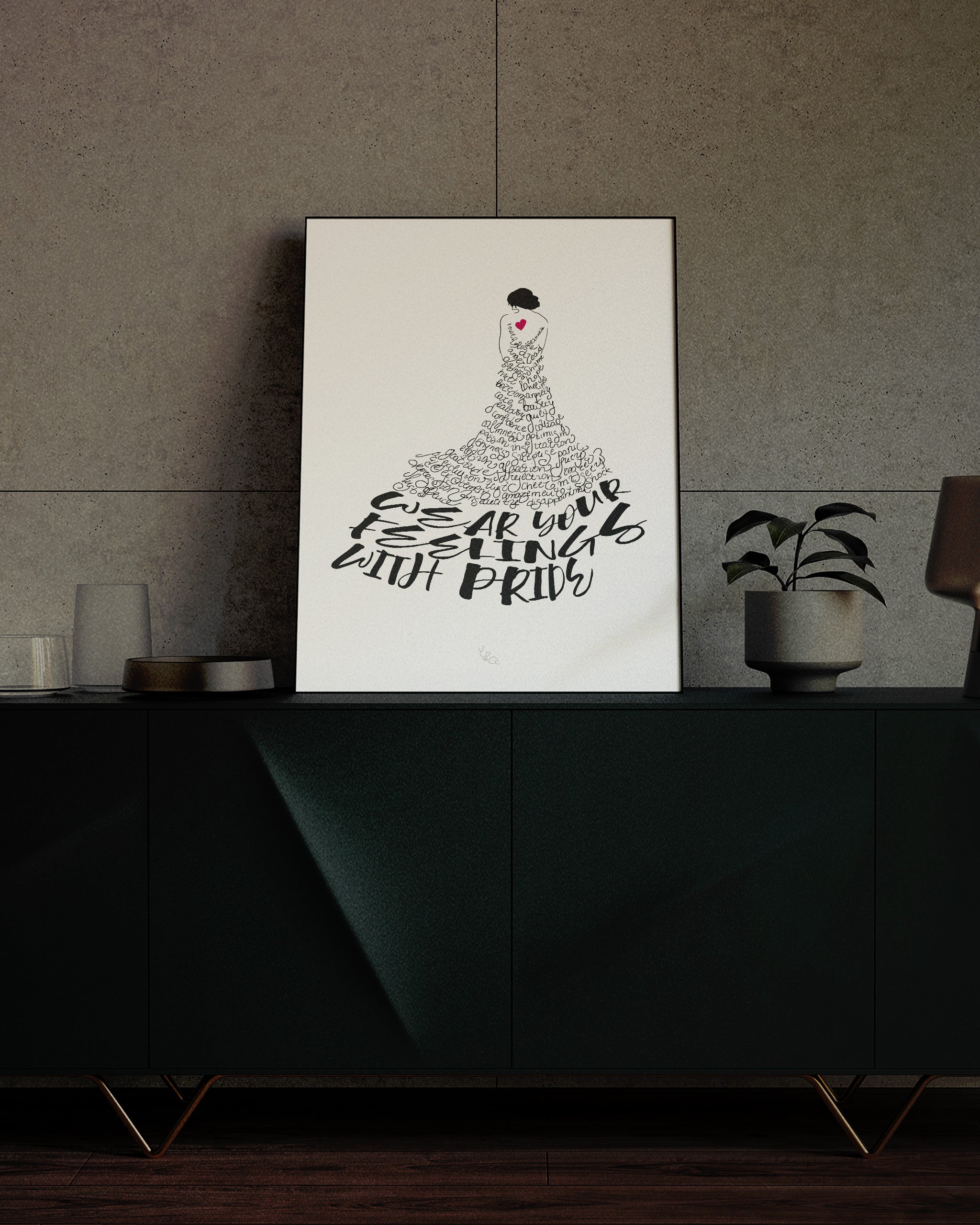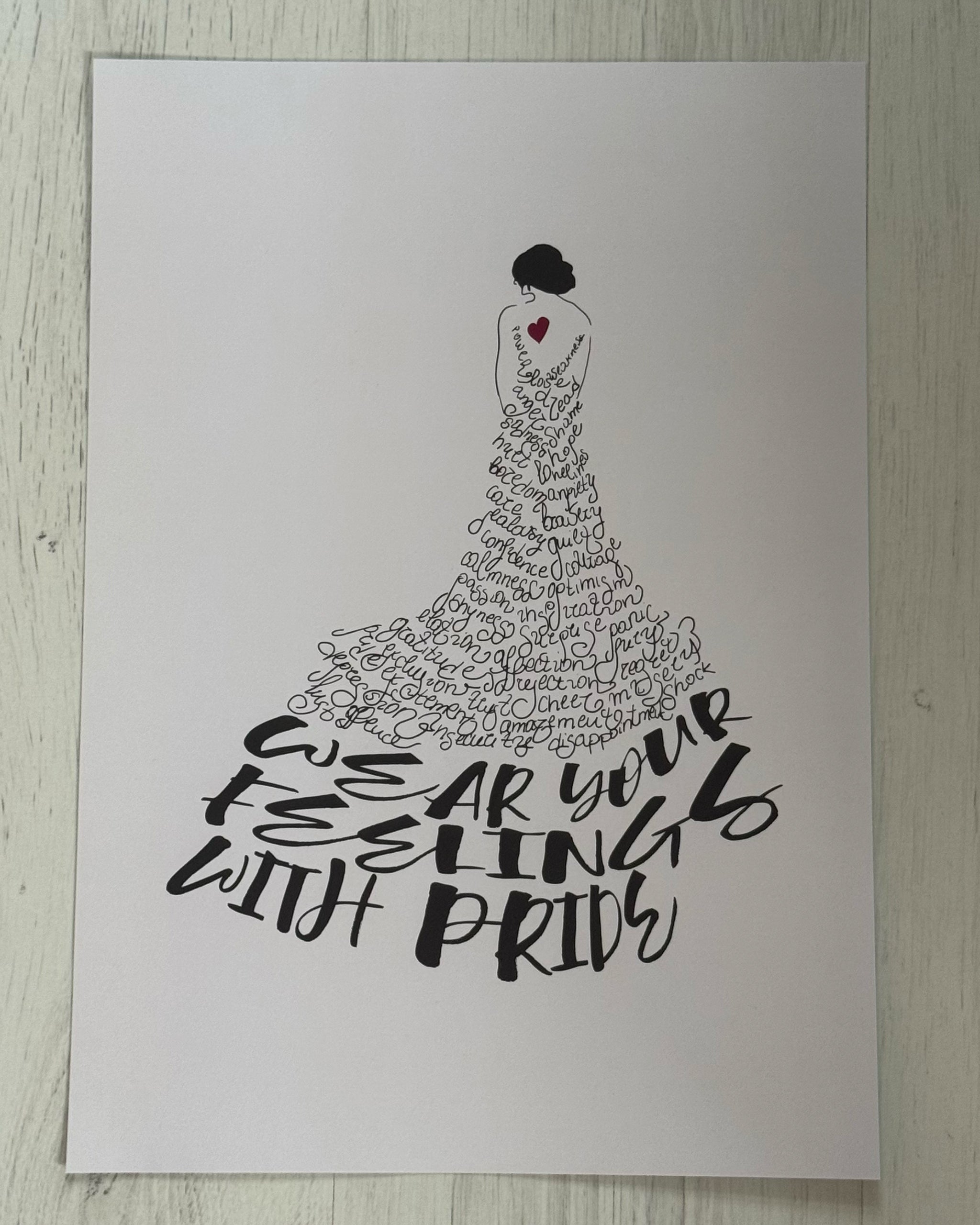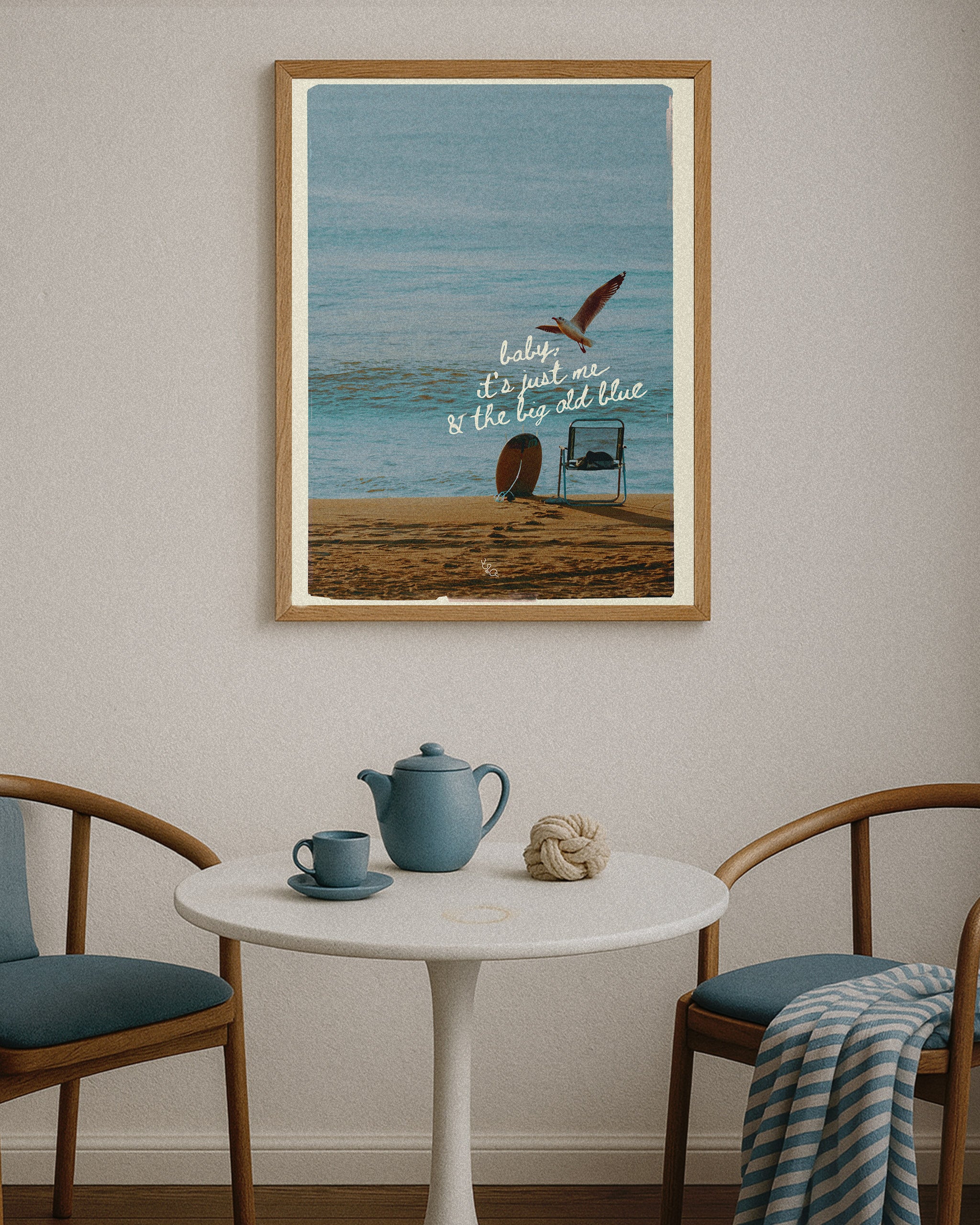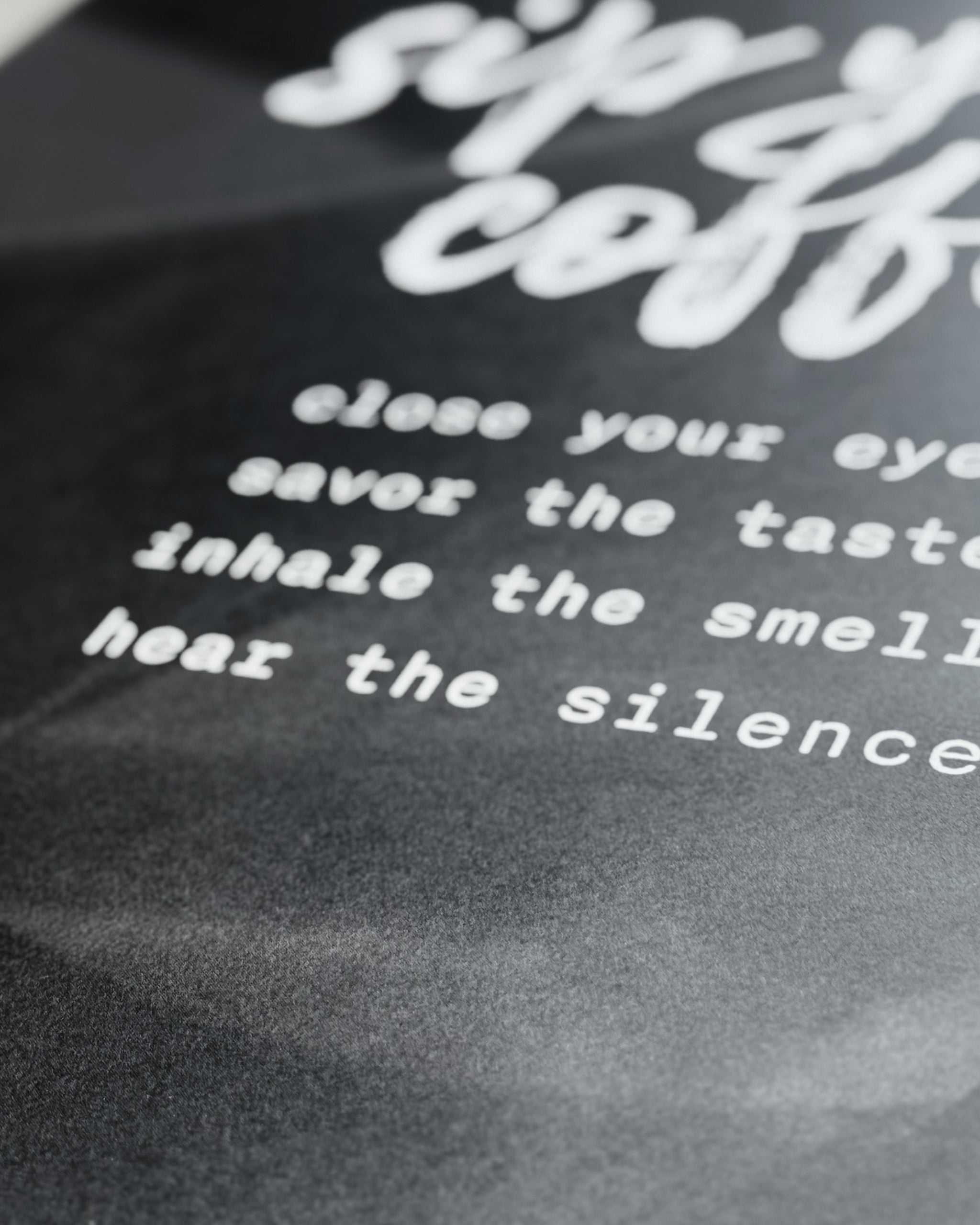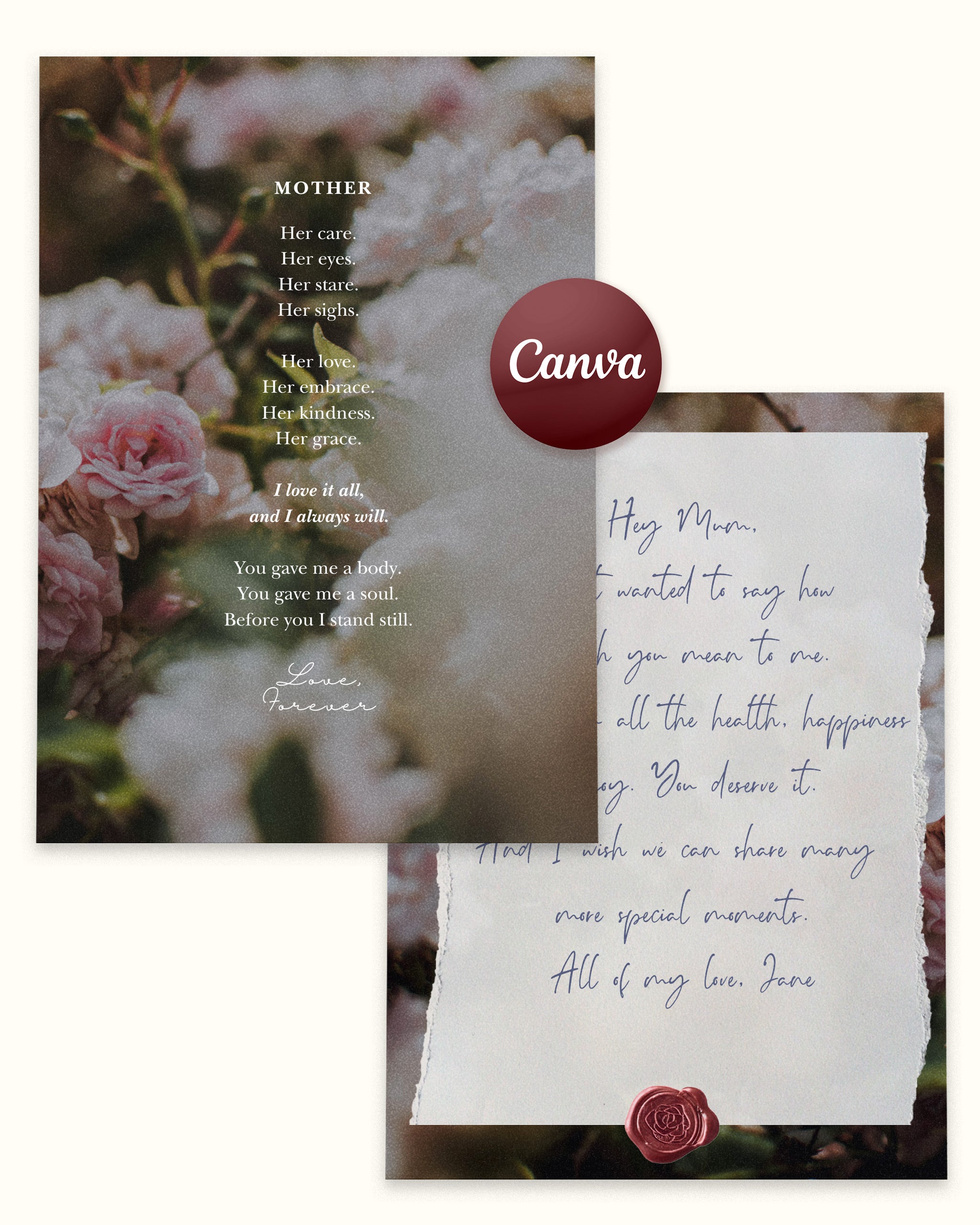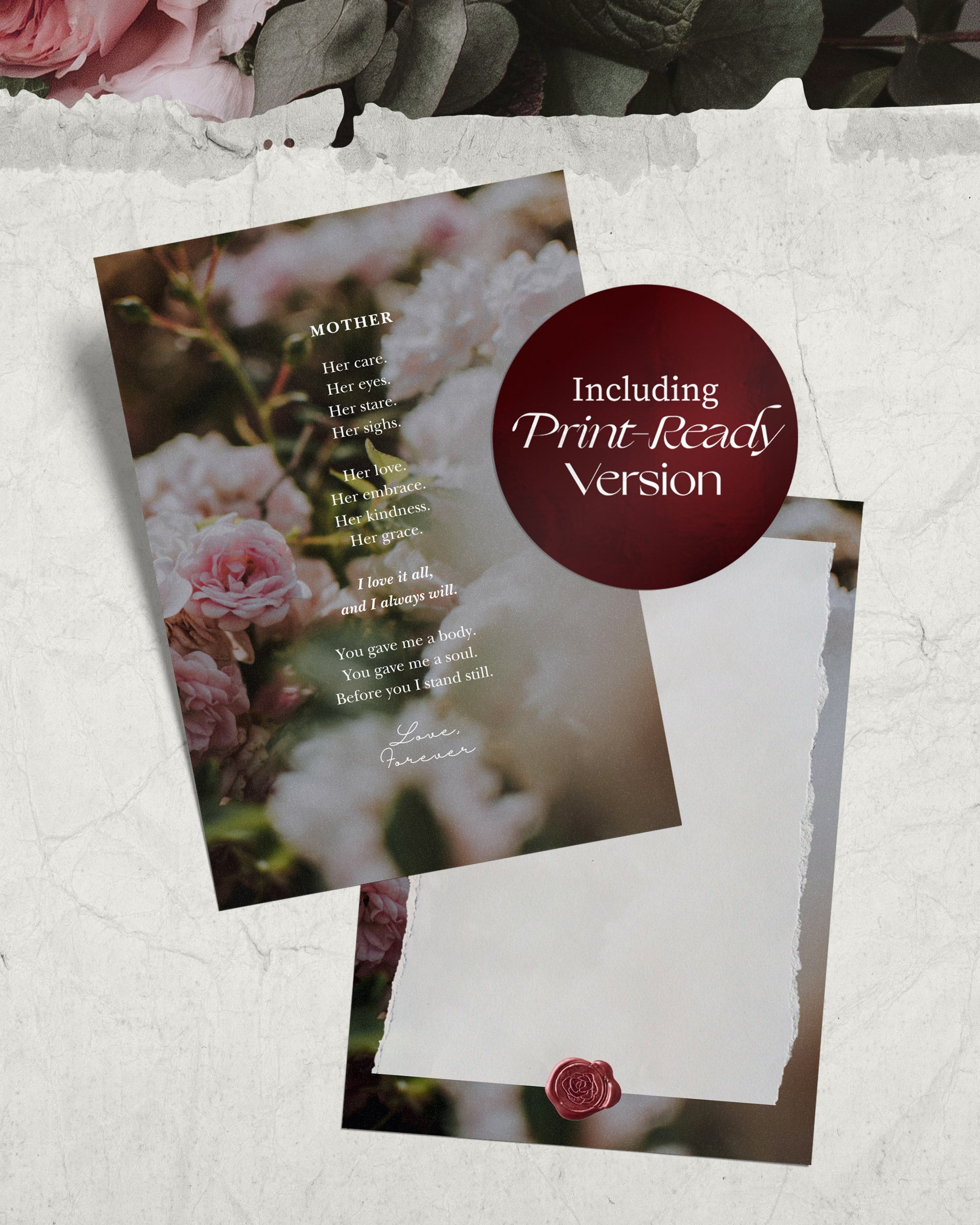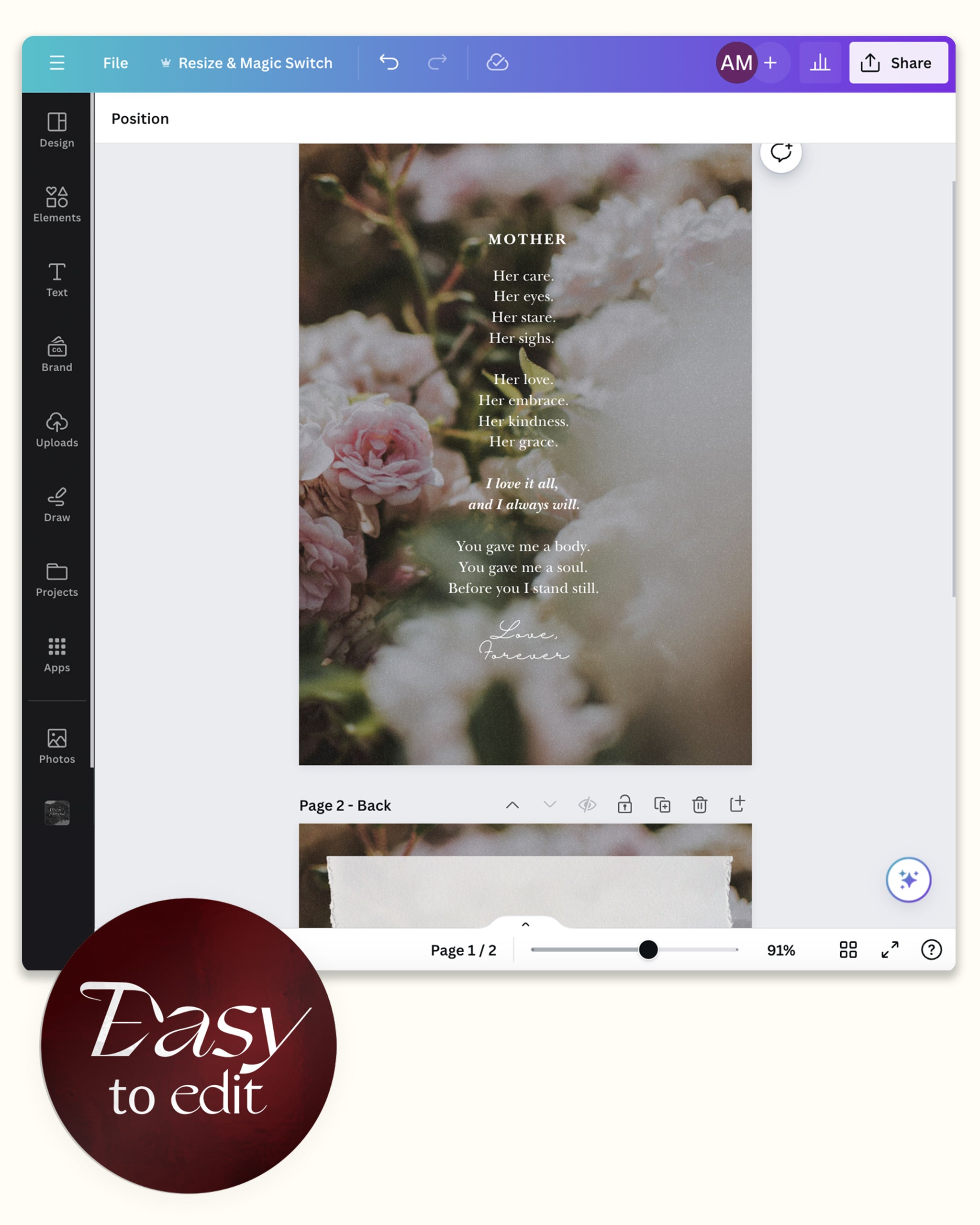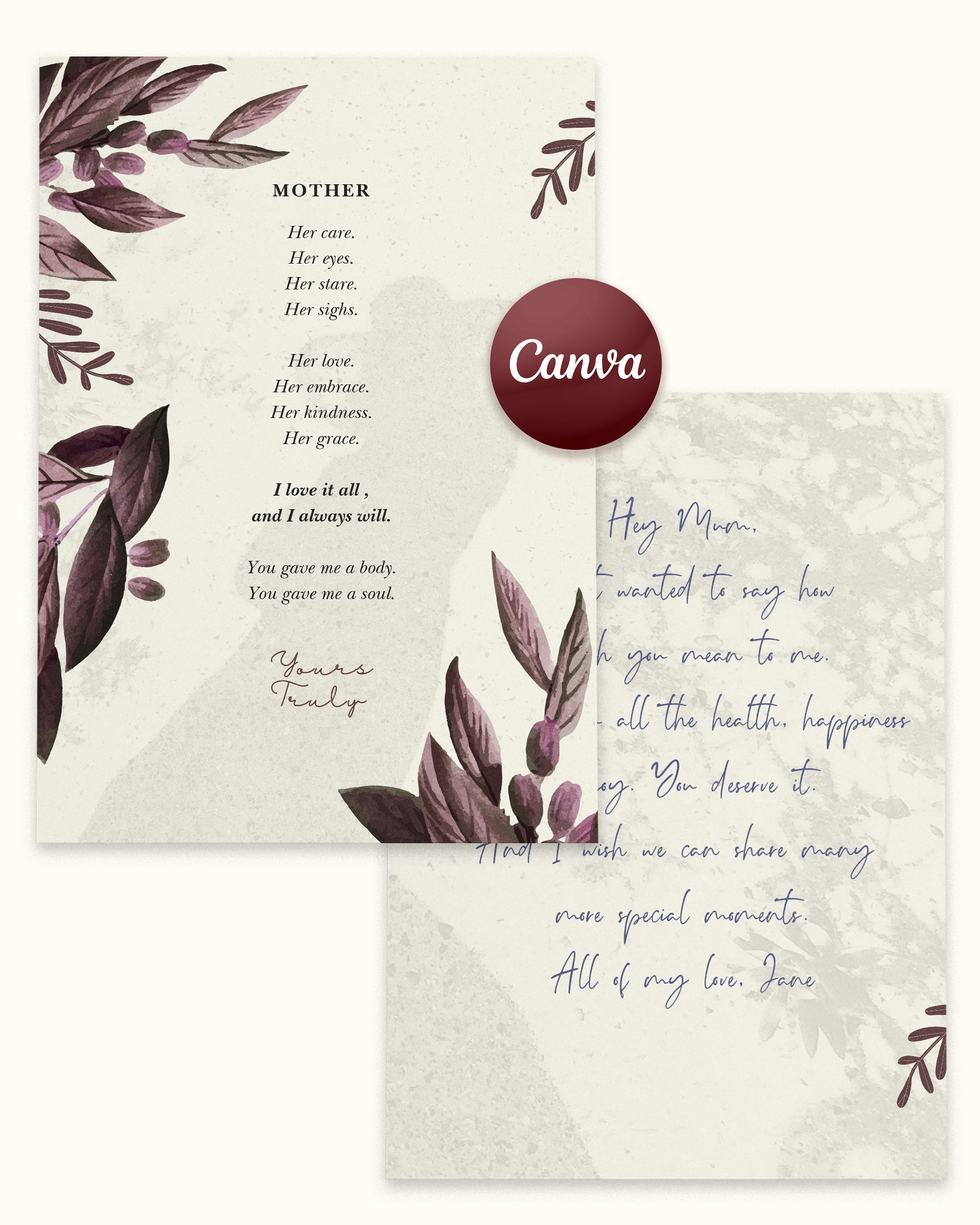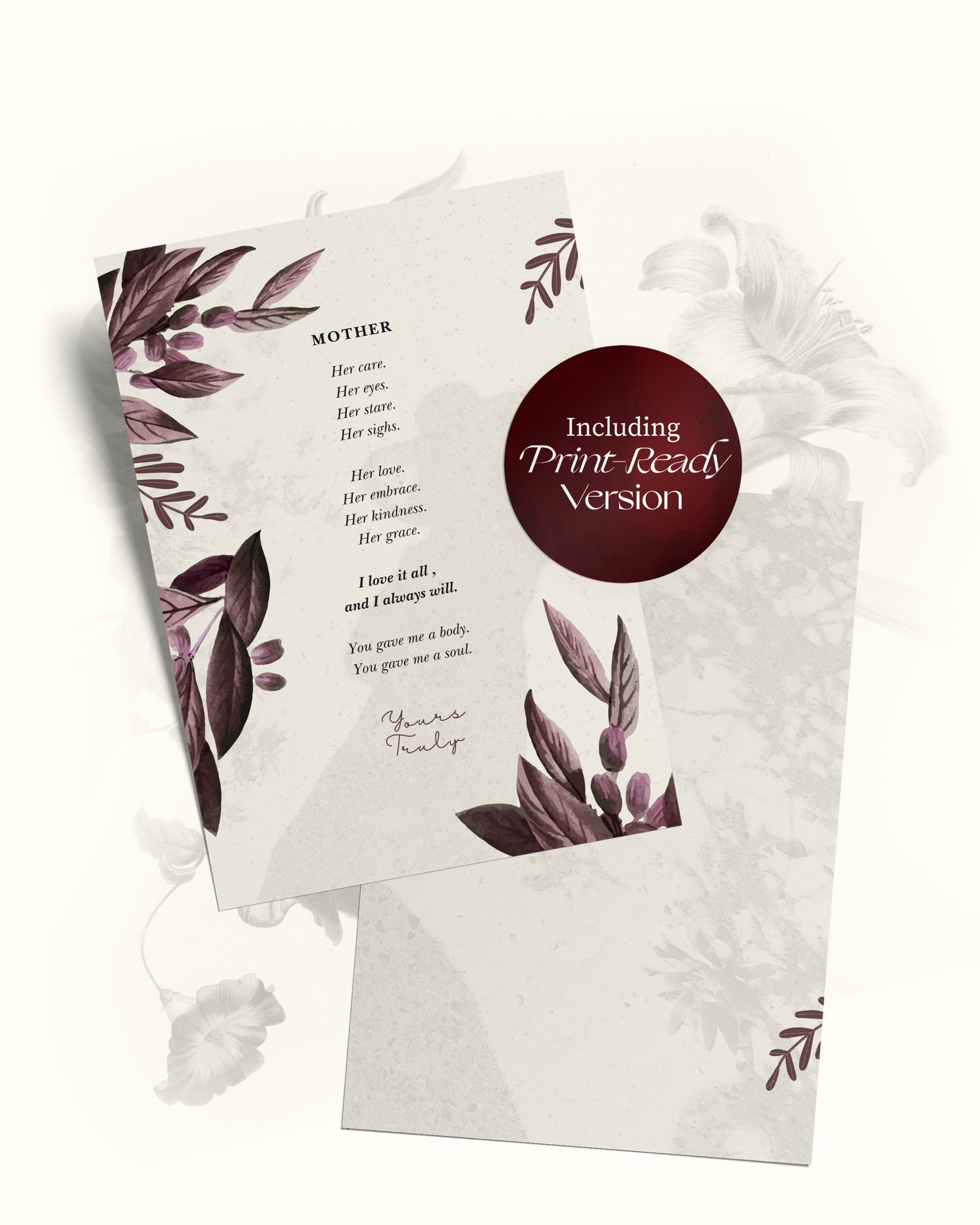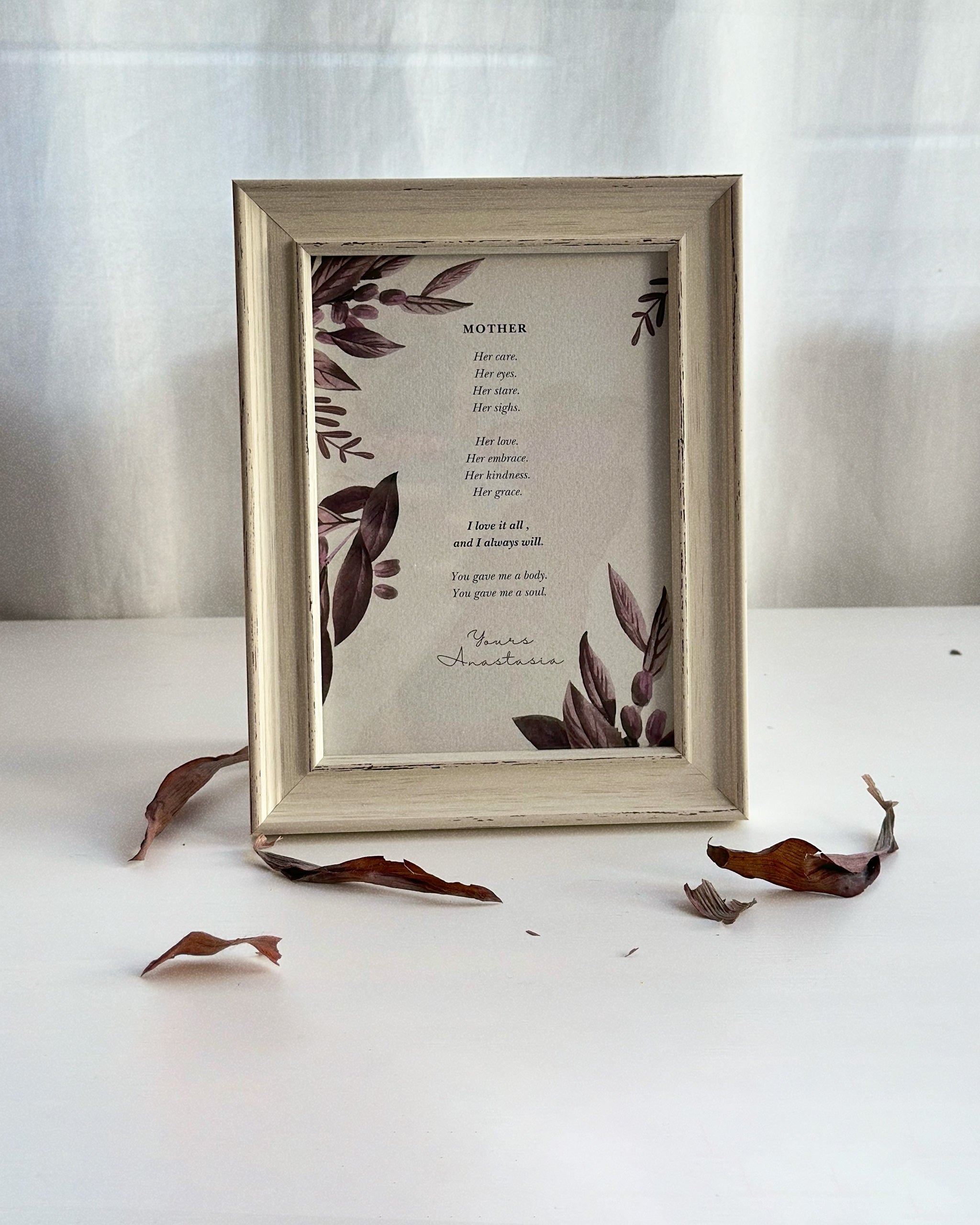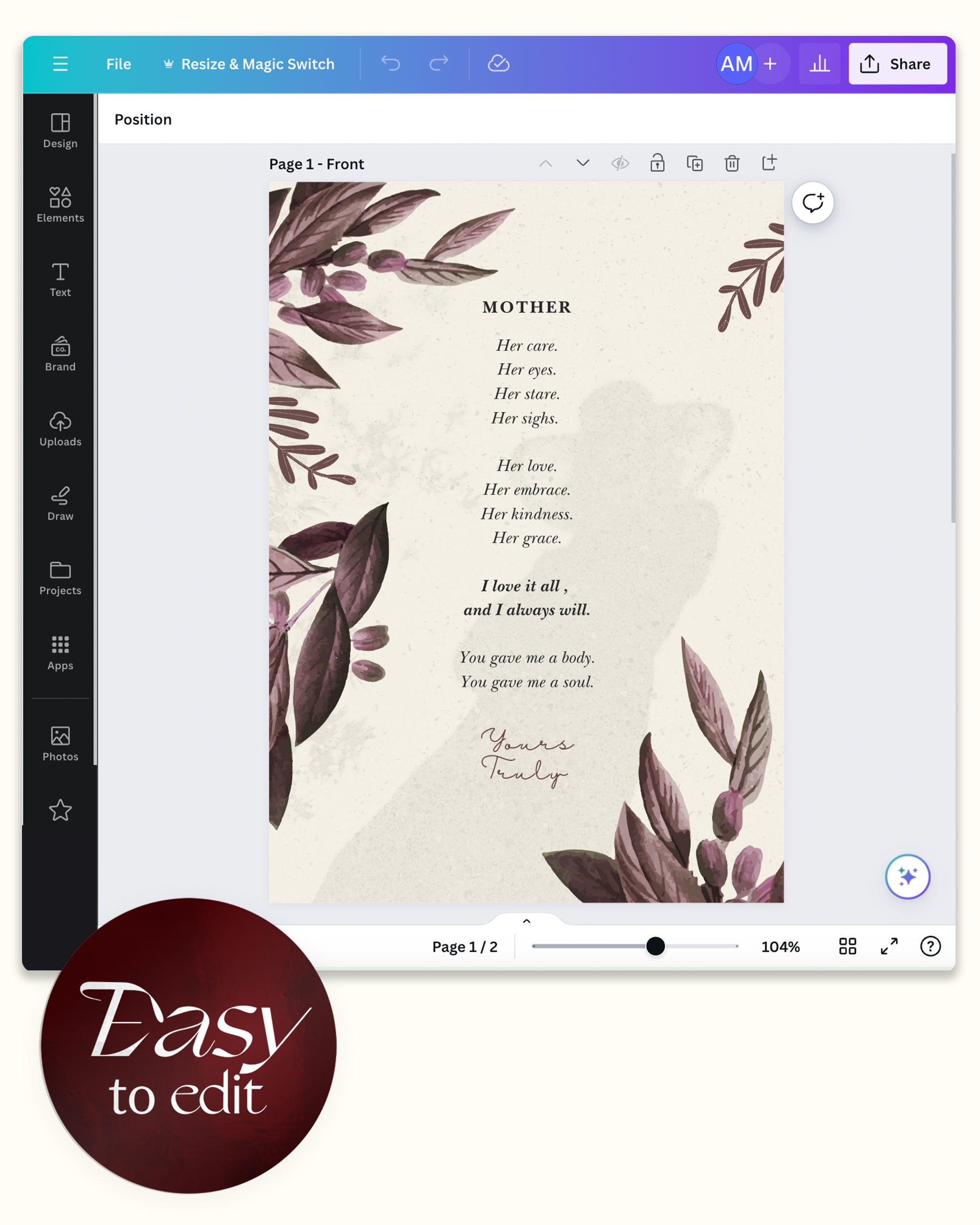Hiyaa wonderful peeps!
Today I want to share these 5 short self-worth and self-love quotes that reflect some of the inner dialogue I’ve had to build to preserve my time, energy, and mental health.
1. It’s okay to say ‘no’ to a loved one, a colleague or my boss. I’ve exhausted all of my resources for today.
Let me paint this self-acceptance quote as a visual metaphor for you:
Picture it like the seasons changing: after the vibrant intensity of summer, when we’re radiant and brimming with energy, autumn invites us to wind down. We trade sunny days for cozy sweaters, fluffy socks, nourishing meals, a pinch of cinnamon-scented nostalgia, and comforting company—even if it’s just our own company.
Similarly, sometimes our resources—mental, emotional, or physical—become depleted, and that’s the time to allow ourselves to slow down and honor our boundaries; to gently say 'no' when we feel we have nothing left to give.
When we need to say “no,” we’re often held back by the worry of disappointing others, even when there’s little chance of that happening. In my experience, people are usually understanding when we openly share that we’re overwhelmed. This article in Club Mental makes a very good point on this:
It’s never wrong to set limits, ask for what you need, and take care of yourself…even if others think you’re being selfish, mean, or difficult. Boundaries are about protecting your well-being, not punishing others.
Saying “no” is becoming more and more important as burnout reaches an all-time high, affecting different areas of our lives (Healthline).
practical self-acceptance tips
Listening to my body always helps me:
- When my eyes are too tired from work and I can't absorb any more information, I put on my headphones and relax. Watching TV usually just makes things worse.
- If I need to retreat into my thoughts and can't handle additional external input, I might reschedule, cancel a meeting, or opt for an audio call. Or if I definitely need to attend the meeting, I will try and take out as much pressure as I can for the rest of the day, or make the next one lighter.
I know many of you would say: “Yes, but I have nothing to de-prioritise. My life is a constant whirlwind of ‘musts’.” Of course, we all have busy periods like this. The issue is when it becomes chronic, because the body and mind will eventually need to balance it out. For me, it shows up as extreme fatigue, low motivation, or sometimes even a cold.
So, yes, remember it’s okay to:
- Cut a call short because you feel overwhelmed.
- Say 'no' to a catch-up with a family member or friend because you need your headspace.
- Decline an extra task at work.
- Turn off the TV when you can’t take any more visual or audio stimulation.
Even when our desires are boundless, our resources are limited.
By respecting this,
we respect ourselves
further reading
Extra tips in the resources below:
- 5 Boundaries You Must Enforce for Better Mental Health
- 5 Signs You’re Headed Toward Burnout — And How to Stop It
(the titles sound a bit too dramatic for my liking, but the advice is sound)
2. It’s okay that I feel stressed out today. My inner urgency tried to persuade me to go above my limit.
Uffttt… I’d run out of fingers trying to count how many times I’ve heard things like “Just don’t stress it” or “Why not take it easier?” And while I know these words are well-intended, they miss the point...
Sometimes the drive to achieve perfection, excel, and get everything done mutes any sense of self-preservation.
This article by Psychology Today gives a very good insight into why perfectionism is blossoming in today’s society, especially in people whose upbringing nurtured the tendency
More broadly, perfectionism could be seen as a consequence of a cultural fetishization of productivity, efficiency, and, yes, perfection. In a culture based on competition, perfectionism in those with a tendency for it may be inevitable. If only we could all just strive for excellence without judging ourselves too harshly when we fall short, we could become “good enough perfectionists,” always trying our best but remaining gentle and forgiving with our fragile selves.
practical self-acceptance tips:
- First, no shaming. If I catch myself responding to perfectionism, I try not to shame myself for this “preposterous lack of self-love.” I begin by simply accepting it. It’s been there for a while, so softening it will take time.
- Then, ideally with the help of therapy, I try to understand why I feel the need to push so hard; to understand this inner urgency. From there, it’s about building a new sense of self-esteem and self-worth that isn’t based solely on achievements and is rooted in a healthy sense of “enough.”
I am more important than any task or anyone’s opinion of my abilities. I’m learning to live with the discomfort of not finishing everything, knowing that others may,
well, see that I’m also human after all.
further reading
For a thorough review on perfectionism, and its healthier alternative - excellencism, I definitely recommend:
Why Perfectionism is a Trap
3. It’s okay not to move today. I feel like my body just needs to rest.
A lot of today's wellbeing and fitness coaches try to motivate by instilling a sense of shame. You’ve likely heard the usual lingo:
- Push It. Your Body Will Reward You
- No Excuses. No Pain, No Gain
-
Wow. I Really Regret That Workout. Said Nobody. Ever.
And while those lines can help in some situations, they’re extreme, shaming, and toxic in others.
I’ve worked out for the past 10 years and gone through the full shebang—from high-intensity “push-your-limits” intervals to 2-hour weight sessions, all coupled with 20K+ daily steps (I knooow…).
I’ve honestly regretted some workouts because I did them “at all costs.” I did them when I felt like I had no headspace and didn’t want to move, or when I wanted to prioritize something else in my life. It was pretty much all-or-nothing.
The body (and mind) just don’t work well with extremes and absolutes. They’re simply exhausting.
practical self-acceptance tips:
We’re human; we have a limited amount of energy that we try to masterfully divide across all areas of our lives.
And if sometimes a workout isn’t what we need—and even a 10-minute walk is too much... that's more than okay.
So, shout it out: NO:
- Sometimes your body will not reward you if you keep pushing.
- Sometimes there’s gain without pain.
- Sometimes everyone and their dog says you will regret that workout, and that’s perfectly fine.
Because...
You always come first.
And absolutes are just crap.
If you’re feeling pressured in these moments, remind yourself of this. Keep it somewhere handy. Even picking up some self-care activities or trying self-care journaling can help— these will remind you that sometimes, doing nothing at all is a valid form of self-care.
I want to mention a few accounts that make the fitness/well-being space less toxic online and have helped me so much on this journey:
- www.instagram.com/danaemercer
- www.instagram.com/aliceliveing
- www.instagram.com/bdccarpenter
- www.instagram.com/michaelulloapt
They regularly debunk harmful misinformation about health, eating, fitness, and body image.
I also want to mention that Jameela Jamil’s (activist and a female extraordinaire) new project @moveforyourmind, which aims to create a safe space for everyone to experience the power of movement for every body—where movement is more about joy than punishment. It's time to start shifting the view of exercise toward something healthier and a lot less aesthetic-driven and rigid.
4. It’s okay not to be able to make the perfect choice. In a world that drowns us in small choices, good enough will do.
Choices, choices, choices...One of the biggest struggles for every perfectionist—made even harder by modern society’s overabundance of options—from what yogurt to pick, to whom to date, and which country to move to.
It's almost impossible to make a mindful decision about everything, just as it is to make a perfect one (if that animal even exists).
practical self-acceptance tips
So, when it comes to making decisions, I've started doing the following things…
-
Feeling my “overthinking” limit
I know I’ve hit my overthinking limit when my body feels on edge and my brain refuses to run more calculations. So at the entry point to each decision path, I ask: “How much actual bandwidth do I have for this today? How important is this compared with everything else?” -
Gauging the urgency
Do I need to decide right now? Is it truly urgent? Do I want to spend more energy on it? If not, I let it "hang out" in my head. If I really want it, time will tell. -
Trusting my gut
I know that if I truly want something, I wouldn't hesitate—I'd just get it if I can. Which means if I’m hesitating, the options at hand are both “meeeh” to me. So if I must choose between two “meeeh” things, I save my precious mental energy and just pick one -
How much does a mistake cost?
We all worry about mistakes. The key is remembering that even if we make a big one, we can trust ourselves to handle it. Most decisions aren’t life-or-death, and there are always factors beyond our control. We’re not heart surgeons on the table, so our everyday mistakes are usually far less catastrophic than our anxiety tries to predict.
5. It’s okay to relax into what is happening now. I’ve just been trained to either regret the past or worry about my future.
Ahh…the good ol' “Live in the moment.”
From the tons of inspirational messages online to the great books of Eckhart Tolle and Dale Carnegie, this phrase has echoed through time. There are now studies showing that mindfulness can help with depression, chronic pain, and anxiety (The Harvard Gazette).
This article by Mindful.org outlines mindfulness brilliantly:
It’s estimated that 95% of our behavior runs on autopilot—something I call “fast brain.” That’s because neural networks underlie all of our habits, reducing our millions of sensory inputs per second into manageable shortcuts so we can function in this crazy world...Mindfulness is the exact opposite of these processes; it’s slow brain. It’s executive control rather than autopilot, and enables intentional actions, willpower, and decisions.
I used to have a very skewed understanding of mindfulness. I tried to slam the door to the future and the one to the past, thinking sheer force was the way. I tried to force myself into a slow pace of thinking and being. Now I know all lasting change starts with acceptance and understanding. It’s a soft process, and the approach of extreme force and perfectionism is precisely what it goes against.
It’s about slowly softening up and slowing ourselves. Repeating: “It’s okay, you’ve got time.” Also, worrying about the future is normal and human, so is ruminating on the past. As with everything in psychology, it’s about the degree.
If you find yourself constantly rushing, maybe it’s time to understand what is causing that inner urgency. If you find yourself unhealthily stuck in the future, constantly calculating everything that could go wrong-or losing hours in the dusty attic of the past-well…there is a reason behind it. Find out why it happens, and once you figure it out, letting go becomes a lot easier.
practical self-acceptance tips
So, let me tell you my 3 personal tips for staying in the moment:
-
Connect with the senses—sound, smell, visuals, touch. This anchors you in the present.
(If you wish, check out my mindfulness collection)
-
Understand why you feel stuck in the past or the future—therapy has helped me, but there are also great resources online.
- Accept it won’t be perfect—setting high "Nirvana state" expectations is just torturous. I’ve tried it and ended up feeling like a failure. Instead, I see being in the present moment as a gentle practice I will be “working on” my whole life. Sometimes it will be easier than others, but it shouldn’t be all-consuming.
further reading
-
5 Simple Mindfulness Practices for Daily Life
-
Mindfulness over Matters
- When Science Meets Mindfulness
closing thoughts
Before you get bored of me. 😉
My mission with these quotes, with my content and my products is to normalize the human experience as it is: messy, colorful, imperfect.
This is why these self-worth & self-love quotes are gentle reminders—they shouldn’t put pressure on you.
Listen to your own self. You know best.
I hope these quotes helped you, and stay tuned for Part 2.
Psst... If you like these quotes, a lot of them are available as wallpapers in my Self-Care Collection:




